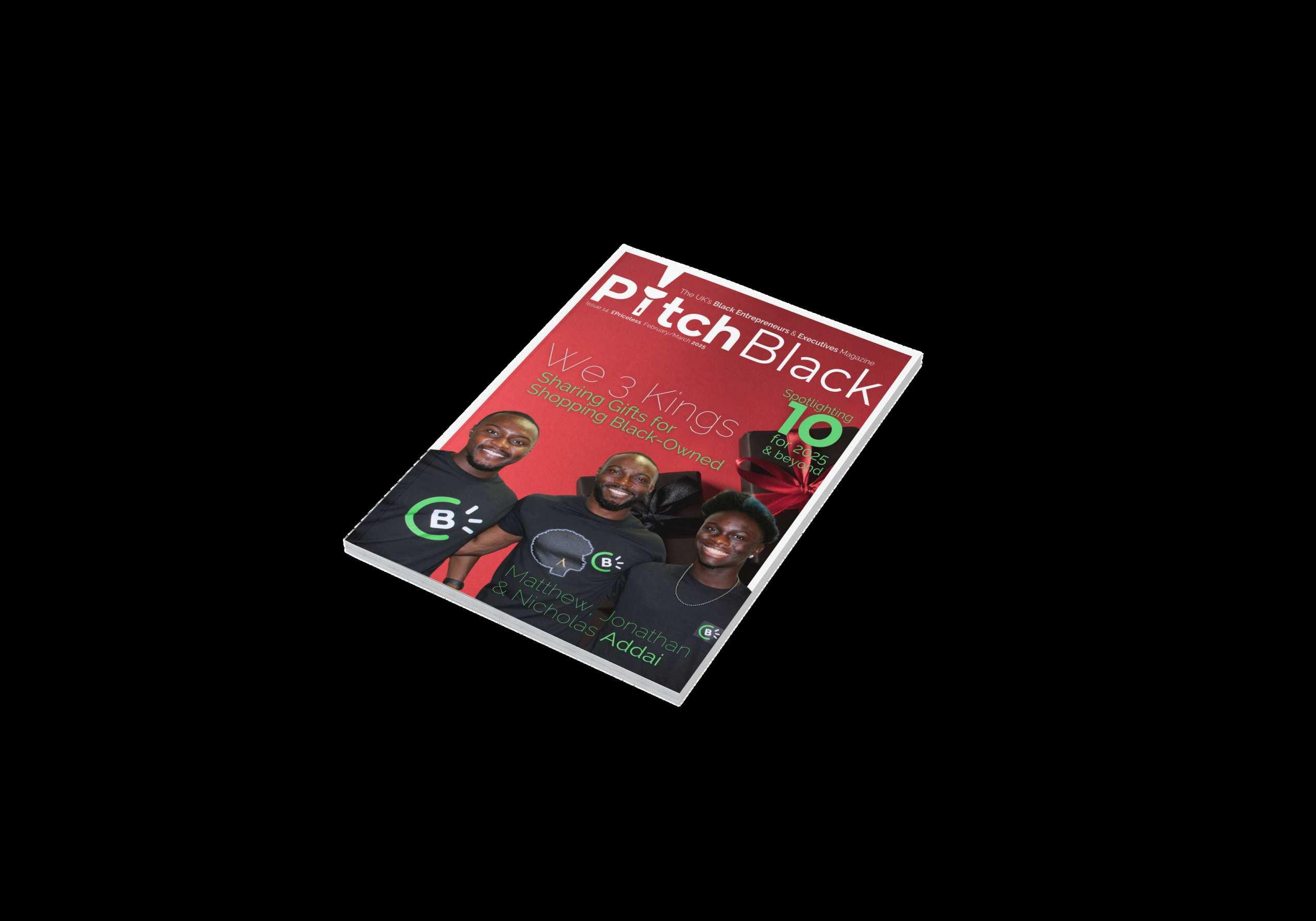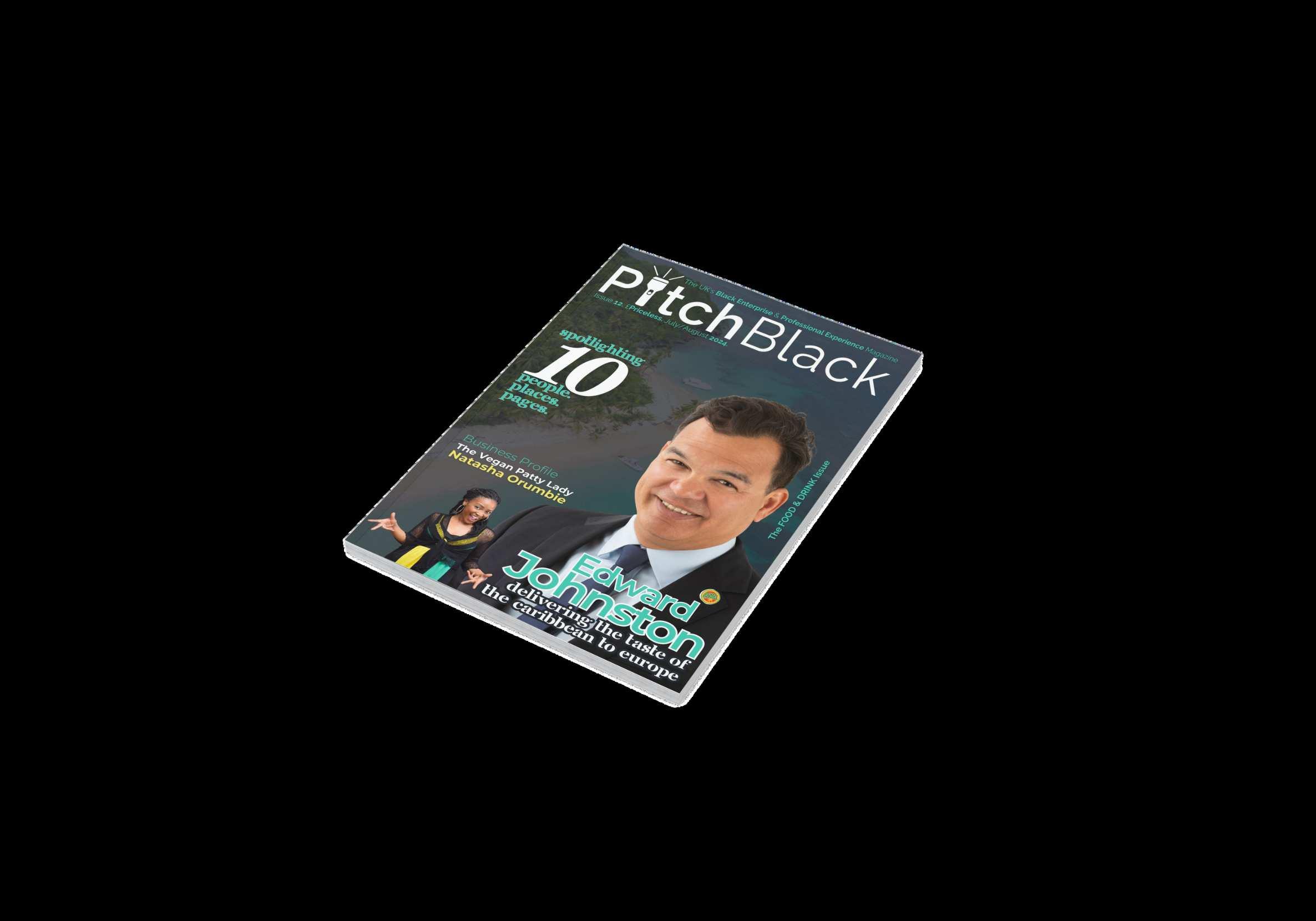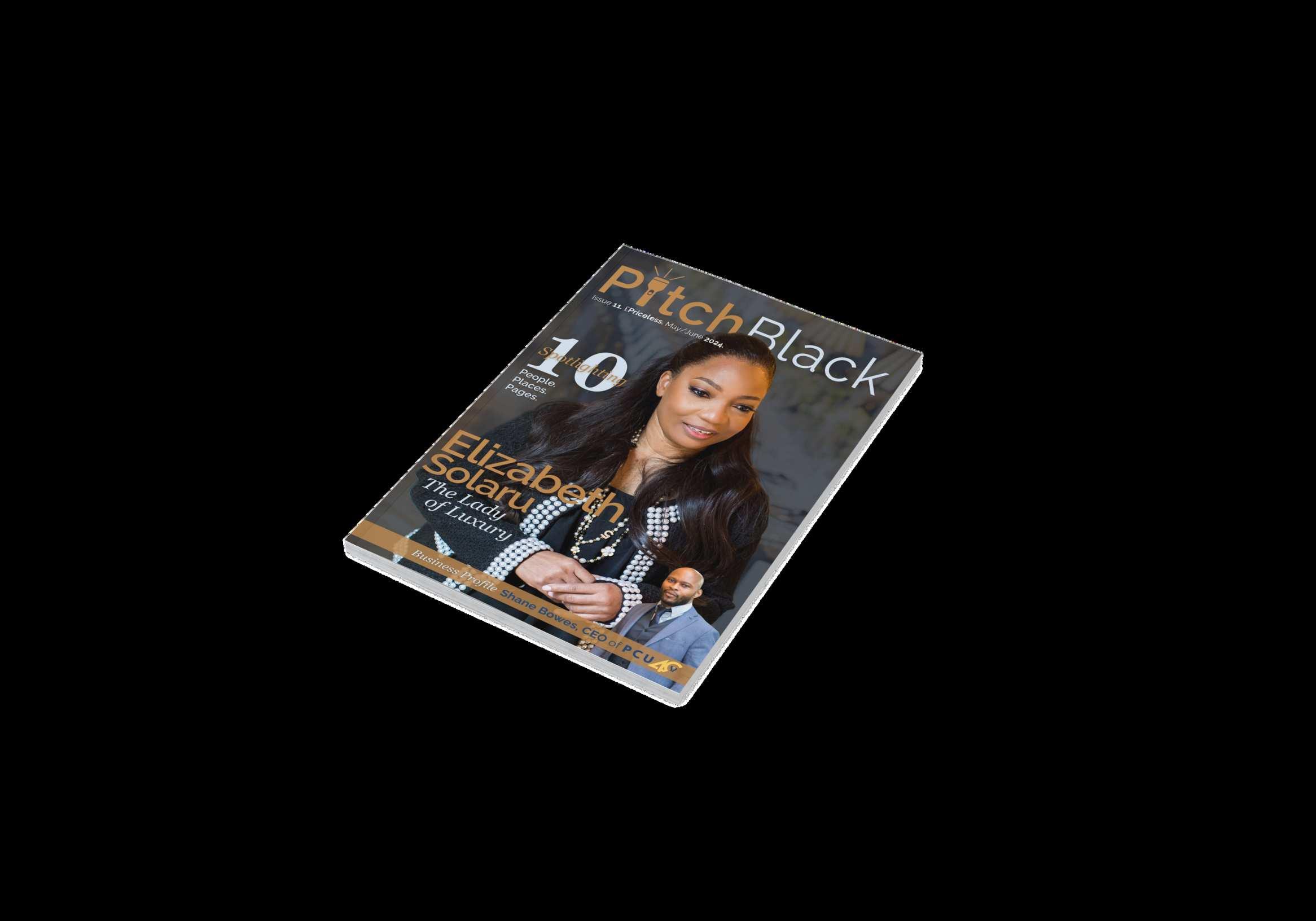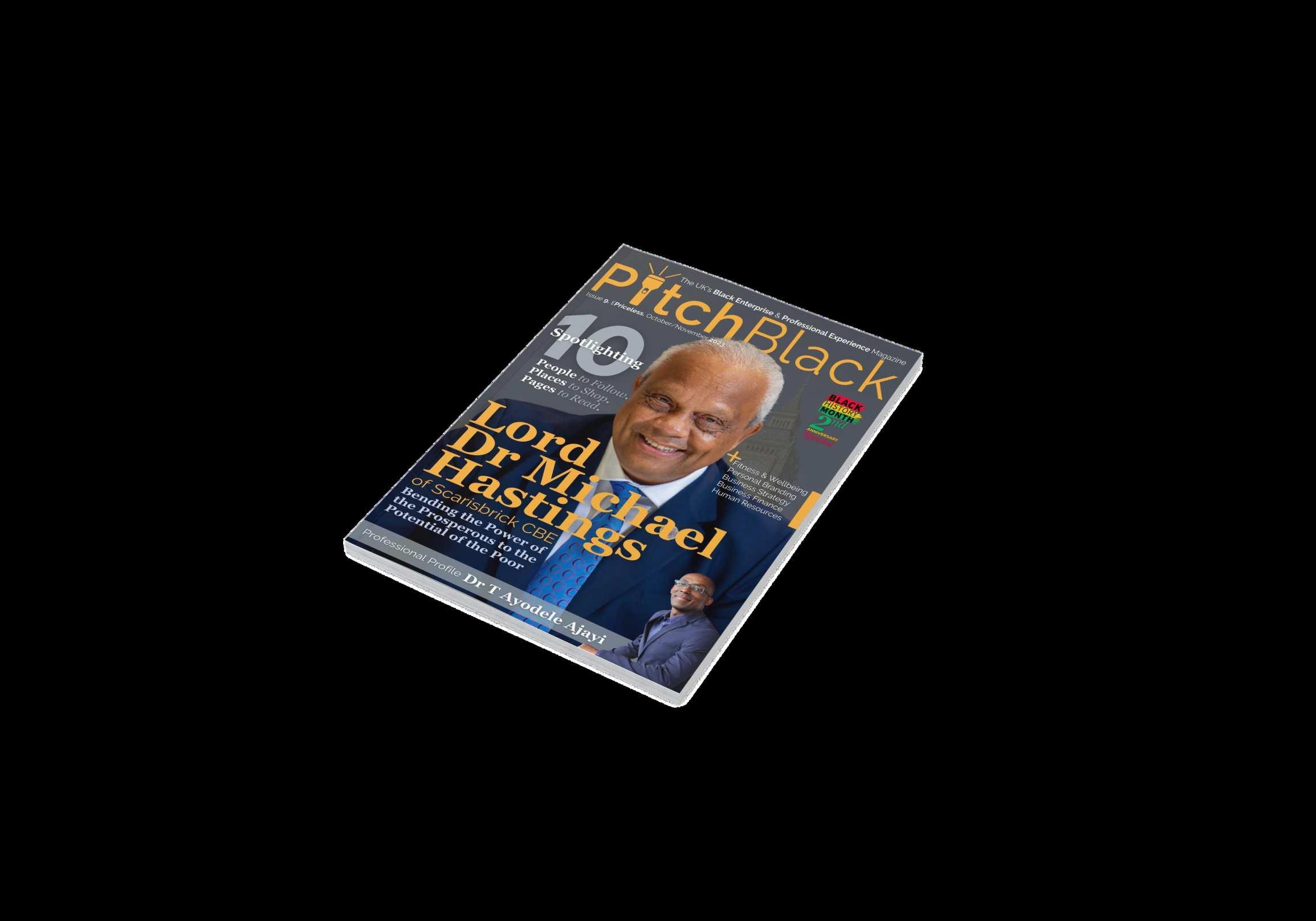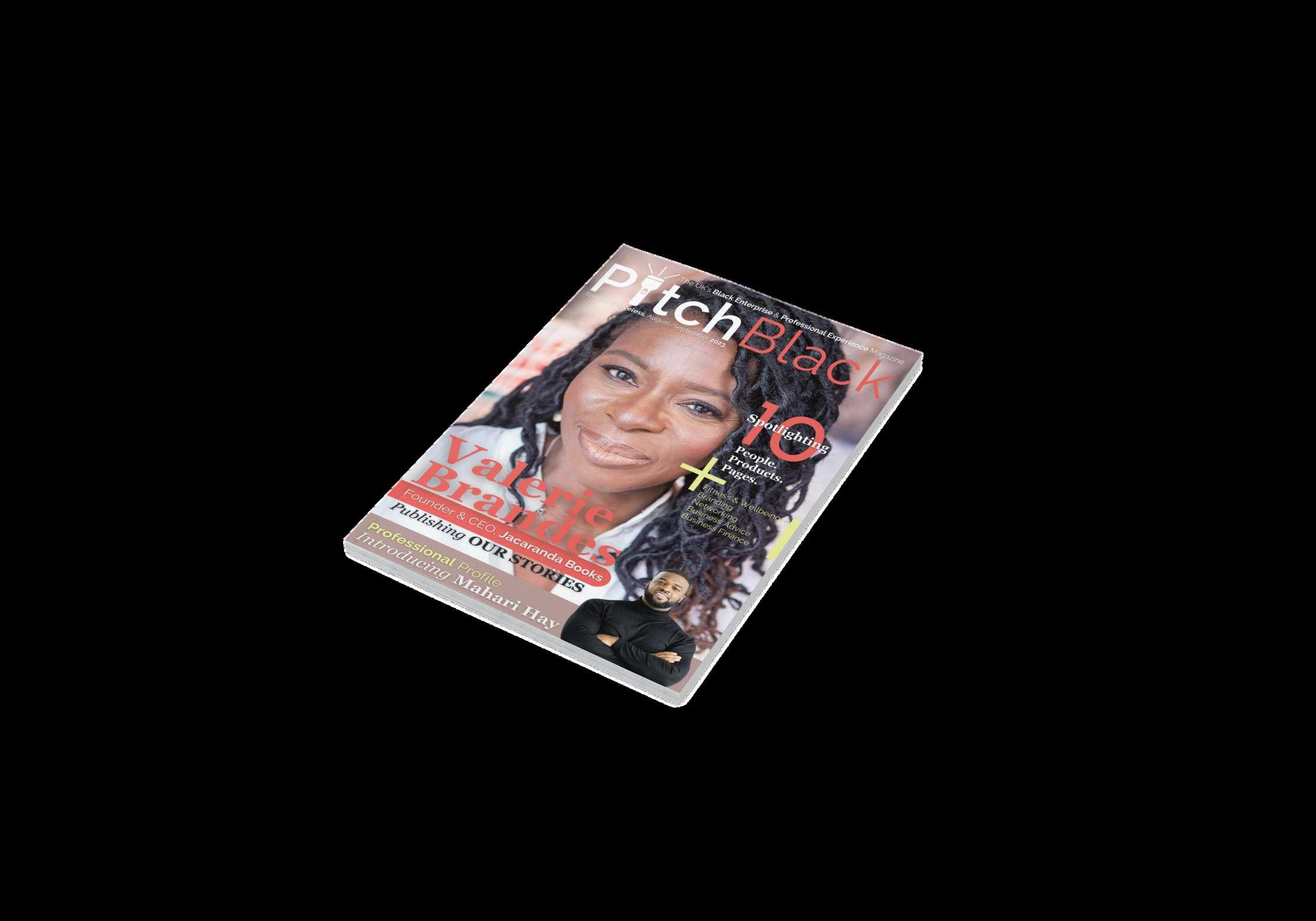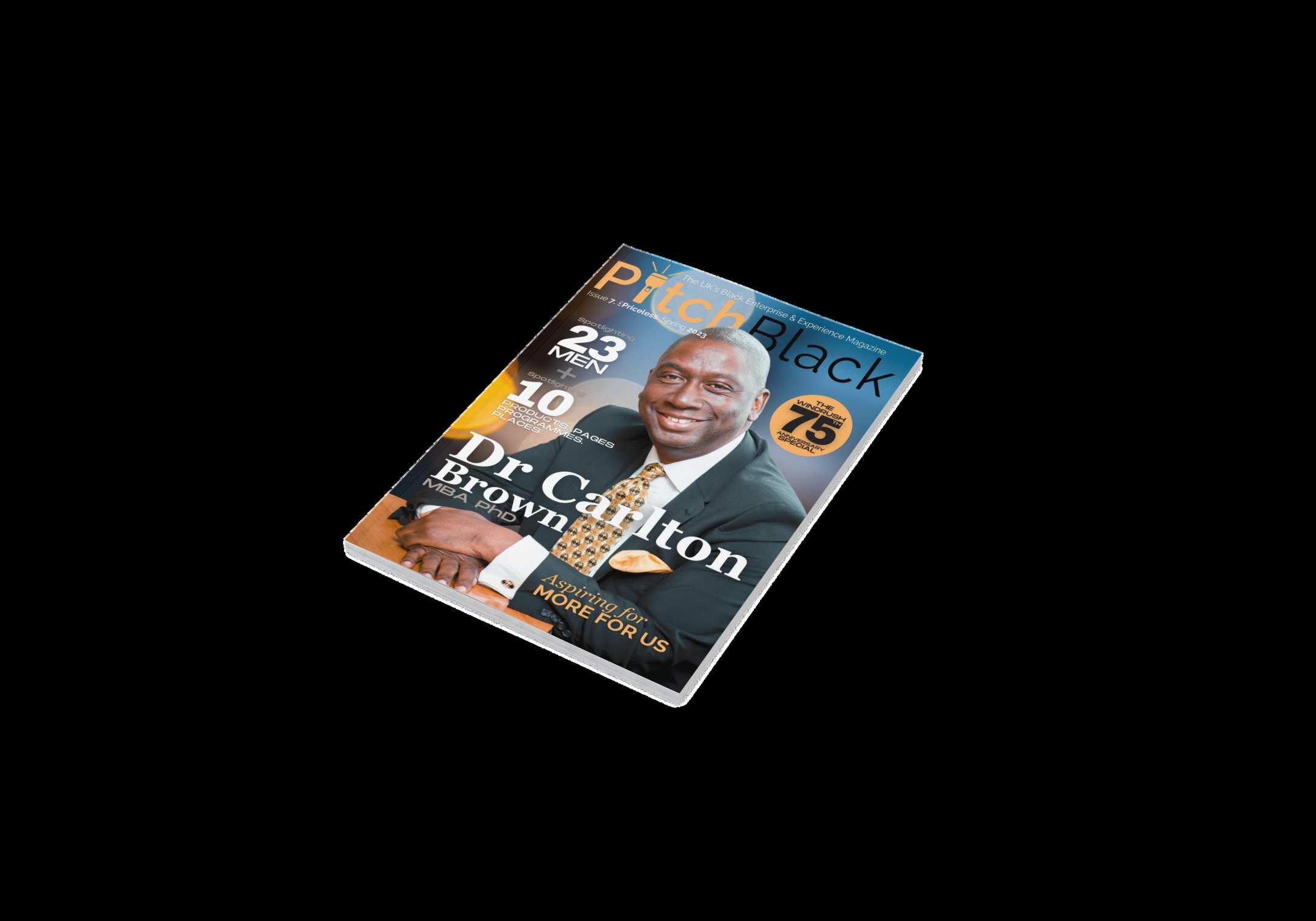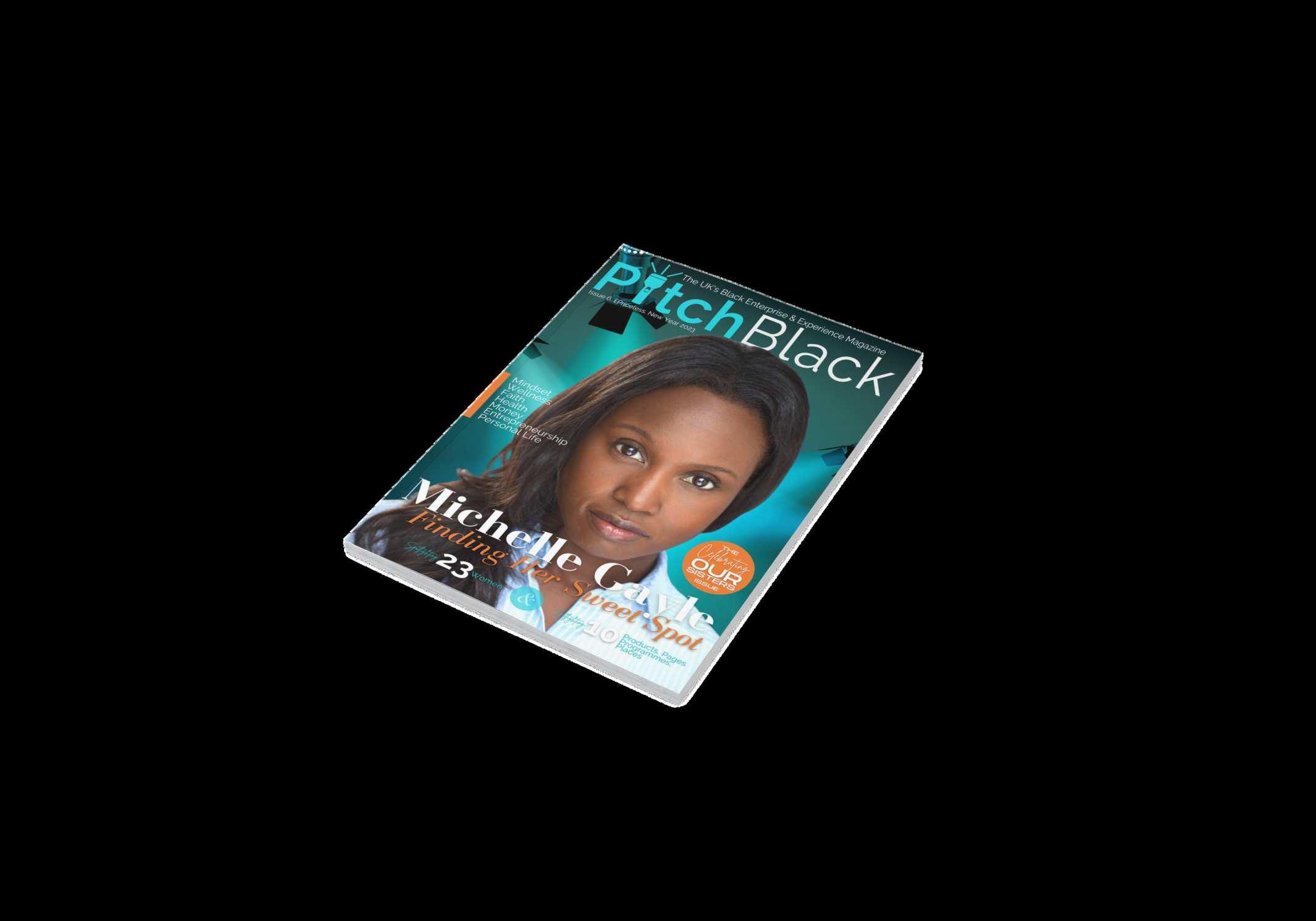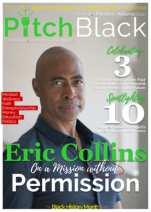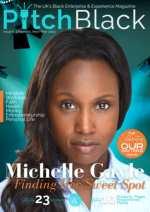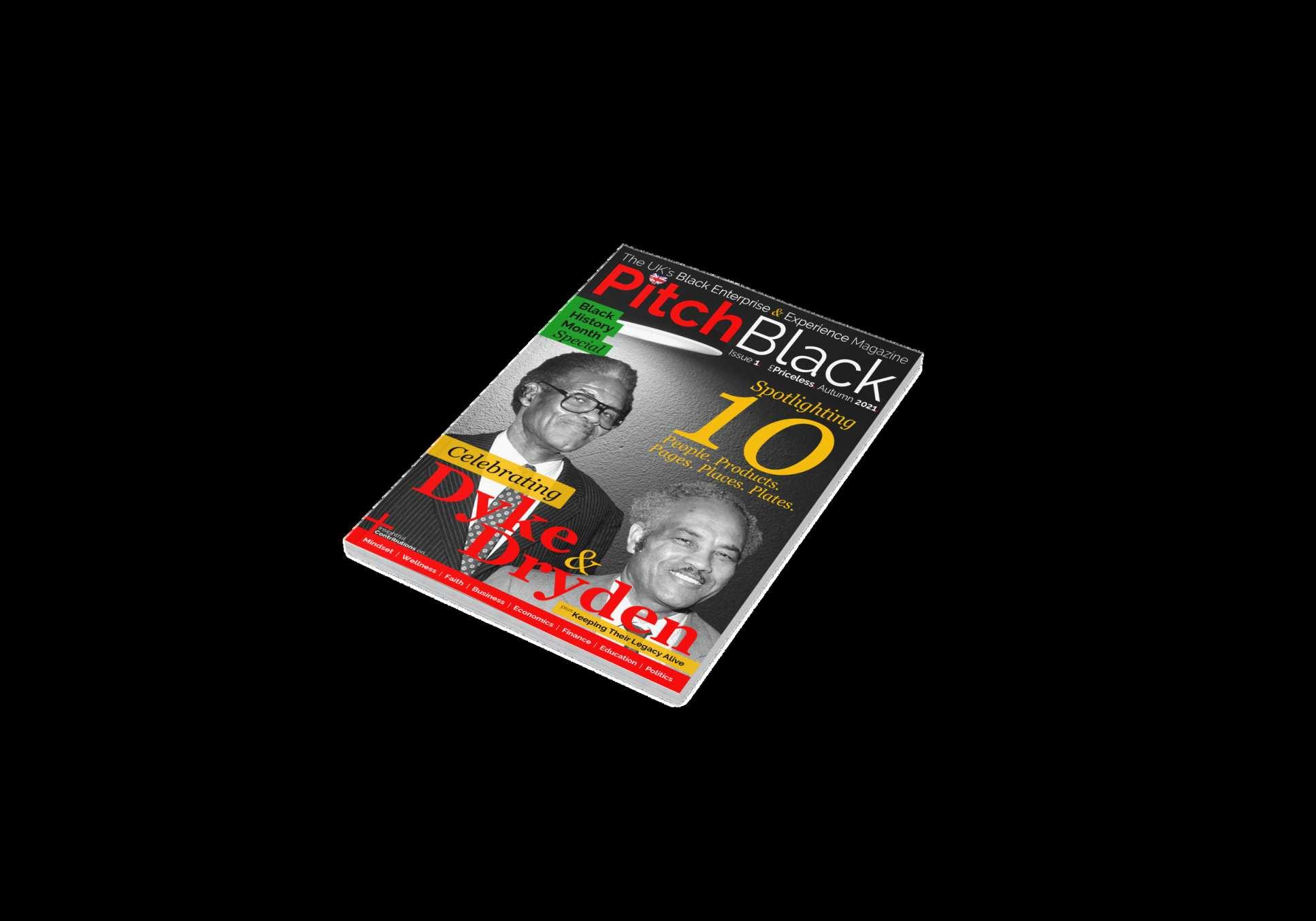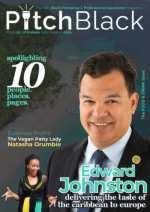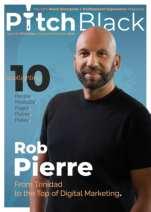






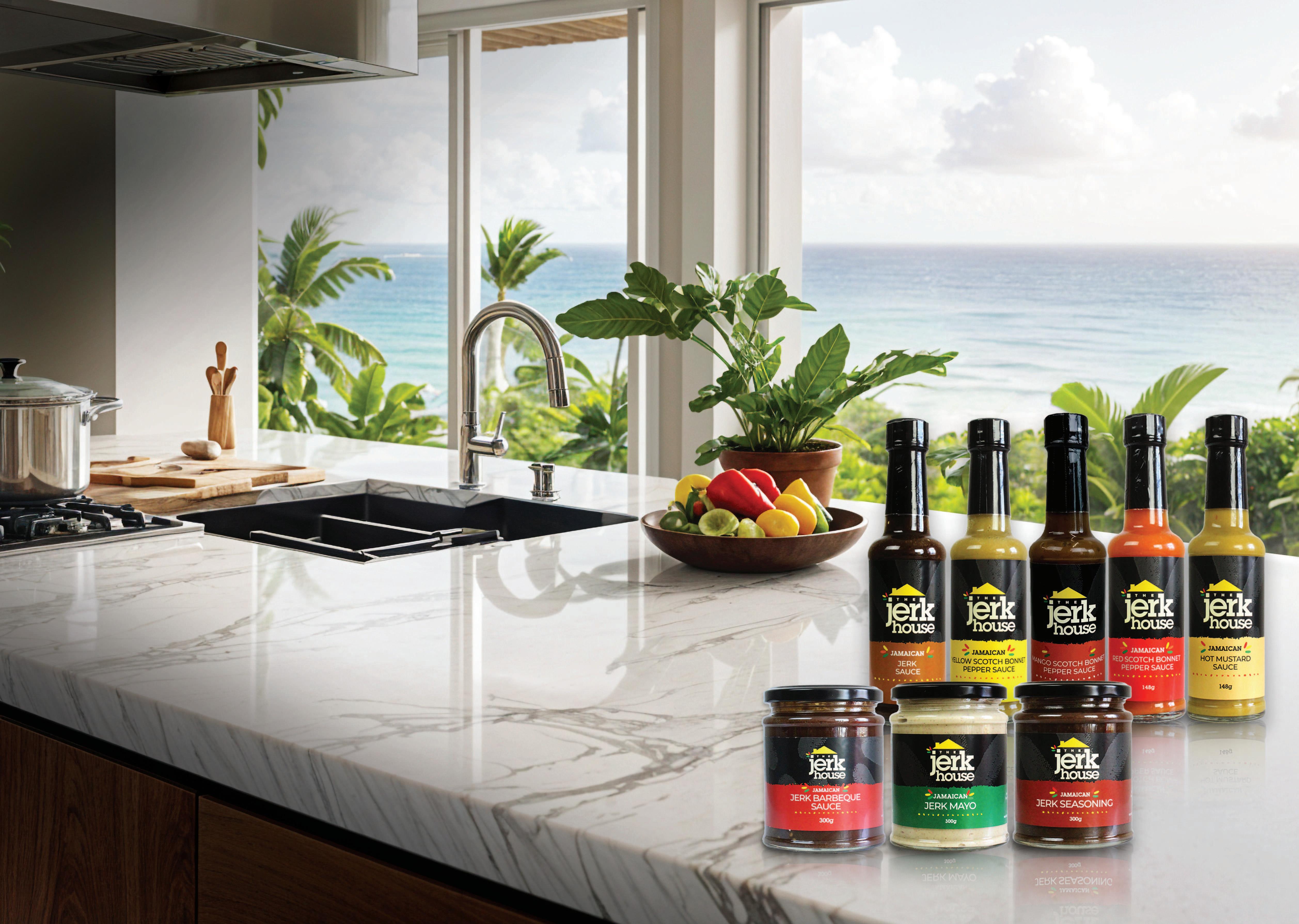


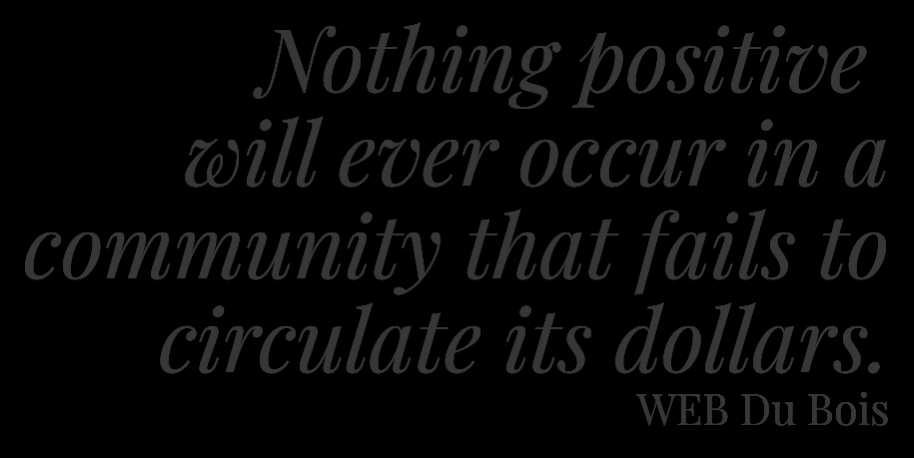
















<Nothing positive will ever occur in a community that fails to circulate its dollars.=
This is what WEB DuBois, scholar, writer, and civil rights pioneer, said in 1899. While his context was an American one, it holds true for our community as well.
Empowering entrepreneurs and businesses within our community that can provide the diverse range of goods, services and jobs we need is vital.
It's about building an ecosystem that does not rely on the government or charity to solve what are essentially our problems.
To that end, we are so pleased to continue our collaborative relationship with Cashblack so that we as a community and our allies can invest in our businesses and #BuyBlackBetter.
Massive congratulations to Dr Carlton Brown and the rest of the team for putting on another great installment of the 4 Annual UK Black Business Entrepreneurs Conference in London recently. It did not disappoint! th
Again with Cashblack’s help we are Spotlighting 10 Products to Buy & 10 Plates to Savour from Black Owned businesses & eateries across the UK.
Of course, we have more expert tools and tips from our contributors.
A BIG 8Thank You9 to our regulars, Eric Collins & Nicola Millington, and welcome to new contributors, Andrea Stewart & Dwayne Ferguson.
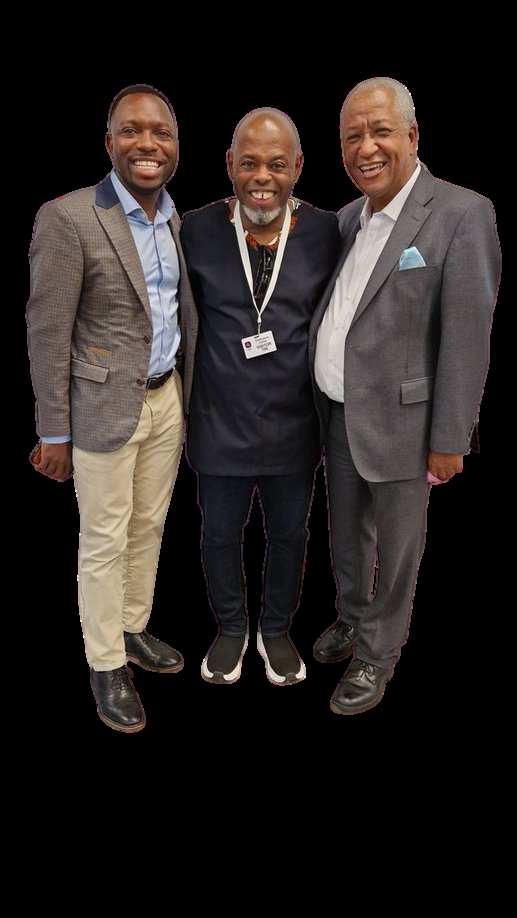
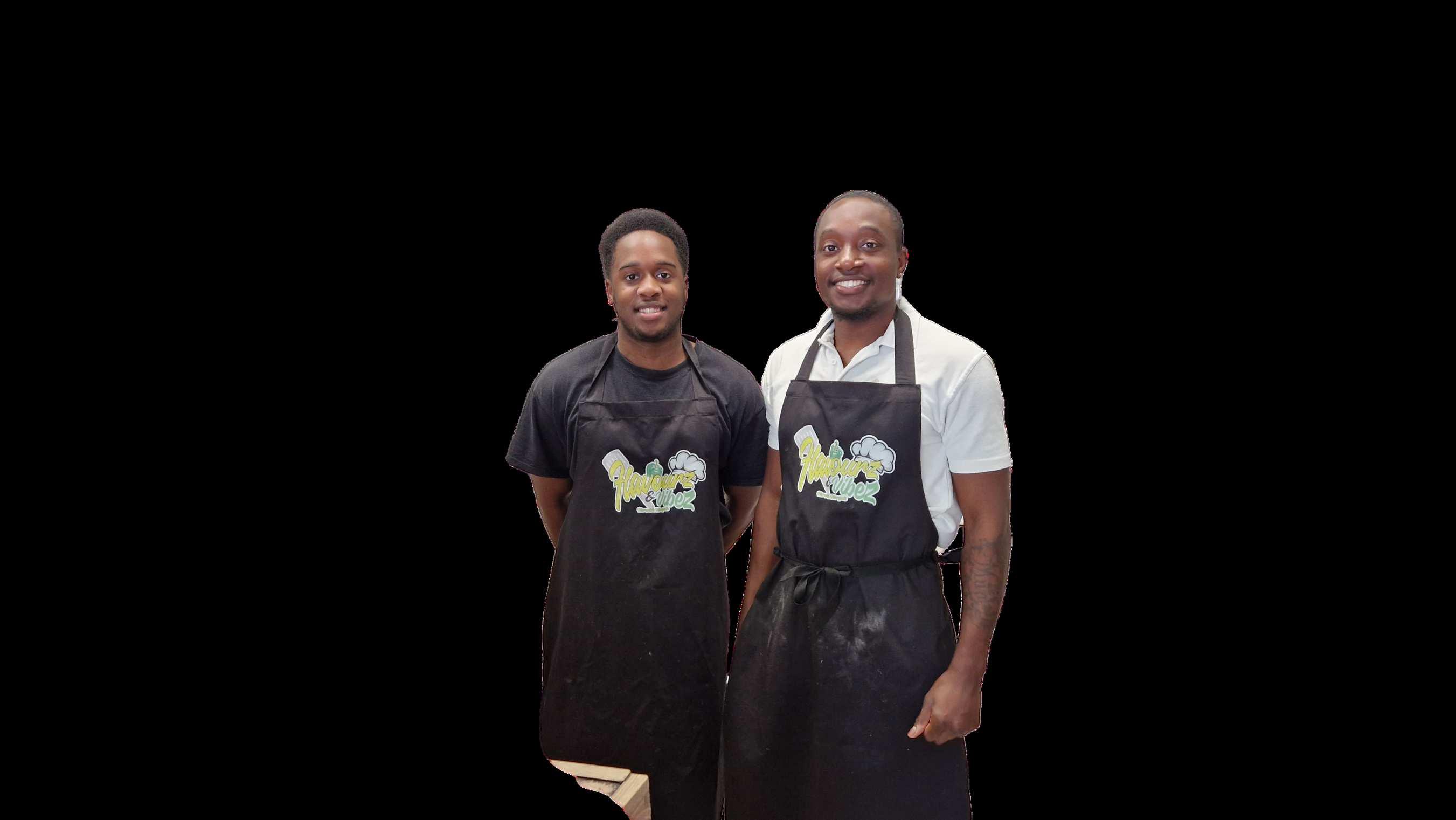




Eric is an Investor, Serial Entrepreneur & Host of Channel 4's The Money Maker. He currently serves as the CEO & Founding Member at Impact X Capital, investing in underrepresented entrepreneurs and his latest book We Don’t Need Permission is all about How Black Business Can Change Our World.

Dwayne is an accomplished AI Strategist with over a decade of experience in leveraging digital design solutions to drive business innovation, efficiency, and competitive edge. He is an expert in utilising AI for web design and SEO, identifying AI opportunities, and developing strategies that align with business goals.


Nicola is a PR professional with over 20 years PR experience. She is also the founder of the award-winning FP Comms - a boutique public relations agency that works with ambitious and socially aware businesses, and entrepreneurs. She recently released her first book, Swipe: Mastering the art of handling trolls and protecting your peace
With 35 years in health and fitness, she’s been sharing her passion for the human body globally. From cruise ships and TV appearances to

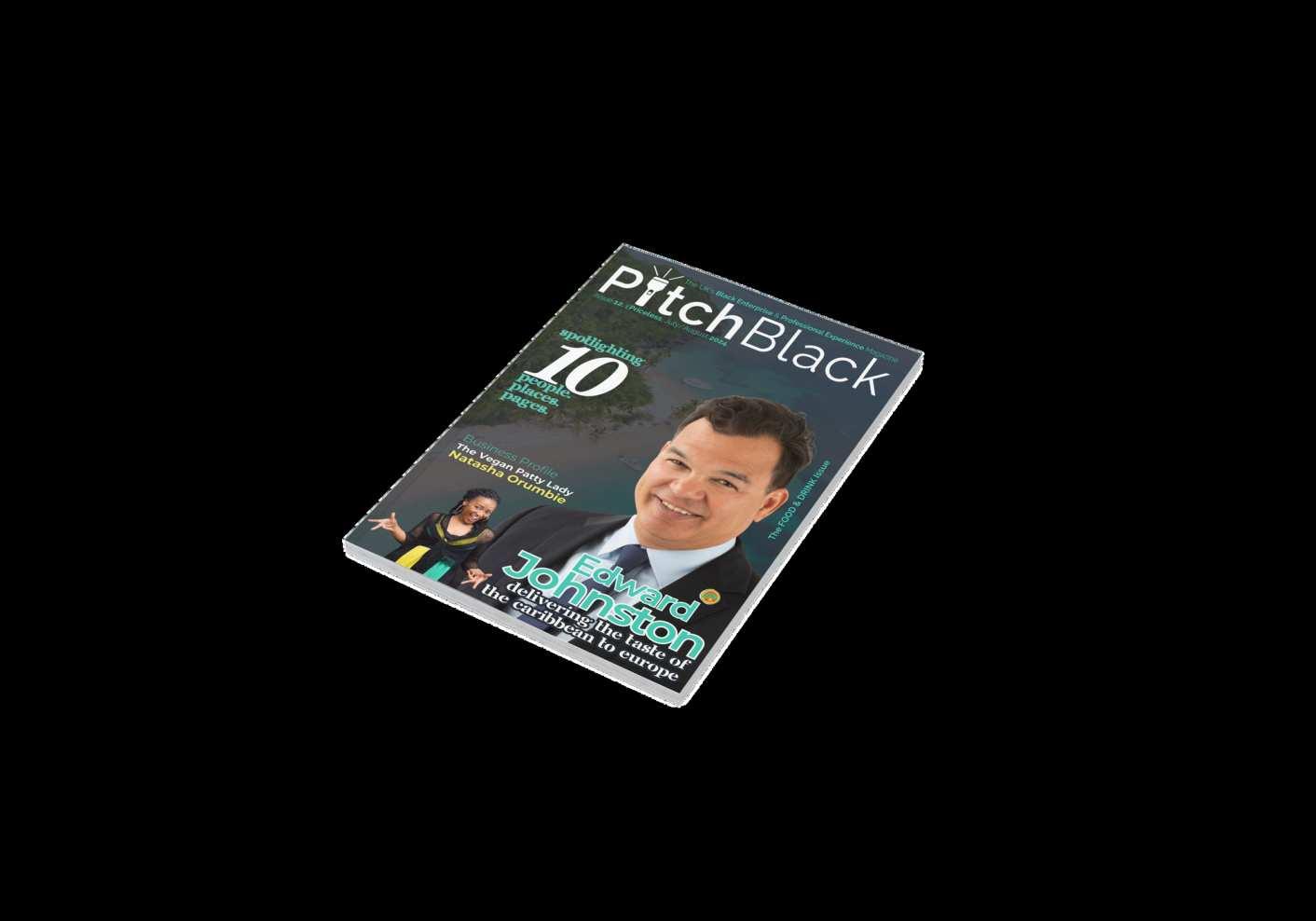

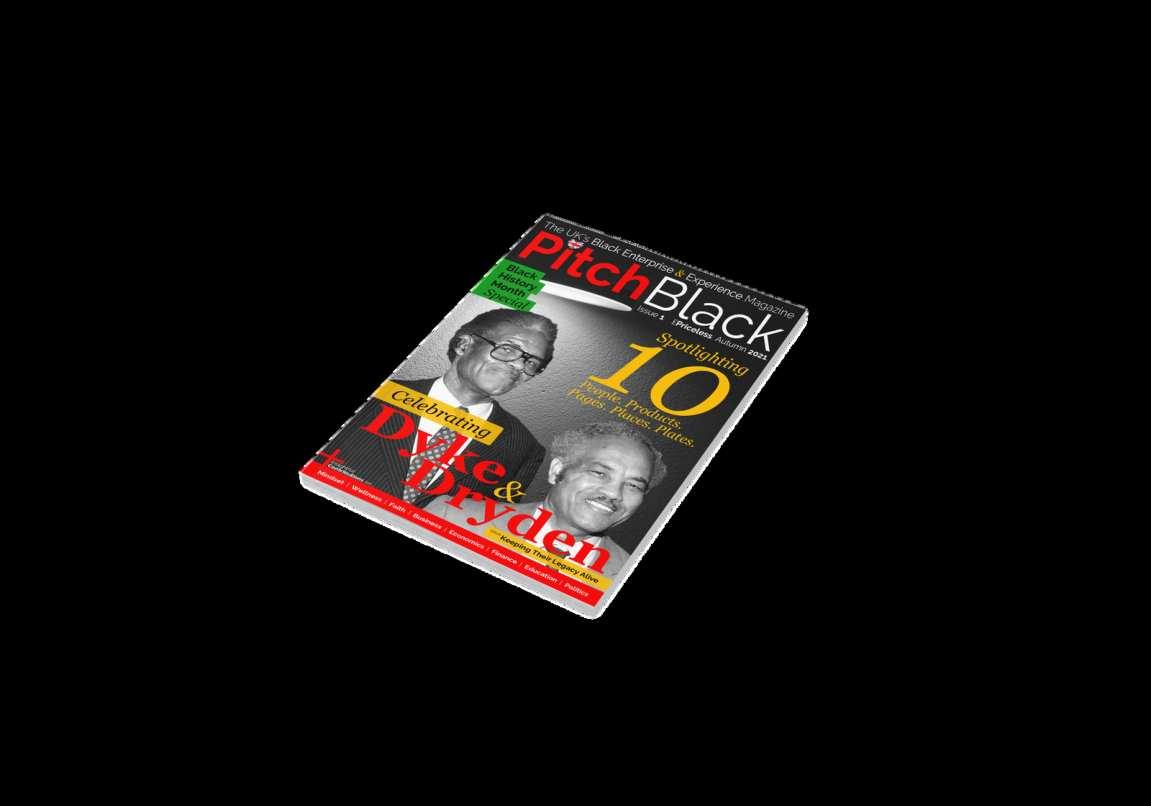
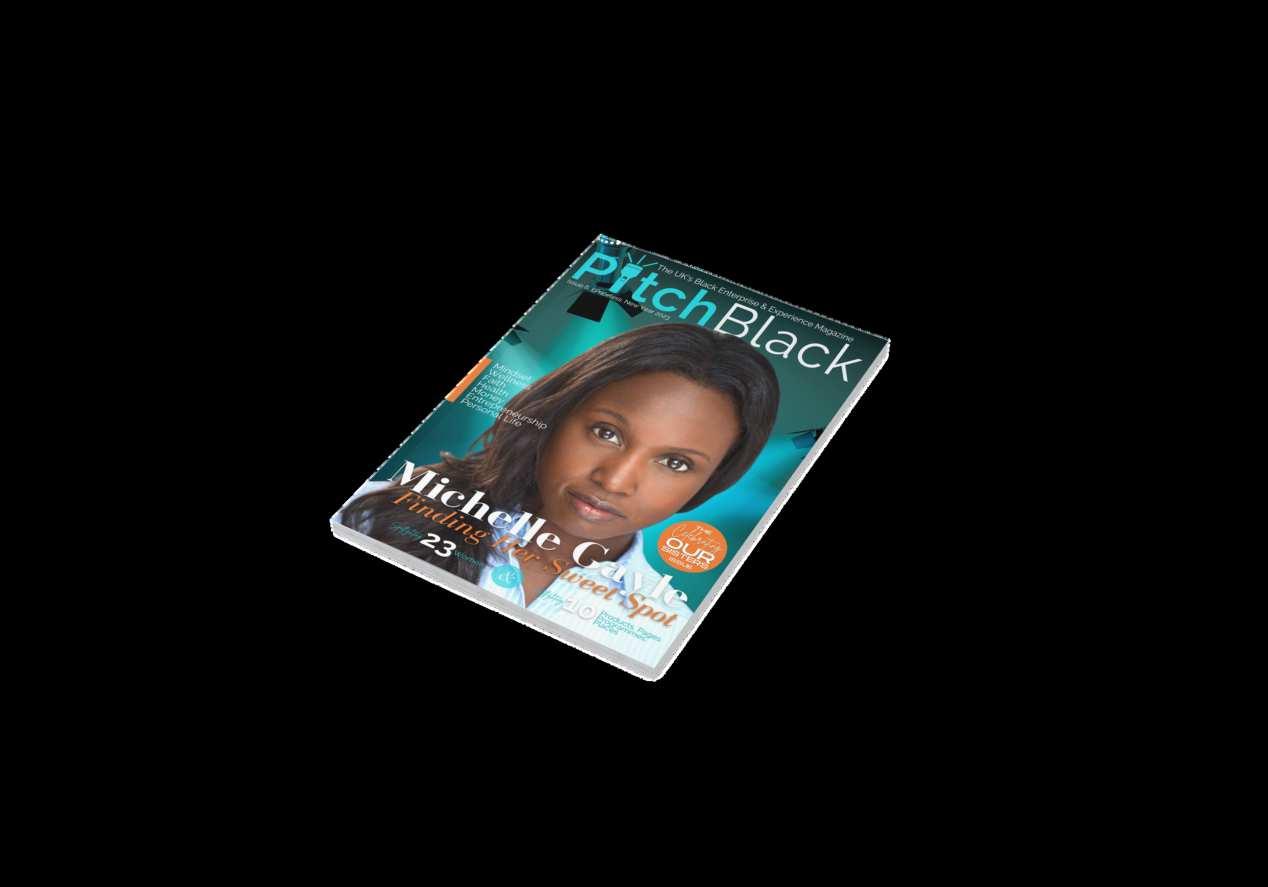
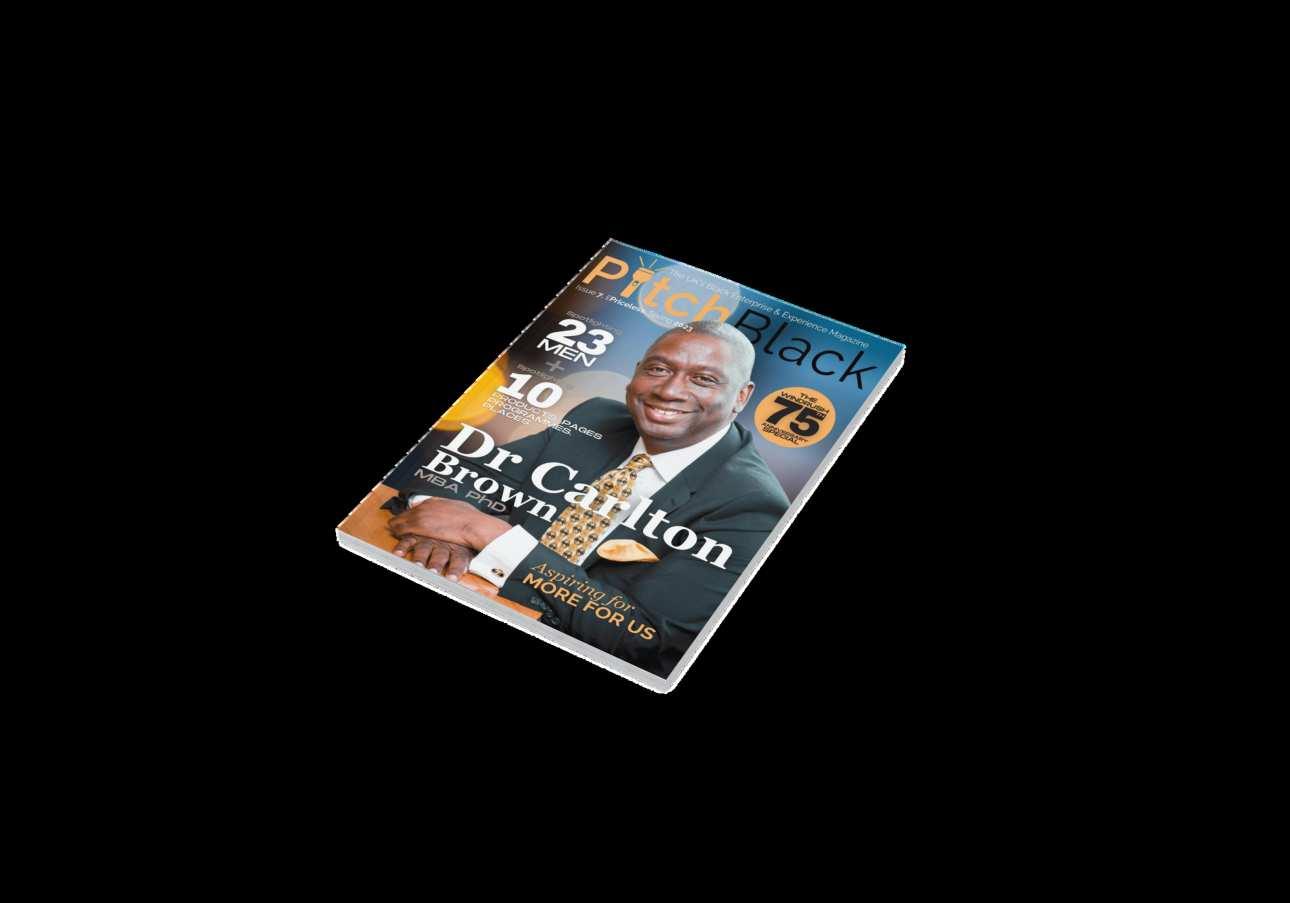
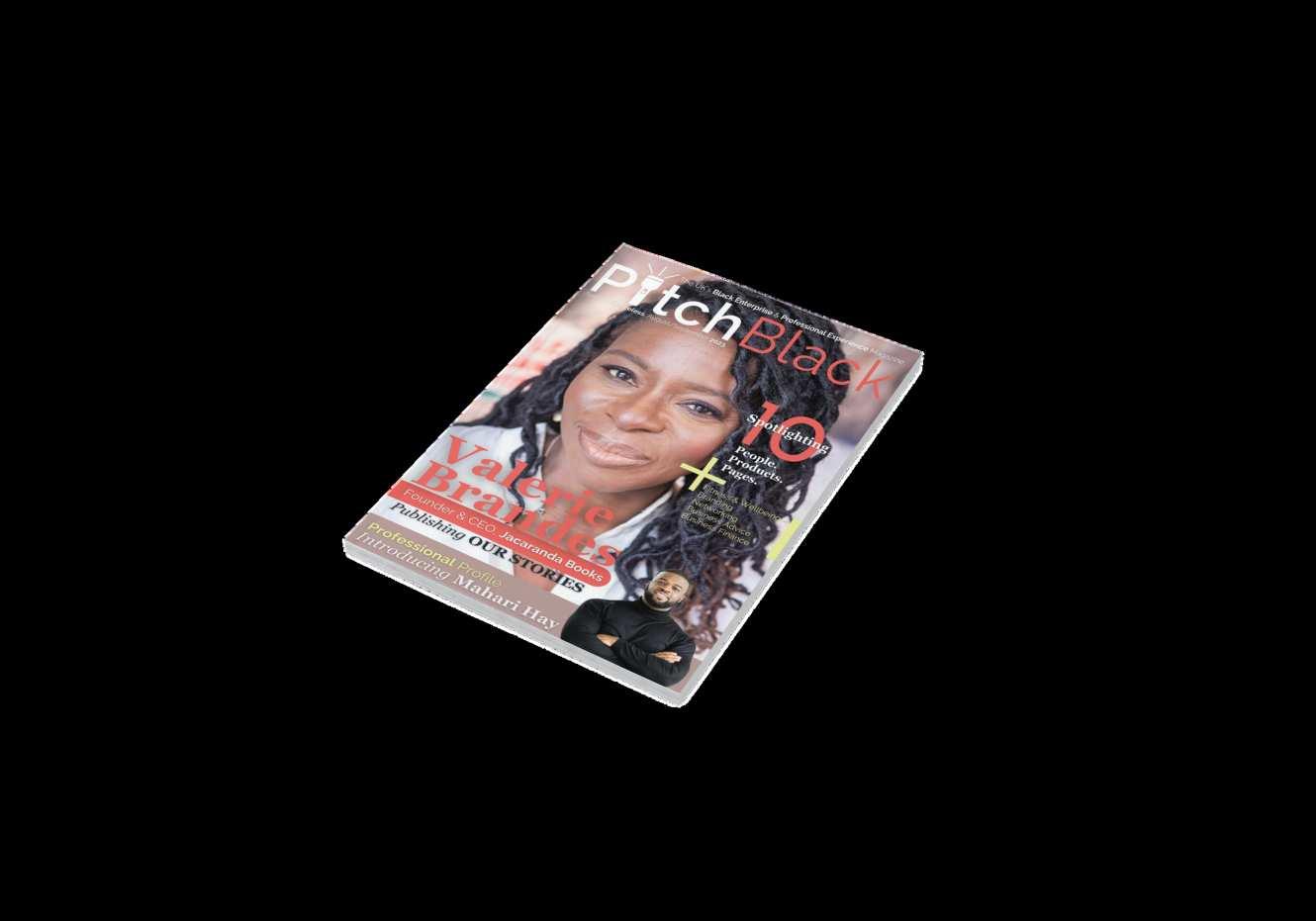
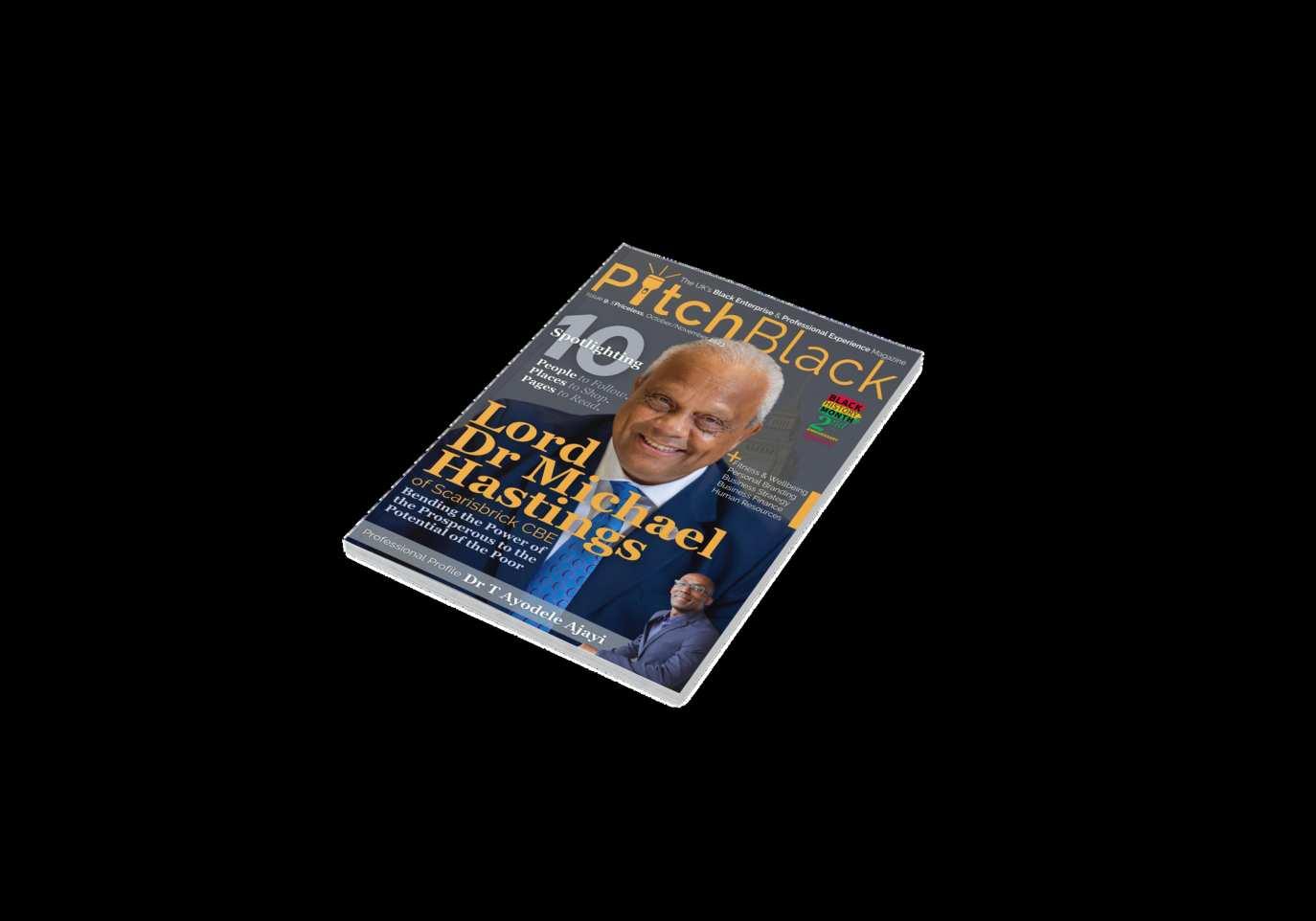
Publisher & Editor in Chief Colin Tomlin colin@pitchblack.online
Growth Resource Director Judy Lynch-Tomlin judy@pitchblack.online
Artistic Director
Reuben Tomlin reuben@pitchblack.online
Project Manager
Keshia Spencer keshia@pitchblack.online
Partnerships partnerships@pitchblack.online
Design eg Design design@experiencegrowth.online
Advertising advertising@pitchblack.online
Photography & Images
Reuben Tomlin LinkedIn Canva Instagram Facebook Adobe
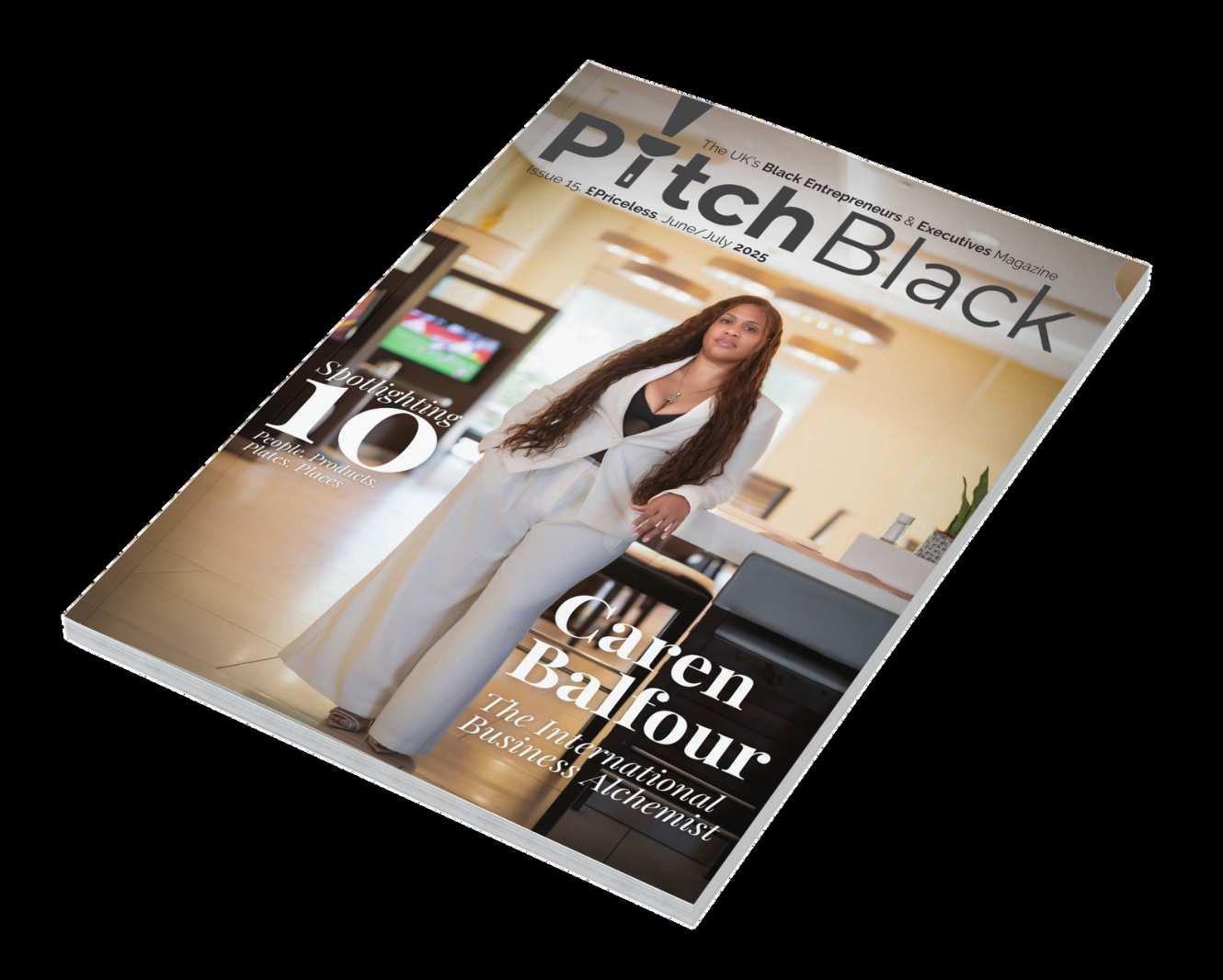
Publisher Pitch Black Online Ltd Norwich NR8 6HA
Terms & Conditions
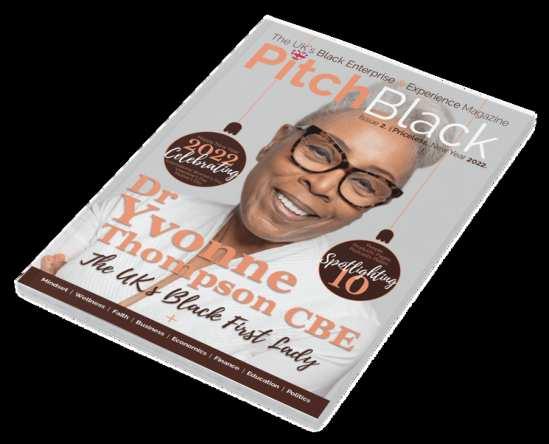
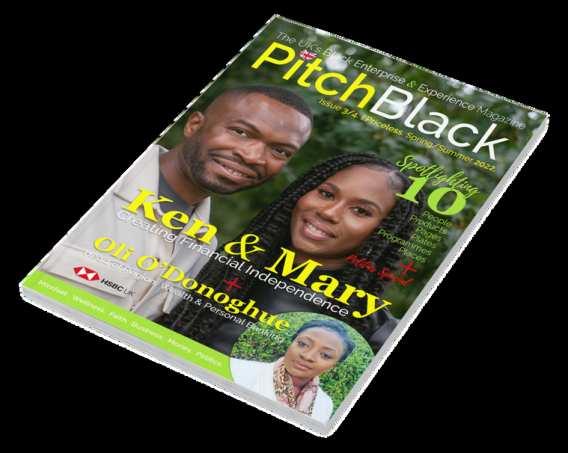

All materials are strictly copyrighted and all rights are reserved. No part of this online publication may be reproduced in whole or part without the expressed permission of experience growth Online Ltd.
Although every effort has been made to ensure the accuracy of the information contained in this publication, the publisher cannot be held responsible for any loss or damage of any material, solicited or unsolicited. The views expressed in this publication may are not those of the publisher or those of the advertiser. No cash alternative will be offered for Competitions and the publishers decision is final.
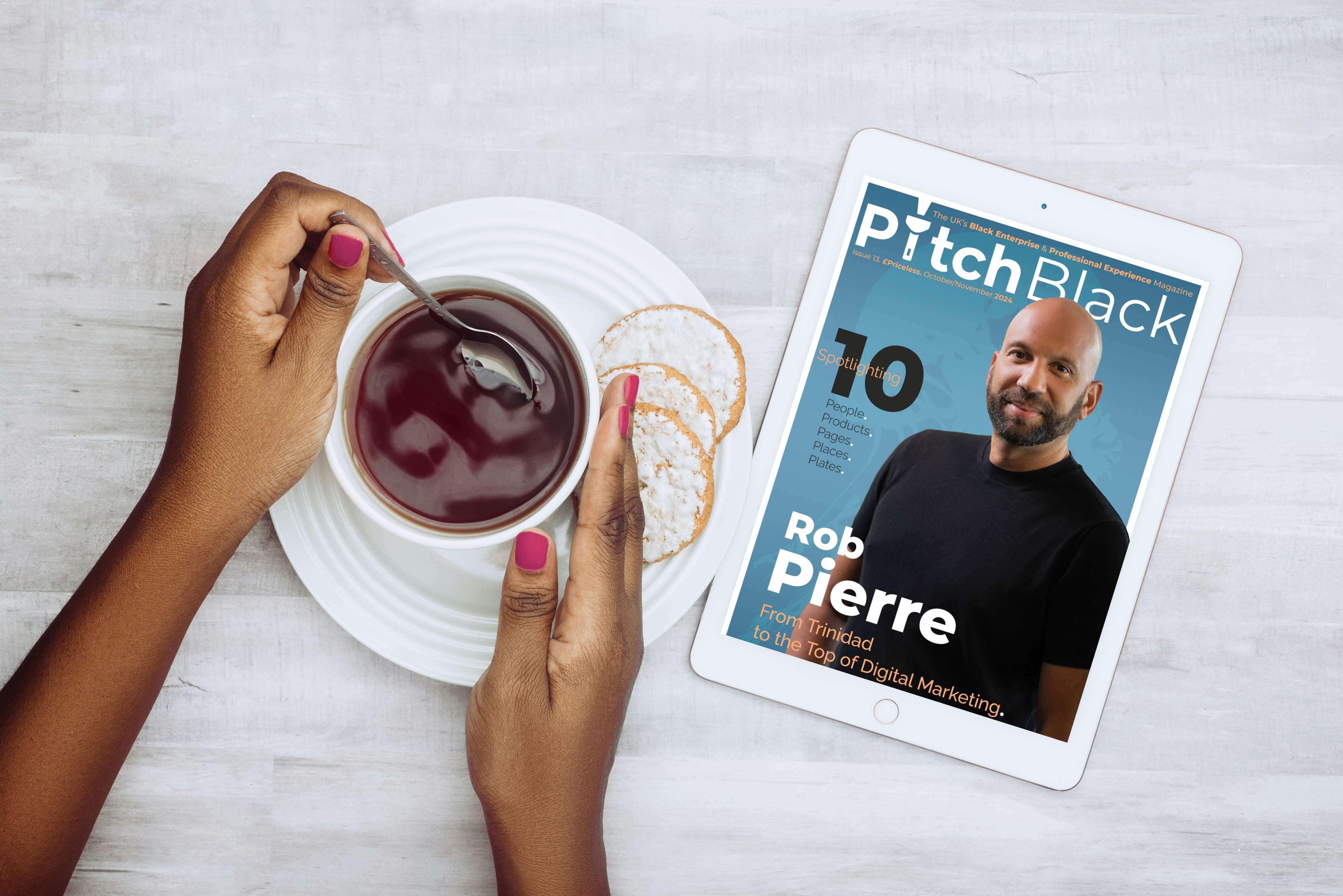


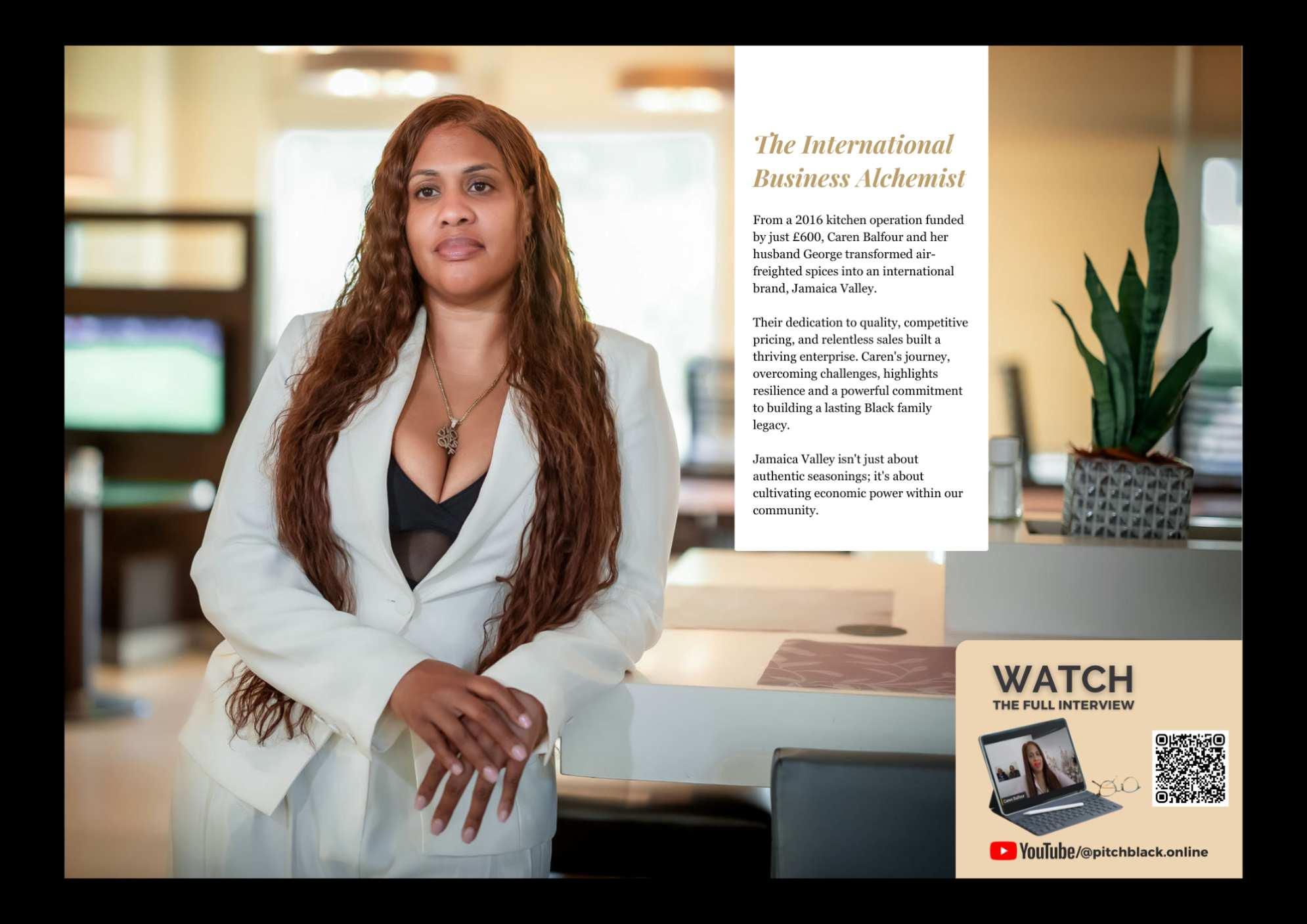
From a 2016 kitchen operation funded by just £600, Caren Balfour and her husband, George, transformed air-freighted spices into an international brand, Jamaica Valley.This isn't just about authentic seasonings; it's about cultivating economic power within our community.
The stories of Paul & Jacine Rutasikwa from Matugga Rum and that of Nyanga Fatou Mende of Dark Sugars are both examples of businesses that combine culture with commerce to positively impact our community. Not just here in the UK but also on the continent of Africa.
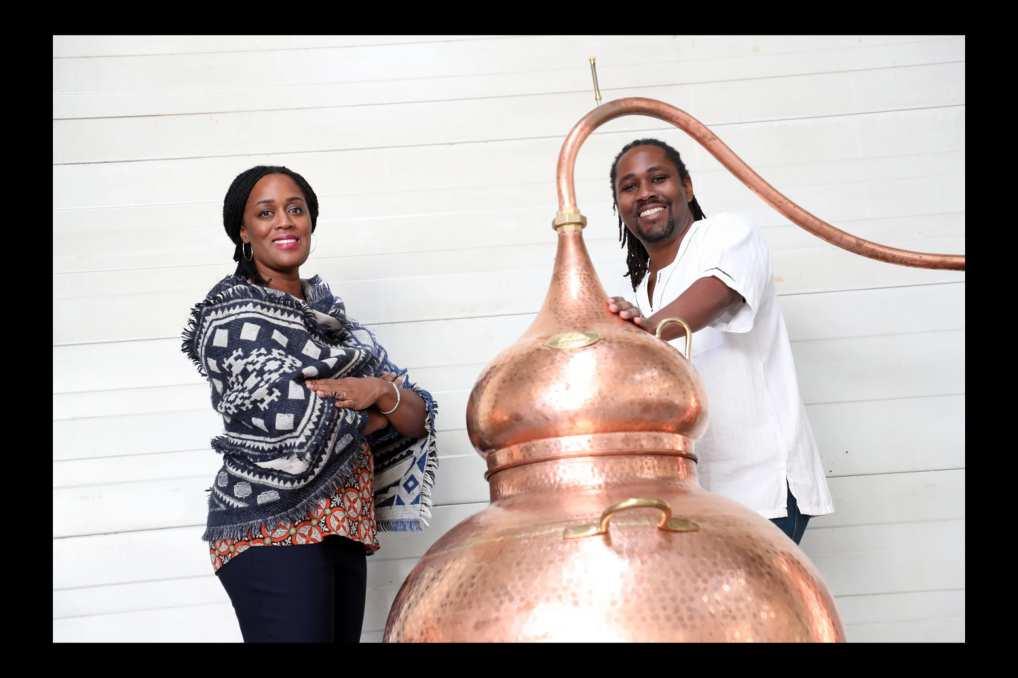
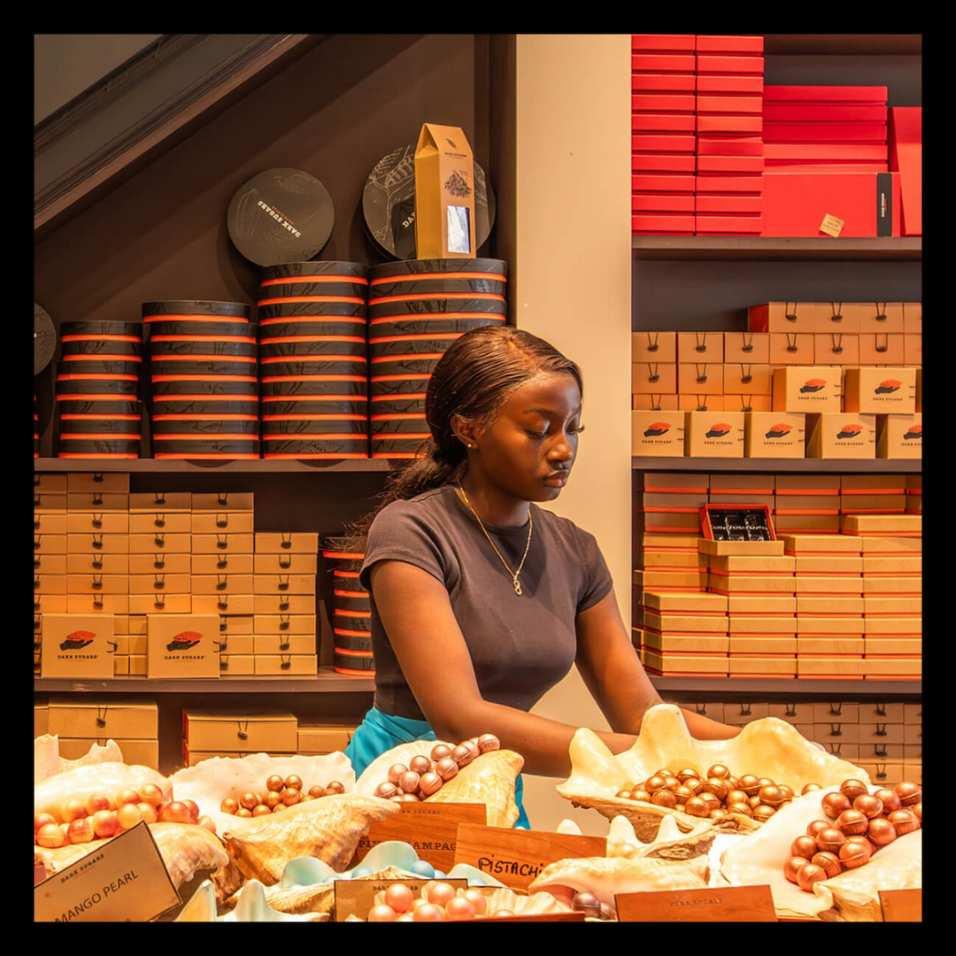






10 People to Follow




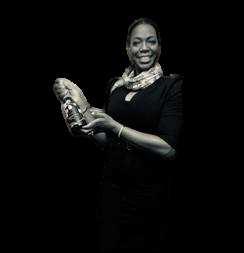


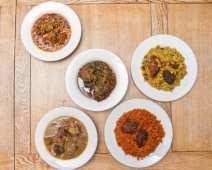
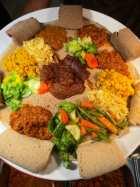
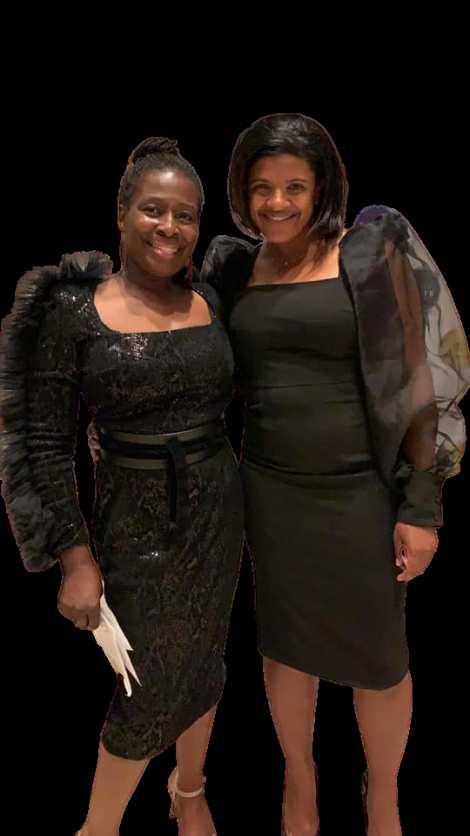


We spotlight 10 People to follow who are making an impact in the Food & Drink Industry.
10 Products to Buy
We spotlight lifestyle products to buy from the Cashblack platform.
10 Plates to Savour
We spotlight 10 eateries for you to order from the Cashblack platform and savour in collaboration with Uber Eats.



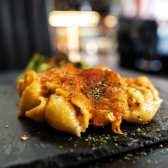
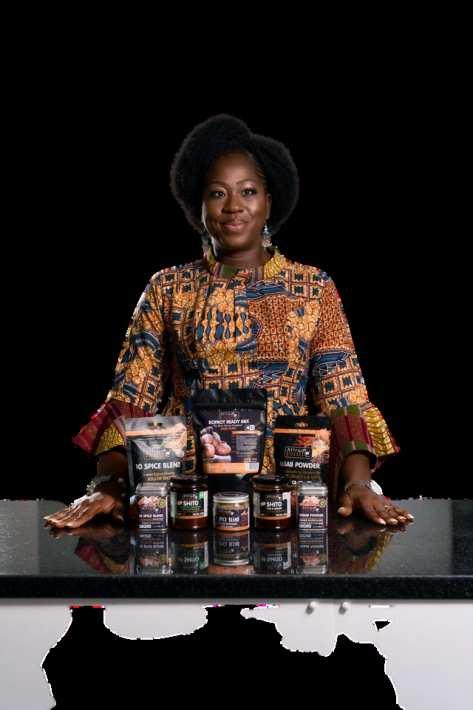

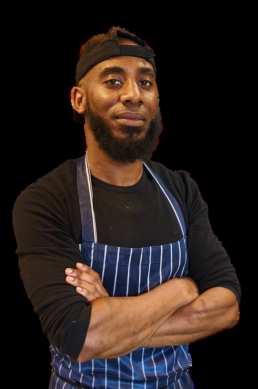






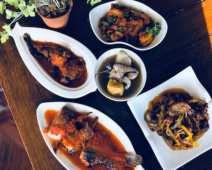
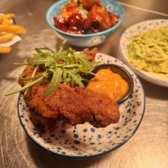

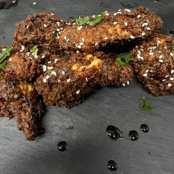
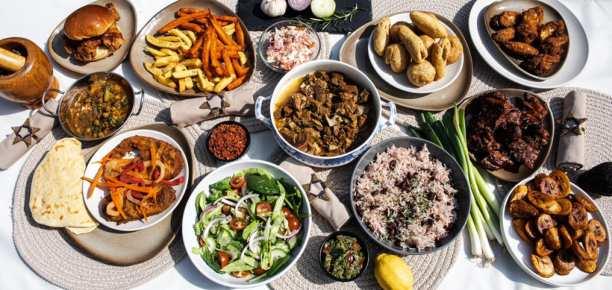
Mindset by Colin Tomlin
Colin asks if it9s all in the mind as he shares 5 keys to improve your relationship with food.
Food & Fitness by Andrea Stewart
Andrea talks about 2 F Words We Can9t Live Without whether you like it or not.
PR by Nicola Millington
Nicola introduces 3 Key Facts and 3 Ways to go about Protecting your Peace by Navigating Online Trolling.

Technology by Dwayne Ferguson
Dwayne explores how AI-powered apps are personalising the way you eat by doing away with 8one size fits all9 plans.
Business Strategy by Eric Collins
Eric encourages our food businesses to go Beyond the Kitchen by building sustainable empires and cementing our legacy in the global food industry.

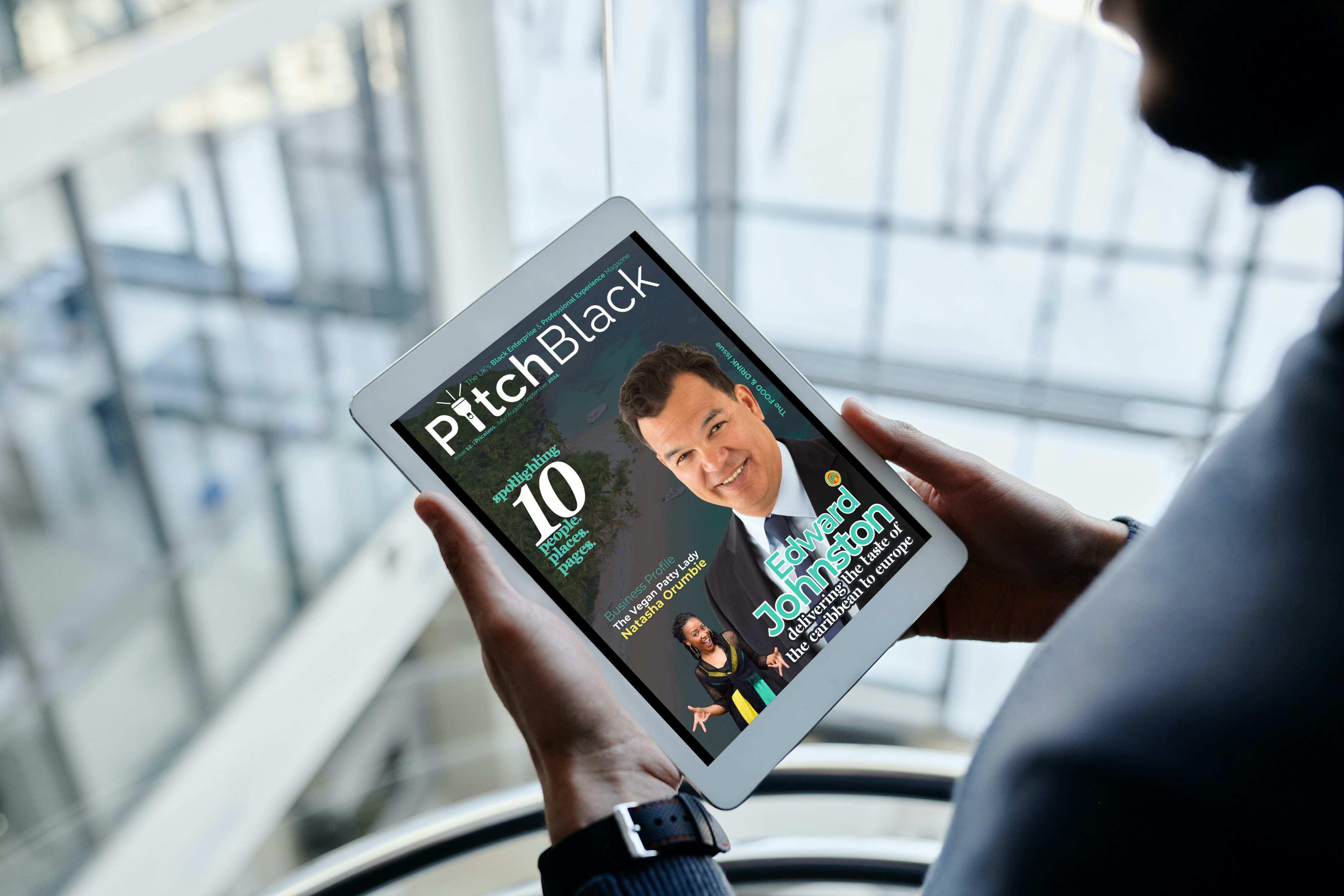


From a 2016 kitchen operation funded by just £600, Caren Balfour and her husband, George, transformed airfreighted spices into an international brand, Jamaica Valley.
Their dedication to quality, competitive pricing, and relentless sales built a thriving enterprise. Caren's journey, overcoming challenges, highlights resilience and a powerful commitment to building a lasting Black family legacy.
Jamaica Valley isn't just about authentic seasonings; it's about cultivating economic power within our community.







Caren Balfour's entrepreneurial journey exemplifies tenacity, foresight, and dedication to family and community upliftment. Her story, spanning diverse business ventures in Jamaica before establishing a thriving seasoning company in the UK, powerfully illustrates the drive to create enduring impact. Echoing W. E. B. Du Bois's 1899 quote about circulating dollars within communities, Caren and her husband George view Jamaica Valley as more than a business—it's a commitment to Black economic empowerment and a lasting legacy.
Her first major project was conceptualizing 'Completely Classified,' an online classified magazine. However, a Kingston printer advised against it, explaining that Jamaica wasn't ready for widespread internet usage in 2003-2004.
Pivoting quickly, Caren opened Lavel's Auto Parts in Runaway Bay using funds from selling her UK house. The business flourished, leading to expanded ventures including George's used tyre imports from the UK, a bar, restaurant, and tow truck operation.
Despite success, Jamaica's challenging business landscape—
I think once you have a reason for having your business and it is as big as saying it's legacy company, you don't treat it like it's a small business. You treat it like it's a big business day one.
Caren's entrepreneurial spark began in her twenties as a business travel consultant. After September 11th transformed the industry, she left her job, inspired by her entrepreneur husband George, and relocated to Jamaica.
marked by politics and red tape— proved overwhelming. A critical setback occurred when two containers of imported tyres were held at the wharf, which Caren believes was politically motivated due to their success impacting the
Back in the UK, Caren briefly worked as a fitness instructor but remained determined to avoid traditional employment. In 2016, she and George launched Jamaica Valley, recognizing a market void for authentic Jamaican products, particularly seasonings. They observed that quality Jamaican producers existed but weren't effectively reaching international markets.
Jamaica Valley started with just £600 capital. Early shipments consisted of approximately eight 50kg sacks of seasoning airfreighted from Jamaica. Caren packaged these in her kitchen with help from her children (all under 12), creating retail bags sold competitively at 99 pence. Their core belief was that product quality would ensure repeat customers.
seasonings. Retailers demanded consistency: if products sold, they needed reliable supply. George's persistence and rapport-building skills proved crucial as they expanded from London to Birmingham and Manchester, targeting areas with significant Caribbean populations.
Caren admitted stopping direct sales work because she took rejections personally, while George maintained a "water off a duck's back" attitude. Their operations evolved from kitchen to shed, then larger facilities, culminating in their current warehouse.
Jamaica Valley's foundation rests on unwavering commitment to authenticity and quality. Their seasonings are distinguished by the absence of MSG and added salt. Caren emphasized that the salty taste in many seasonings does not come from MSG, explaining that true seasoning focuses on herbs and spices, with salt added separately.
Distribution building was hands-on, led primarily by George. He visited supermarkets around London, asking owners—often Asian shopkeepers—to stock their
They use sea salt and advise customers to add it themselves. All seasonings are vegan, including those for meat, containing spices new tyre market. This became the "thing that broke the camel's back," prompting their return to the UK.
designed to complement specific flavours. The family's personal use of all products reinforces quality control, and they actively incorporate customer feedback.
Their dedication extends to exceptional customer service. Caren confidently stated it would be "extremely difficult to find somebody who has purchased anything from Valley to say that our customer service has not been 100%."
Beyond products, Jamaica Valley embodies legacy and Black community support.
Caren's upbringing included Saturday school teaching Black history, and Charmaine and Mark Simpson's Black History Studies significantly increased her awareness of Black economic power. This drive to build something lasting for her children is paramount.
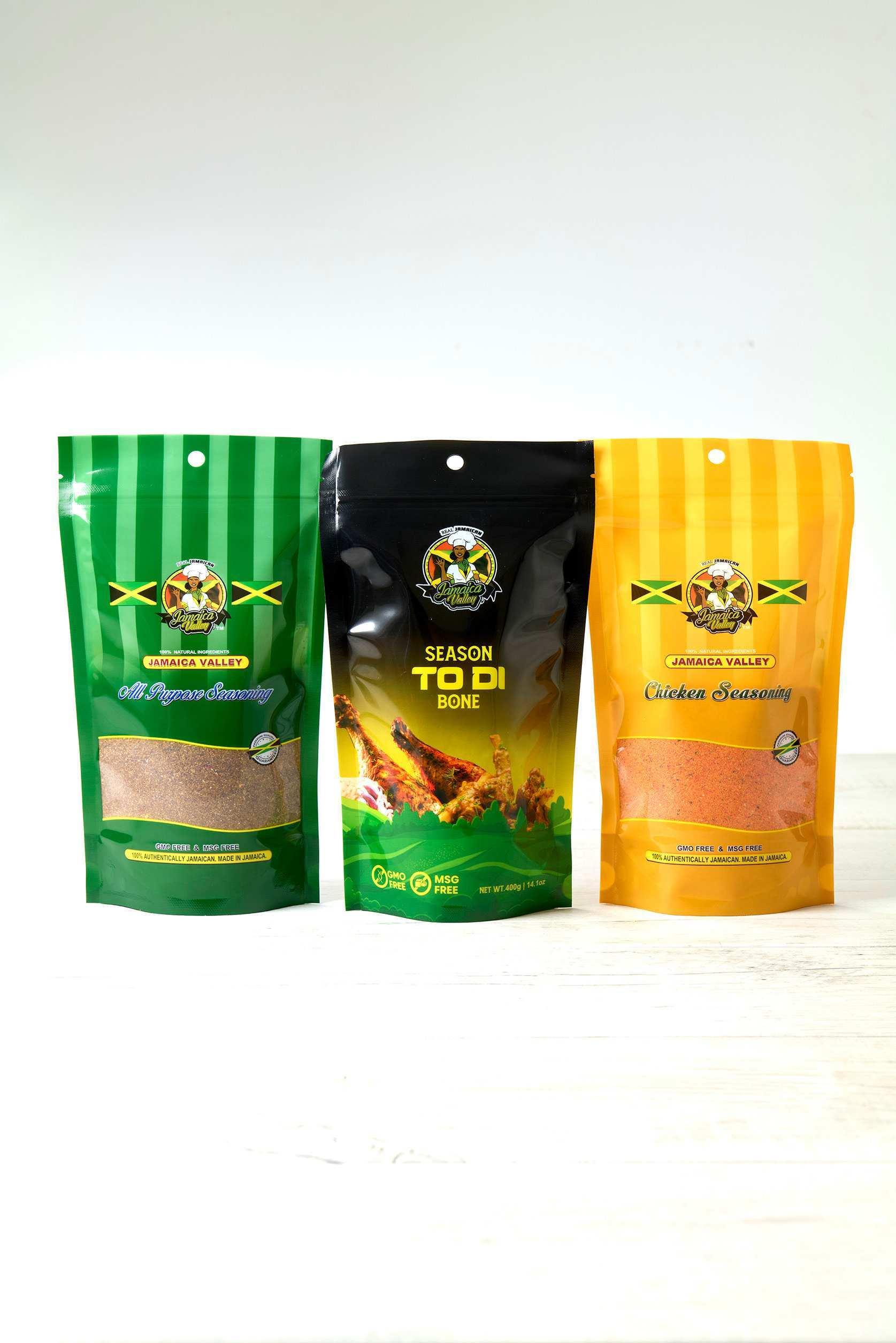
Her daughter serves as operations manager, while her son works parttime at the warehouse. She wants them to understand the effort involved and continue Jamaica Valley as a "Black family business."
Caren shared her perception of the dearth of legacy businesses within the UK Black community, resolving that Jamaica Valley will not be sold.
Establishing the brand involved increasing visibility and market education. Caren noted the impact of customers requesting their products in supermarkets. While early social media was effective, she acknowledged that current "pay-toplay" models make reaching customers more challenging.
Despite preferring to stay behind the scenes, Caren consciously became more public-facing, particularly on LinkedIn, understanding the need for the founder to tell the brand's story. She initially worried her British accent might compromise authenticity compared to her Jamaican husband.
Looking ahead, Caren and George harbour significant ambitions. For Jamaica Valley, they plan distribution expansion into African and Middle East regions. They recently partnered with Jumbo Foods as UK distributor, with initial shipments selling out rapidly, confirming the brand's appeal.
Beyond seasoning, they're investing in Jamaica, including a concrete block building factory in St. Ann and luxury apartment developments in St. Mary, strategically located near the expanding James Bond airport.
George's China trip aims to acquire another block machine to meet high demand.
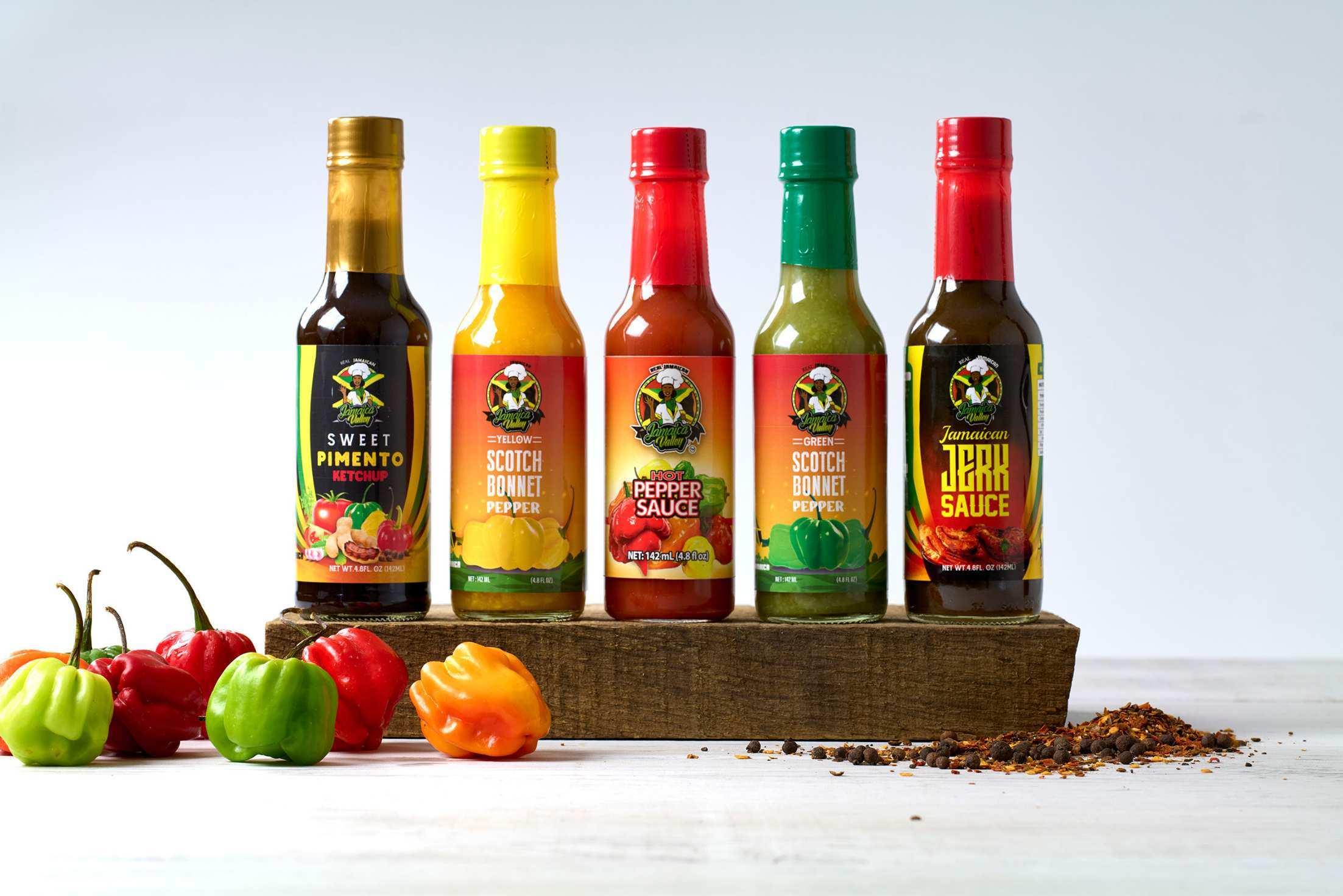

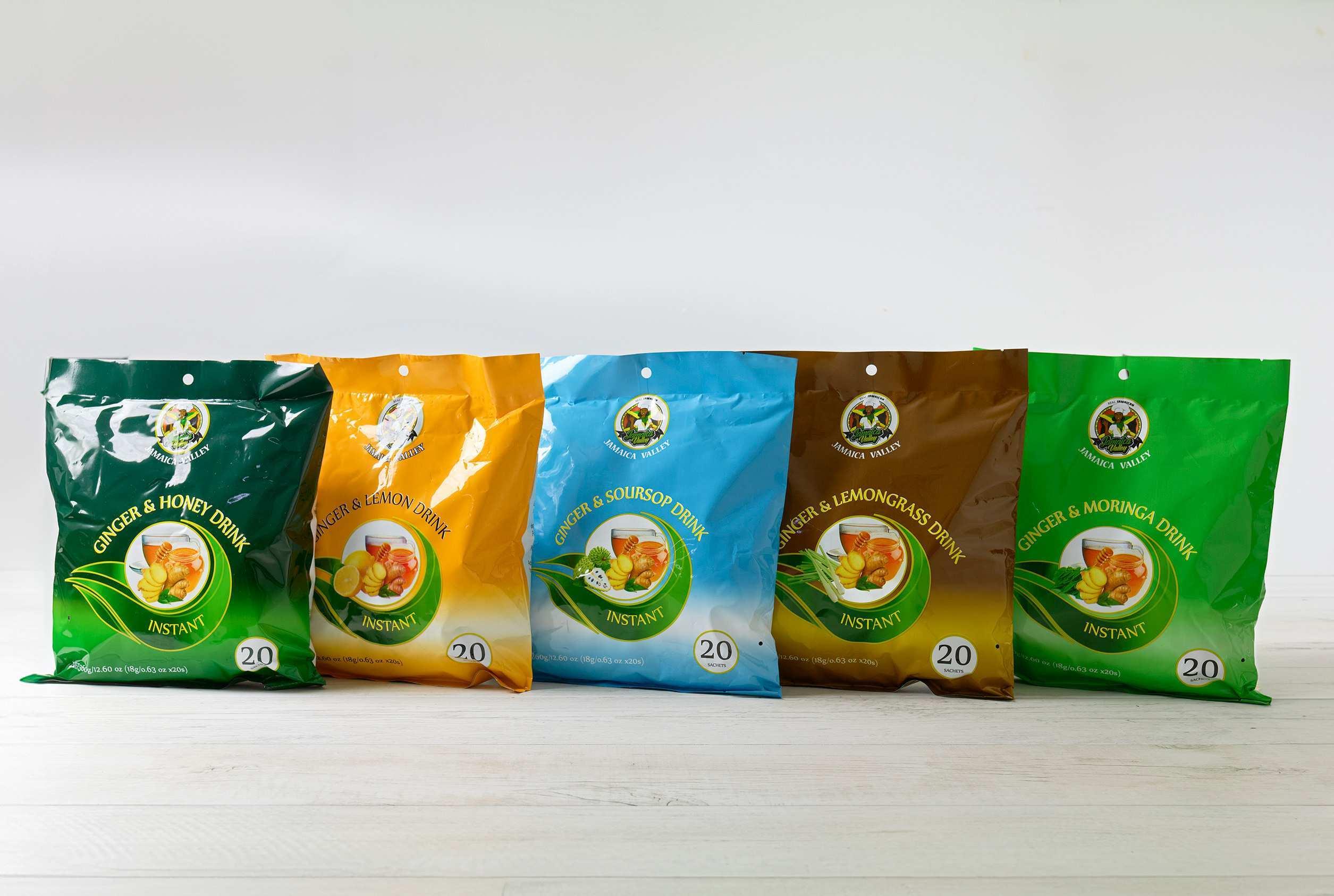
Caren's journey represents continuous learning, reflecting on the difference between making mistakes in her twenties versus later in life, where stakes and consequences are higher. She's encouraged her children's entrepreneurial spirit early, sharing about her son's business importing Jamaican cheese at age 11— including tough lessons when customs seized a shipment.
Regarding supporting Black-owned businesses, Caren argued that being Black-owned is insufficient; businesses must effectively meet market needs, be competitive, and educate customers. Jamaica Valley is priced reasonably for accessibility, not higher simply

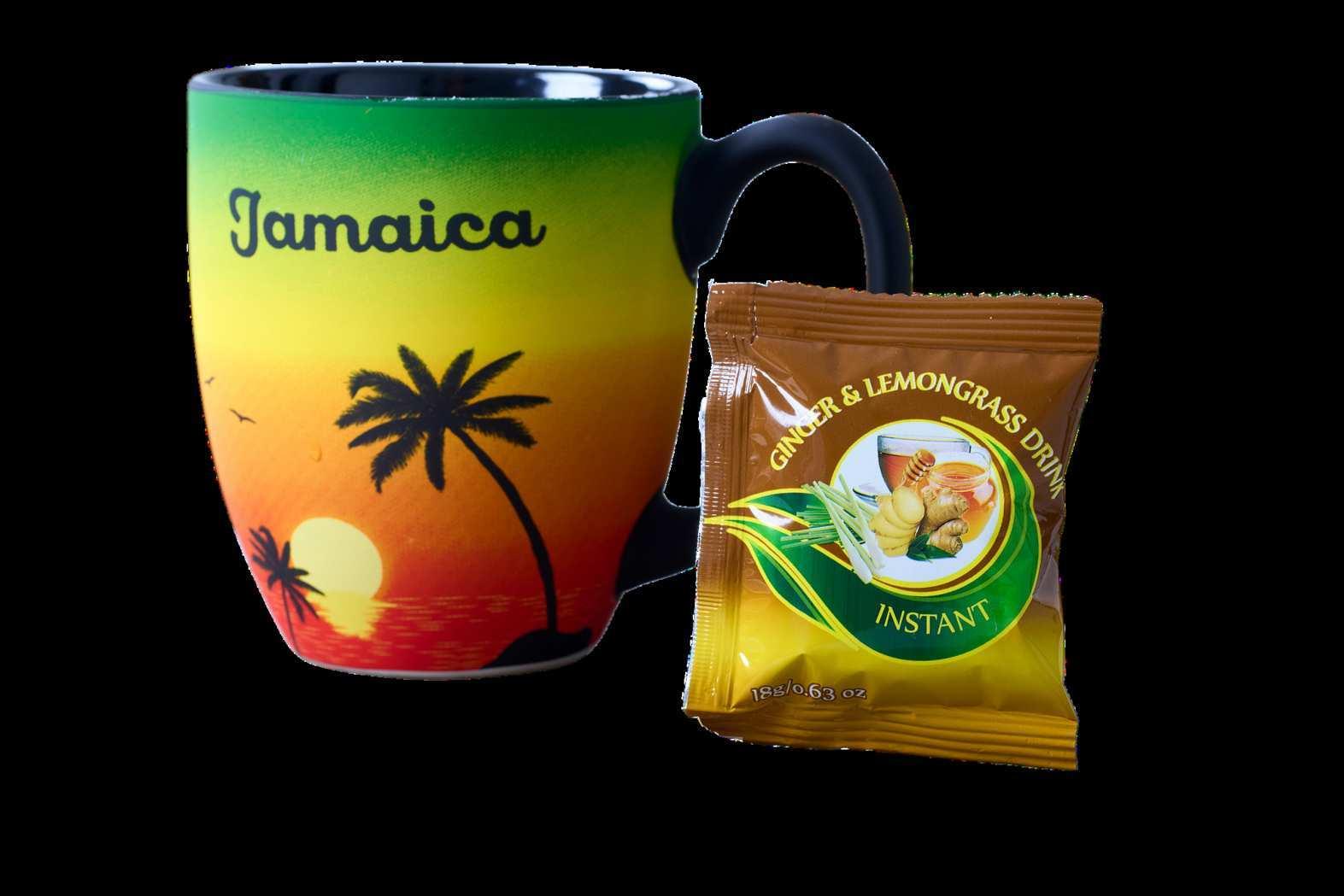

So yeah, that's just how it started. It didn't start big. It started really small. It started with £600, which is what I always tell people. Jamaica Valley started with £600.


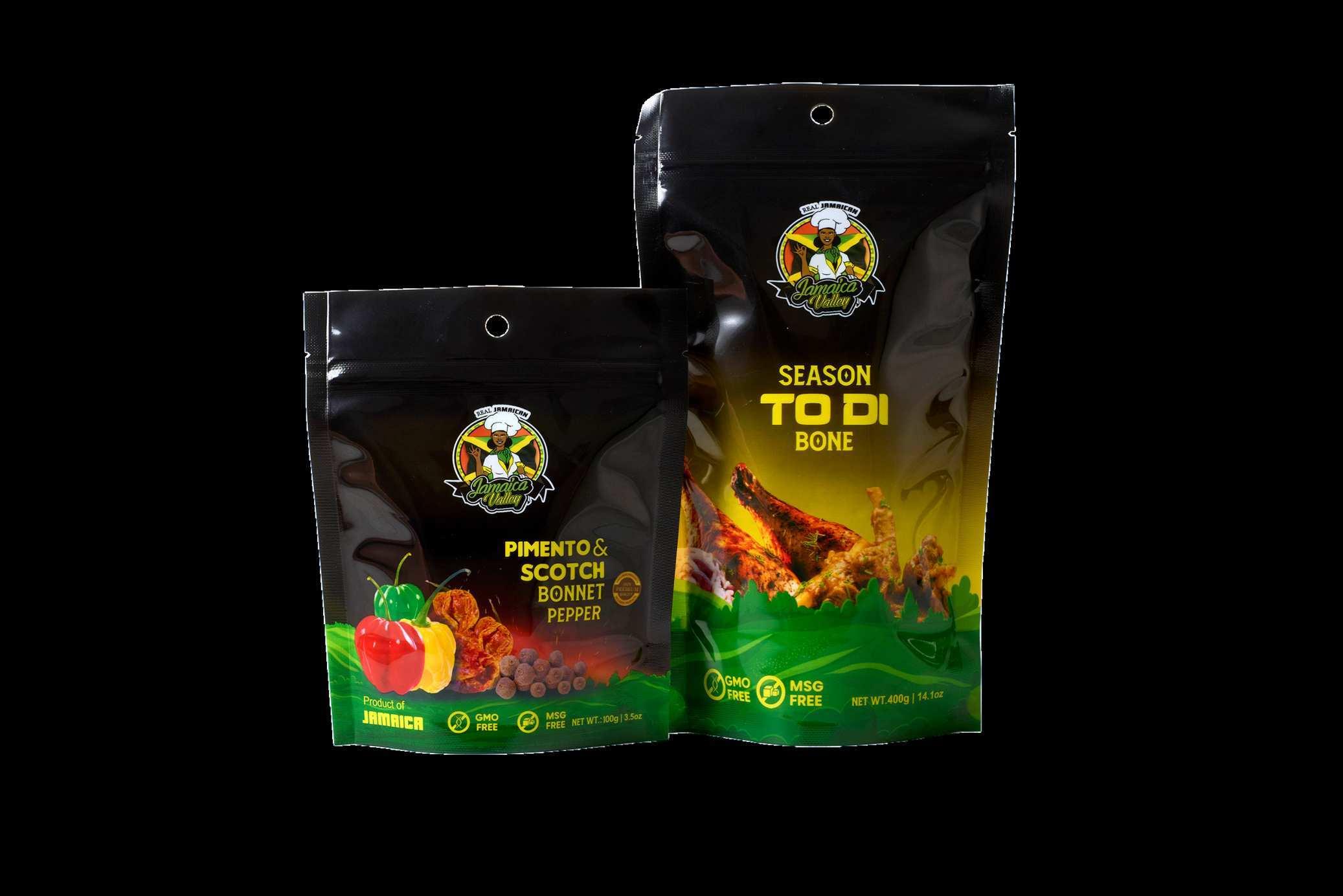










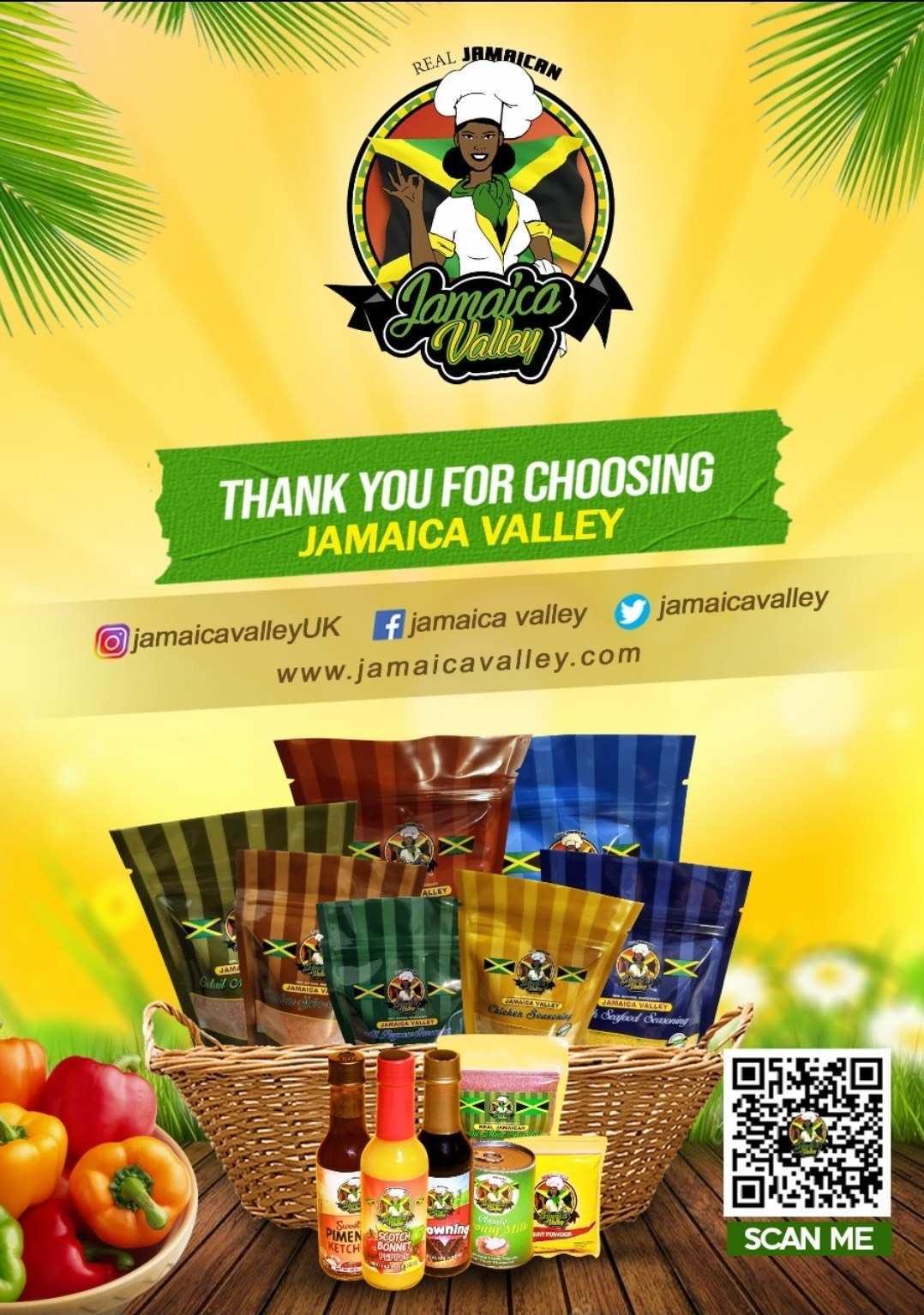




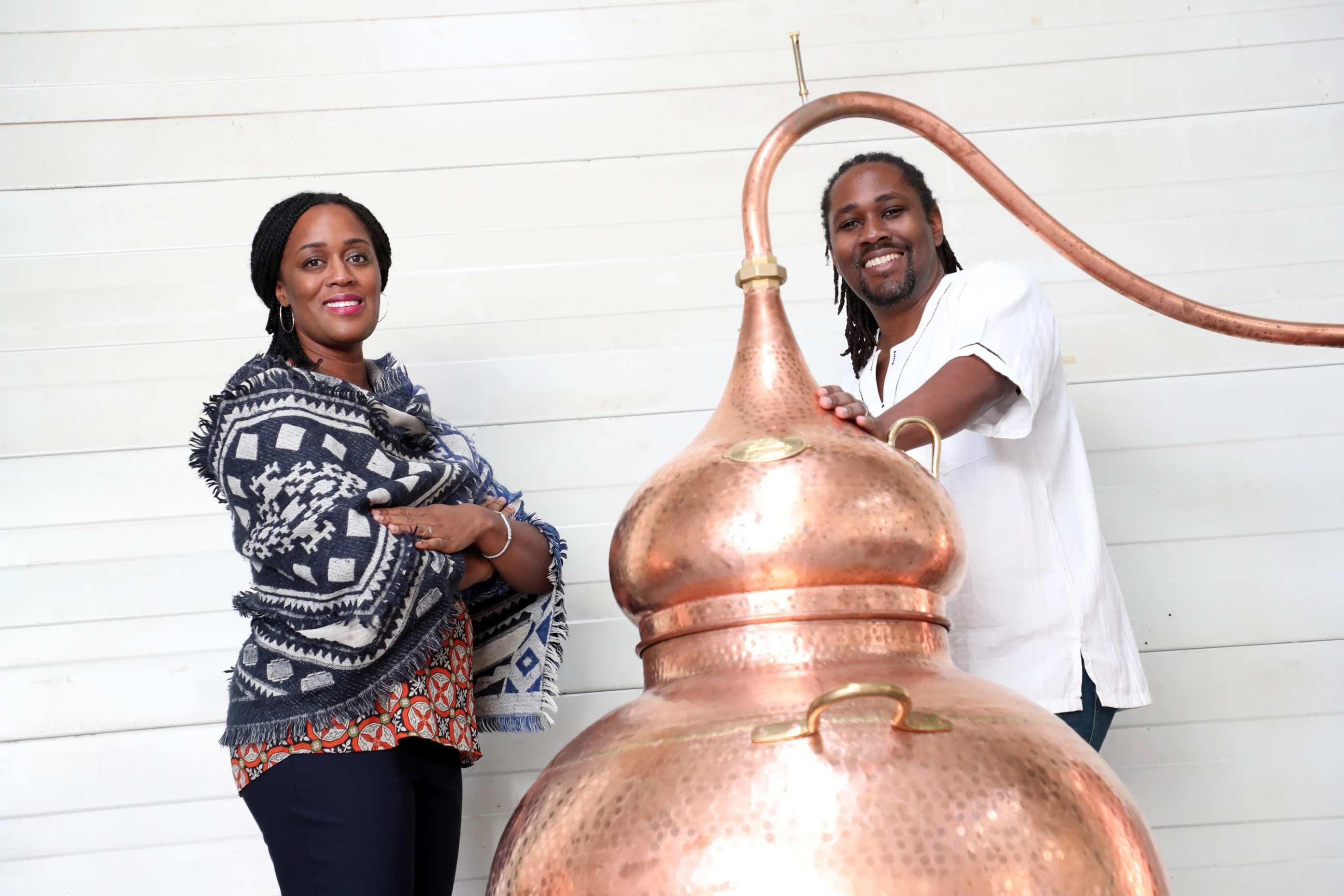

The story of Matugga Rum is a compelling blend of African heritage, Scottish craftsmanship, and the unwavering vision of its founders, Paul and Jacine Rutasikwa.
This husband-and-wife team embarked on a journey to redefine the rum landscape, infusing it with a unique identity that celebrates their roots while embracing innovative distilling techniques.


Paul, a civil engineer by profession, and Jacine, with a background in corporate marketing, initially pursued Matugga as a side hustle.
Their inspiration stemmed from Paul's Ugandan heritage and Jacine's Jamaican roots, coupled with a shared passion for rum. The name 8Matugga9 itself holds deep personal
significance, referring to a town in Uganda where Paul's family owns land.
This connection to the land and its agricultural bounty is a foundational element of their brand.
Their initial foray into the rum world began in 2015, launching Matugga Rum at the London Rum Festival. At a time when UK-produced rum was a rarity, their offering, distilled from East African molasses, raised eyebrows. However, the quality of their golden and masala chai-spiced rums quickly silenced any skeptics, leading to an export deal and prompting the Rutasikwas to consider taking their passion fulltime.
A pivotal trip to Martinique, where they met and learned from family distillers, solidified their decision to "go all-in." This commitment led them to relocate their family from England to Scotland, where Paul pursued formal distillation training at Heriot-Watt University. This academic rigor, combined with his innate understanding of spirits, laid the groundwork for Matugga Distillers. In 2018, they established their own distillery in Livingston, Scotland, taking full control of the production process.
The success of Matugga Rum is a powerful narrative of passion, perseverance, and a deep respect for heritage.
Paul and Jacine Rutasikwa have not only created an exceptional range of
rums but have also built a business that embodies their commitment to quality, ethical sourcing, and a vision of bringing the vibrant flavours of Africa to the world, crafted with Scottish precision.
matuggarum.co.uk

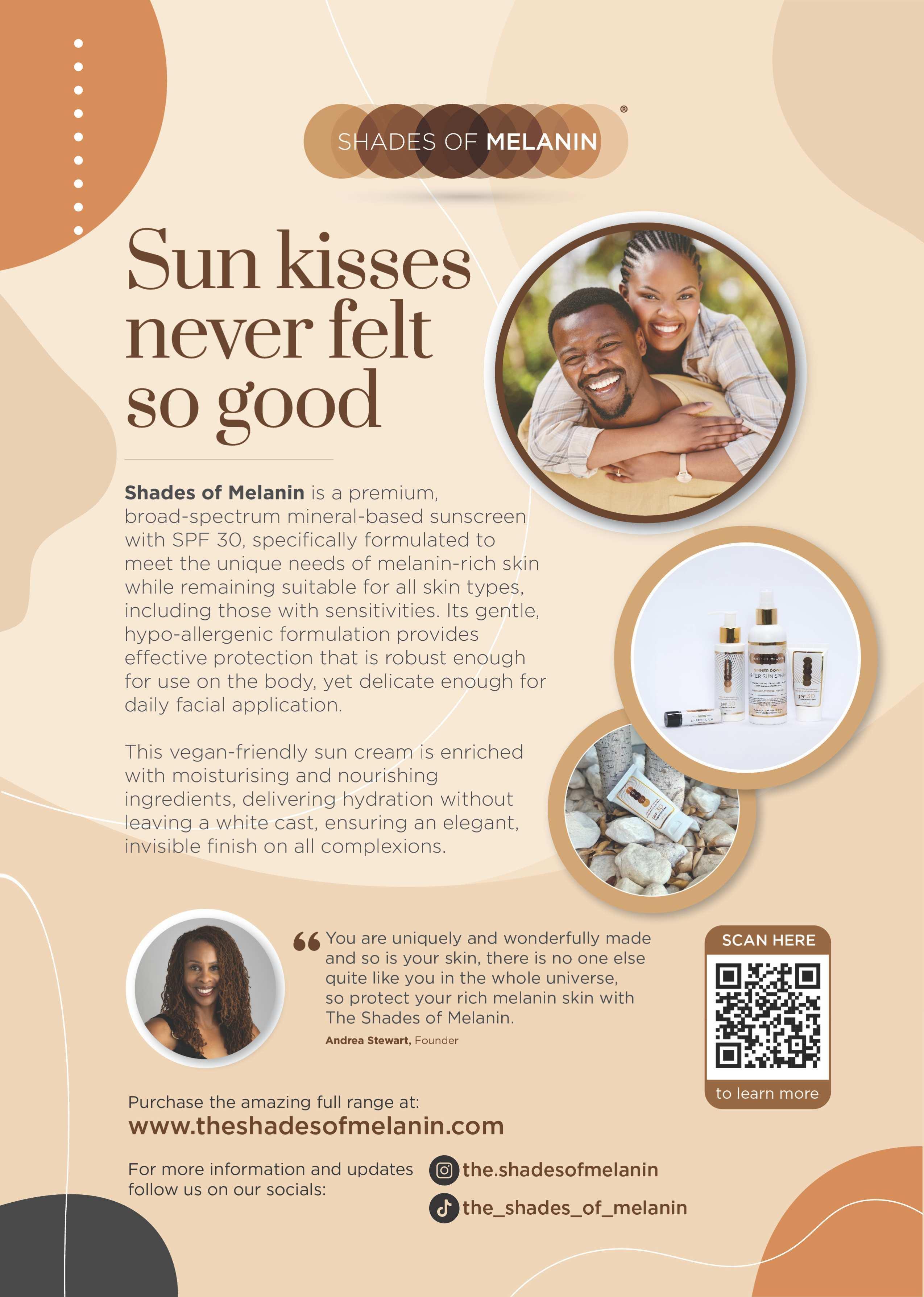


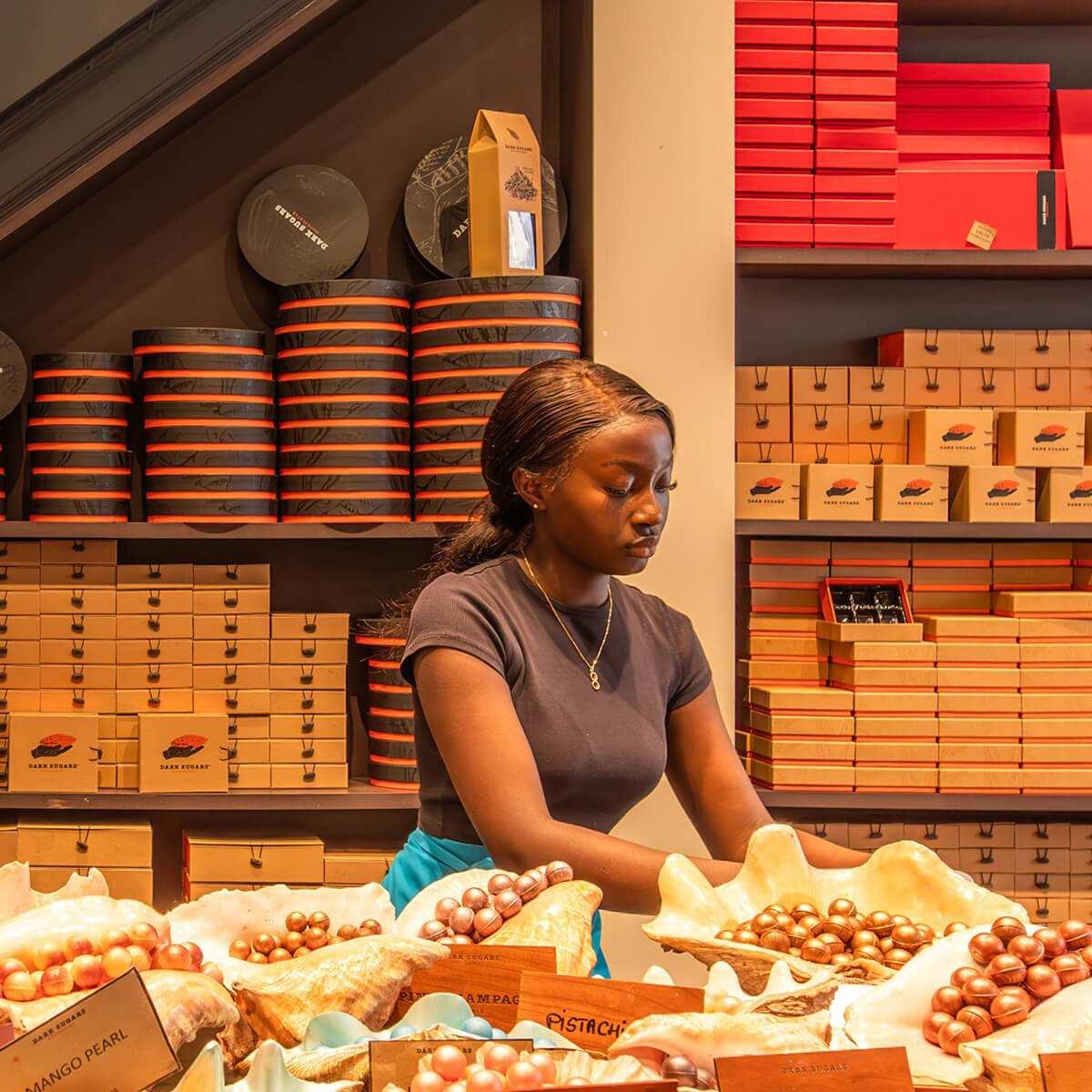

Dark Sugars Chocolate, a name synonymous with rich, authentic cocoa experiences in London, is the brainchild of Nyanga Fatou Mende. Nyanga's vision, passion, and deep connection to cocoa have undoubtedly been the driving force behind the brand's success. Her journey is a compelling narrative of heritage, dedication, and a desire to elevate West African cocoa on the global stage.

Born in Ghana, a region that produces a significant portion of the world's cocoa, Nyanga's understanding of the bean goes beyond the superficial. She spent three formative years researching cocoa cultivation on her family's farm. This immersive experience provided her with invaluable knowledge about the nuances of
cocoa, from its growth and harvesting to its processing. This deep-rooted connection to the source is a cornerstone of the Dark Sugars ethos.
Nyanga's entrepreneurial journey began in London's vibrant market scene. Starting with just two truffles and an unwavering spirit at Spitalfields and Borough Markets, she introduced Londoners to the authentic taste of African cocoa. Her handcrafted truffles quickly gained a following, word-of-mouth spreading about the unique flavours and the passionate woman behind them.
In 2013, Nyanga took a significant step, establishing her first shop in the eclectic Brick Lane. This location, known for its diverse culinary scene, proved to be a fitting home for Dark Sugars' distinctive offerings. The aroma of roasting cocoa beans and the sight of handcrafted chocolates drew in locals and tourists alike, revitalizing a corner of Brick Lane with the sweet scent of Ghana.
The success of the Brick Lane shop paved the way for further expansion.
In 2015, a second location, the Cocoa House, opened, further solidifying Dark Sugars' presence in London's chocolate landscape.
Then, in late 2021, a four-story flagship "Cacao House" opened in Greenwich, a testament to Nyanga's growing ambition and the brand's popularity. This impressive space offers not only a retail experience but also immersive cocoa workshops and a future cocoa bar, promising a multi-sensory journey into the world of chocolate.
Nyanga's vision extends beyond just selling chocolate. She aims to educate consumers about the origins and the often-overlooked quality of West African cocoa. By connecting her business to the agricultural traditions of her homeland, she celebrates not
just the confectionery but also the potential health benefits of cocoa.
The success of Dark Sugars is a testament to Nyanga Fatou Mende's entrepreneurial spirit, her profound knowledge of cocoa, and her unwavering commitment to quality and authenticity. From a humble market stall to a multi-story flagship store, Dark Sugars has carved a unique niche in London's chocolate scene, offering a truly distinctive and enriching cocoa experience rooted in Ghanaian heritage and a passion for the bean.
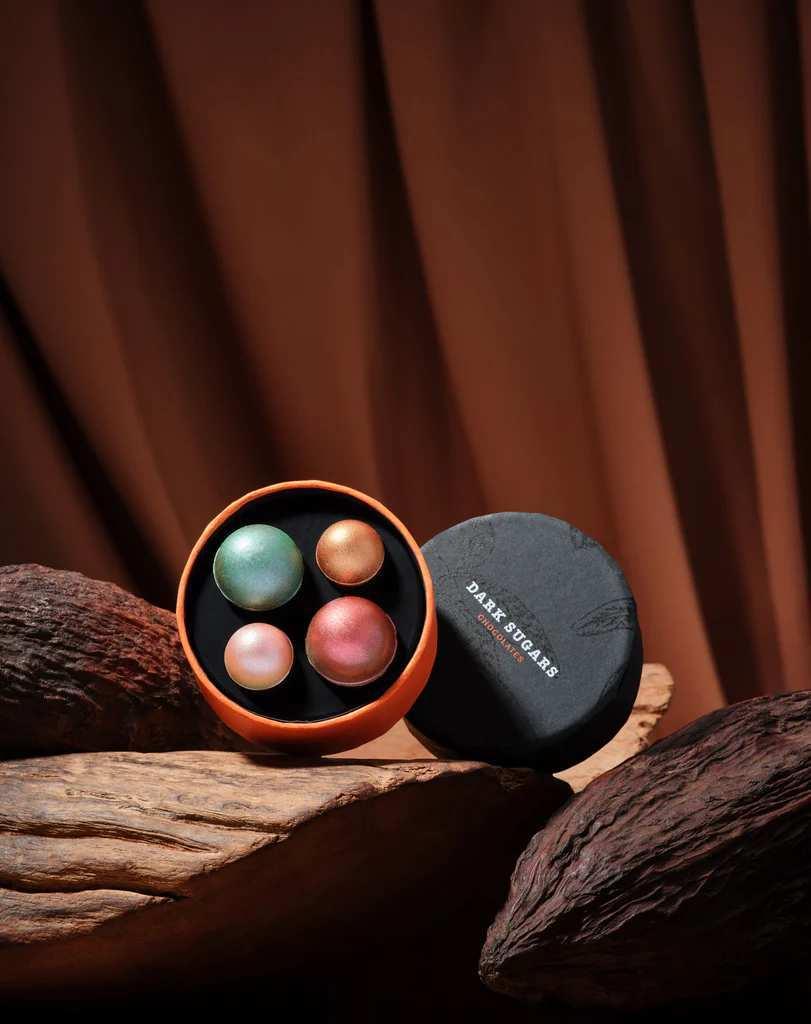
darksugars.co.uk





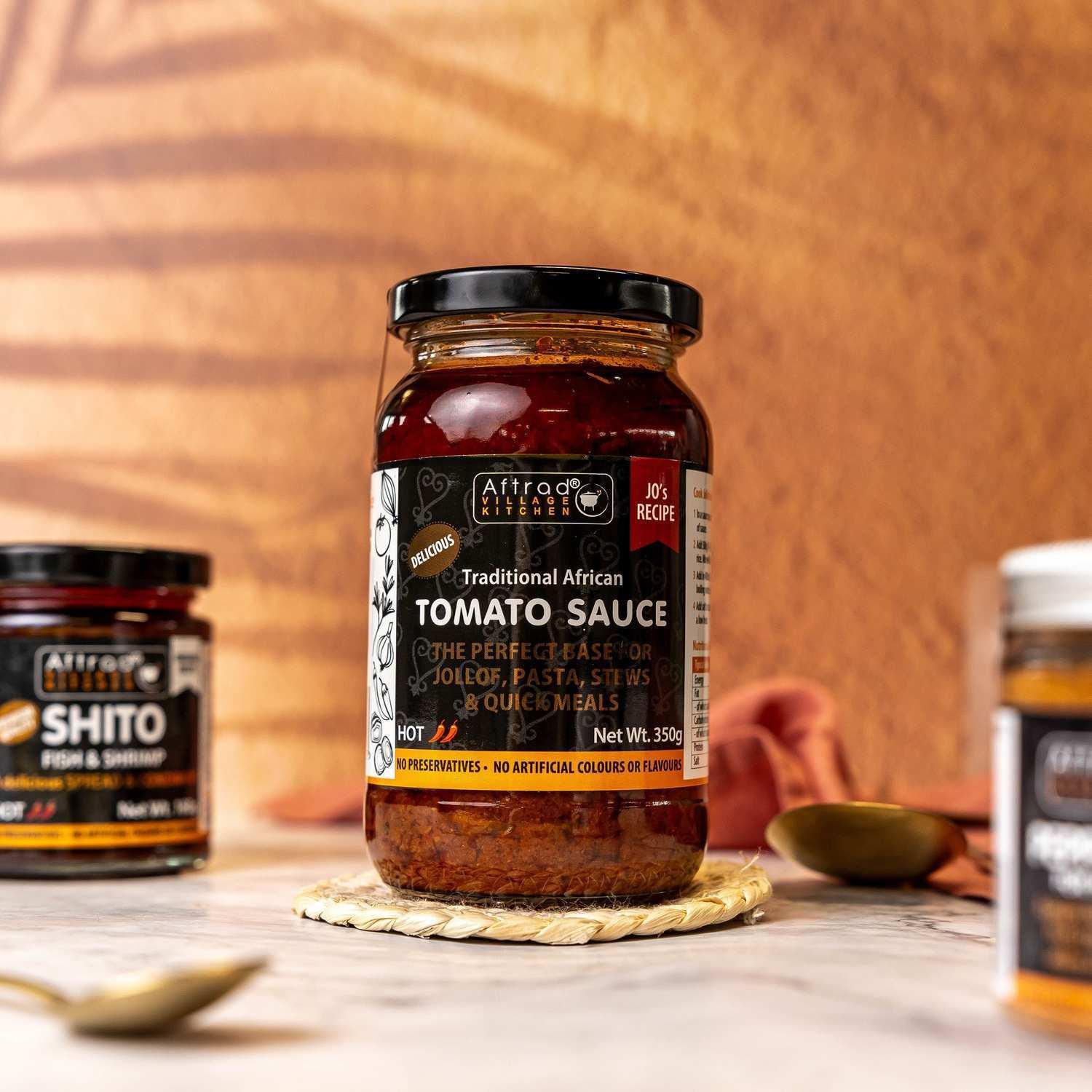
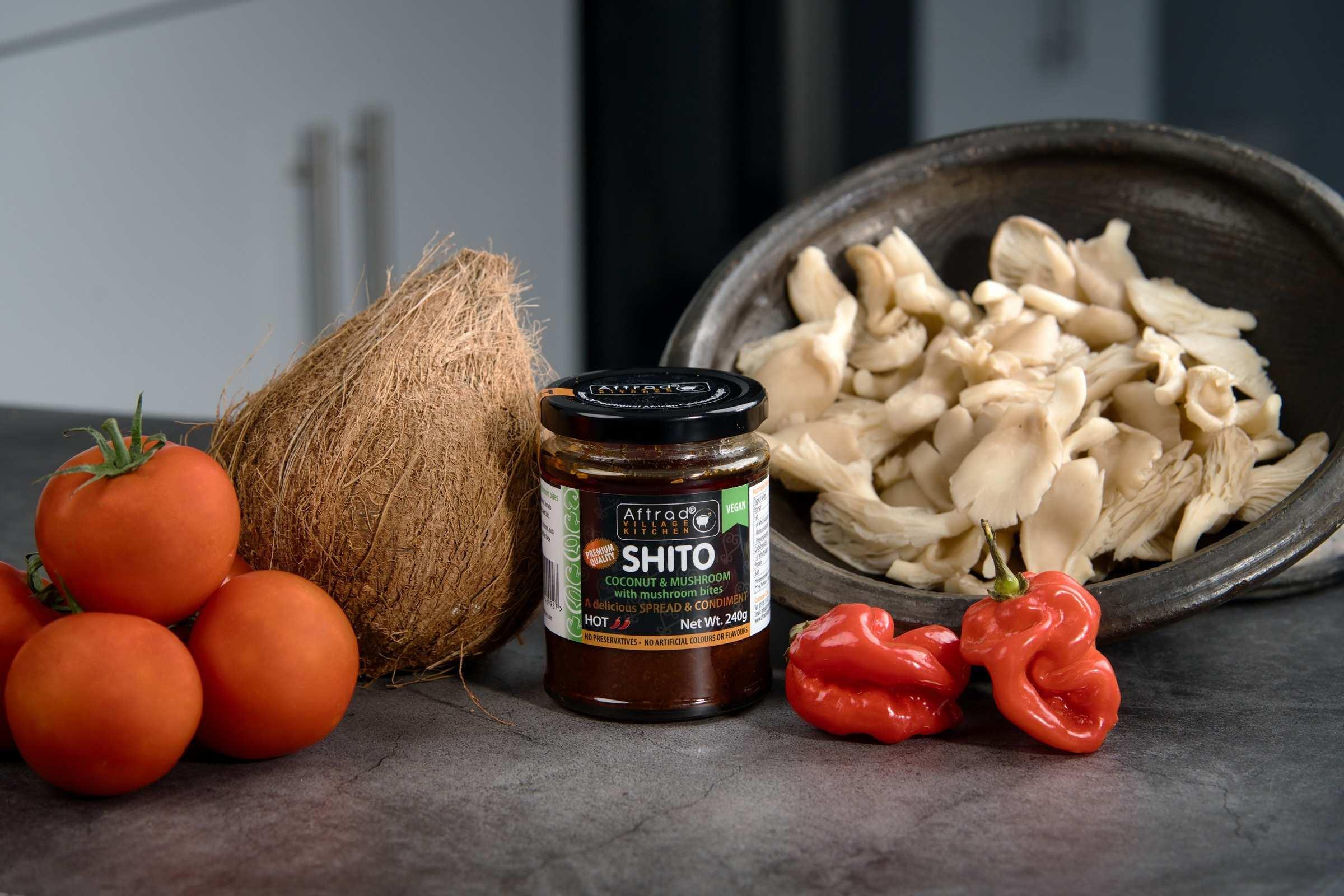

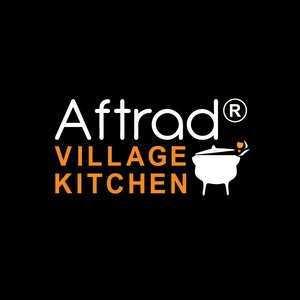

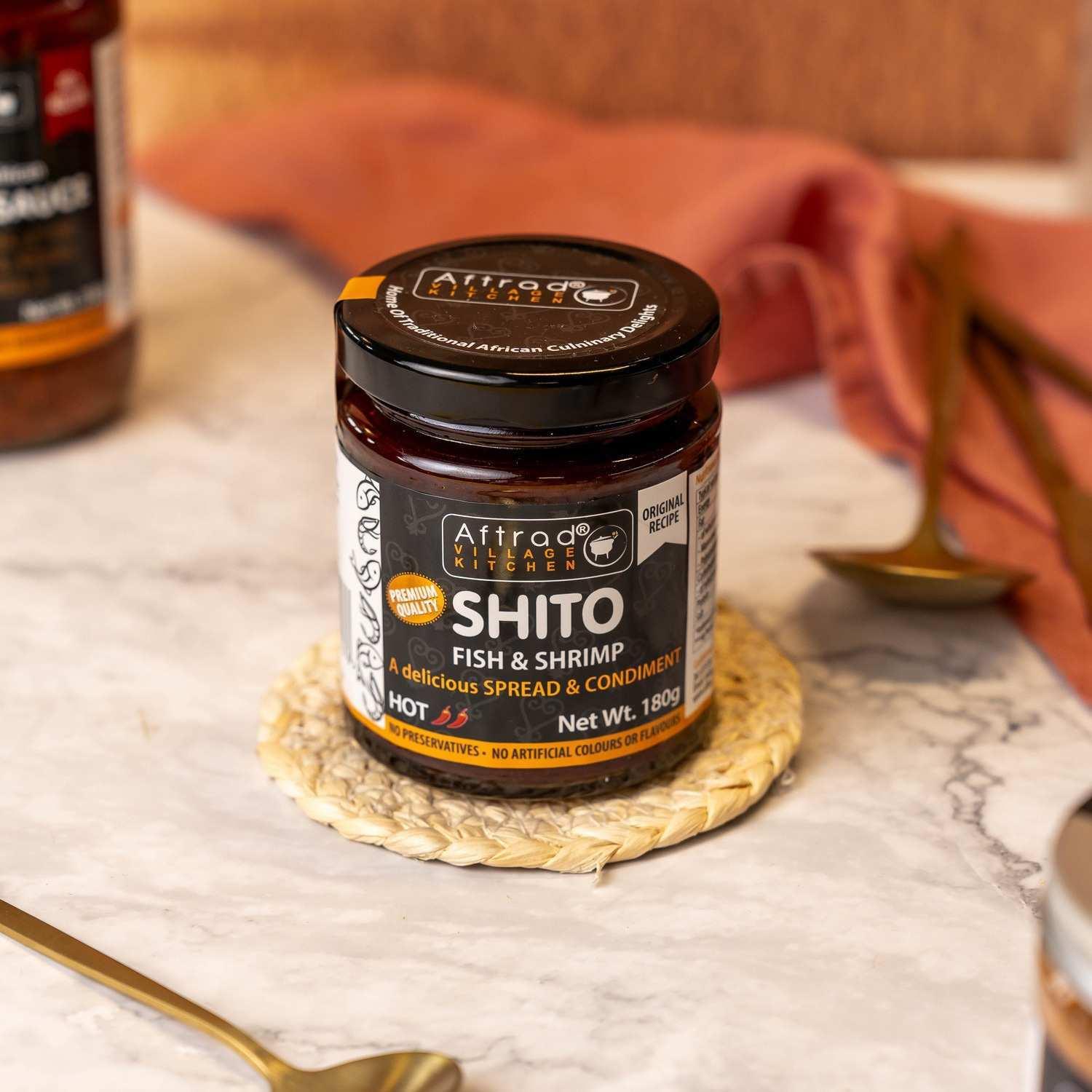

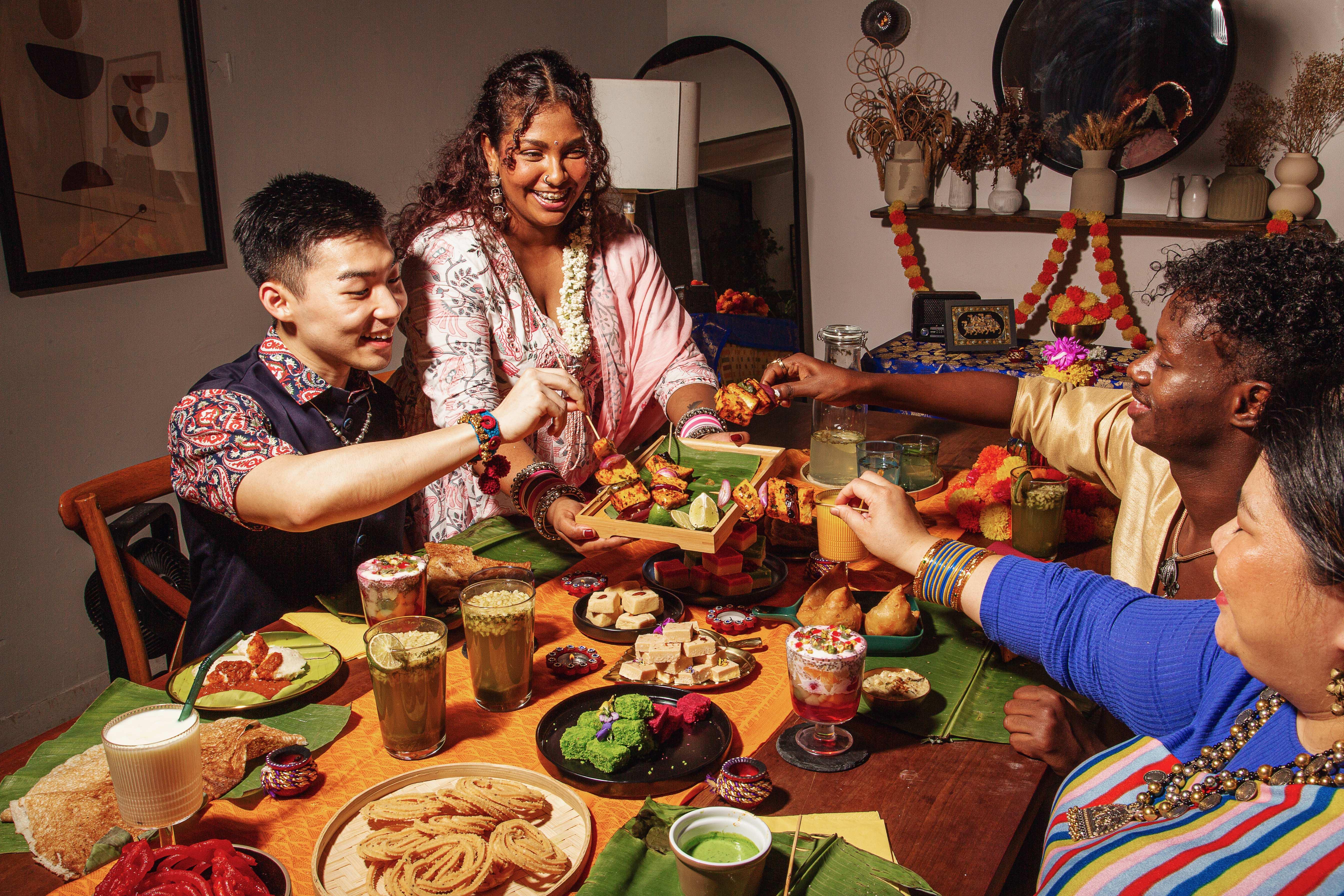




Andi Oliver is a renowned British chef, broadcaster, and former musician. Initially gaining fame in the 1980s with the band Rip Rig + Panic, she transitioned to television in the 1990s, hosting shows and covering major events.
Oliver has built a successful culinary career, running restaurants and establishing "Wadadli Kitchen" for Caribbean cuisine. She's widely known for hosting BBC's Great British Menu and appearing on Saturday Kitchen.
Her cookbook, The Pepperpot Diaries, was released in 2023, celebrating her Caribbean heritage through food.

Known for her flavorful and accessible plant-based recipes inspired by her Caribbean and West African heritage, Rachel gained prominence through her popular YouTube channel, launched in 2017.
She has authored two bestselling cookbooks, "Rachel Ama's Vegan Eats" and "One Pot: Three Ways," and was named a 2019 rising star of the food scene by The Observer.

Christarose Maphosa is a Food Technologist and Innovation Buying Manager at Tesco, with prior experience at Nestle and Pladis Global. She holds a First Class degree in Food Science and Nutrition and is recognized as an influential leader in the food industry.
Maphosa has been instrumental in bringing diverse products to market, including the UK's first boneless raw mackerel at Tesco. She is passionate about sustainability, quality, and nutrition in food, with a focus on impacting large populations.
She is also a co-chair of Tesco's Race & Ethnicity Network.
Gbemi Shitta is the award-winning Founder and CEO of SweetDoughThings, an innovative confectionery company specializing in vegan, sugar-free, and allergen-free sweet treats.
As the UK's first manufacturer of vegan, sugar-free candy floss, she exports globally, with exports accounting for 80% of turnover since starting in 2021. Gbemi, with a background in Law, also serves as an FSB South London Area Lead, advocating for small businesses.

Dawn Burton is a respected foodpreneur with over 30 years in the food, catering, and hospitality industry.
She co-founded the UK Caribbean Food Awards, celebrating top Caribbean food and drink businesses.
As owner of Caribburton Caterers, Dawn actively promotes and supports the vibrant UK Caribbean food sector through these ventures and the Caribbean Food Collective.
Marsha Barnett is a co-founder of the UK Caribbean Food Awards, a significant event established to celebrate and recognize outstanding Caribbean food and drink businesses across the UK. She also runs her own catering business, JerkShack.
Recognizing a need for greater support and networking within the industry, Marsha, alongside Dawn Burton, played an integral part in setting up the Caribbean Food Collective, which aims to promote, connect, and support UK-based Caribbean food and drink businesses.

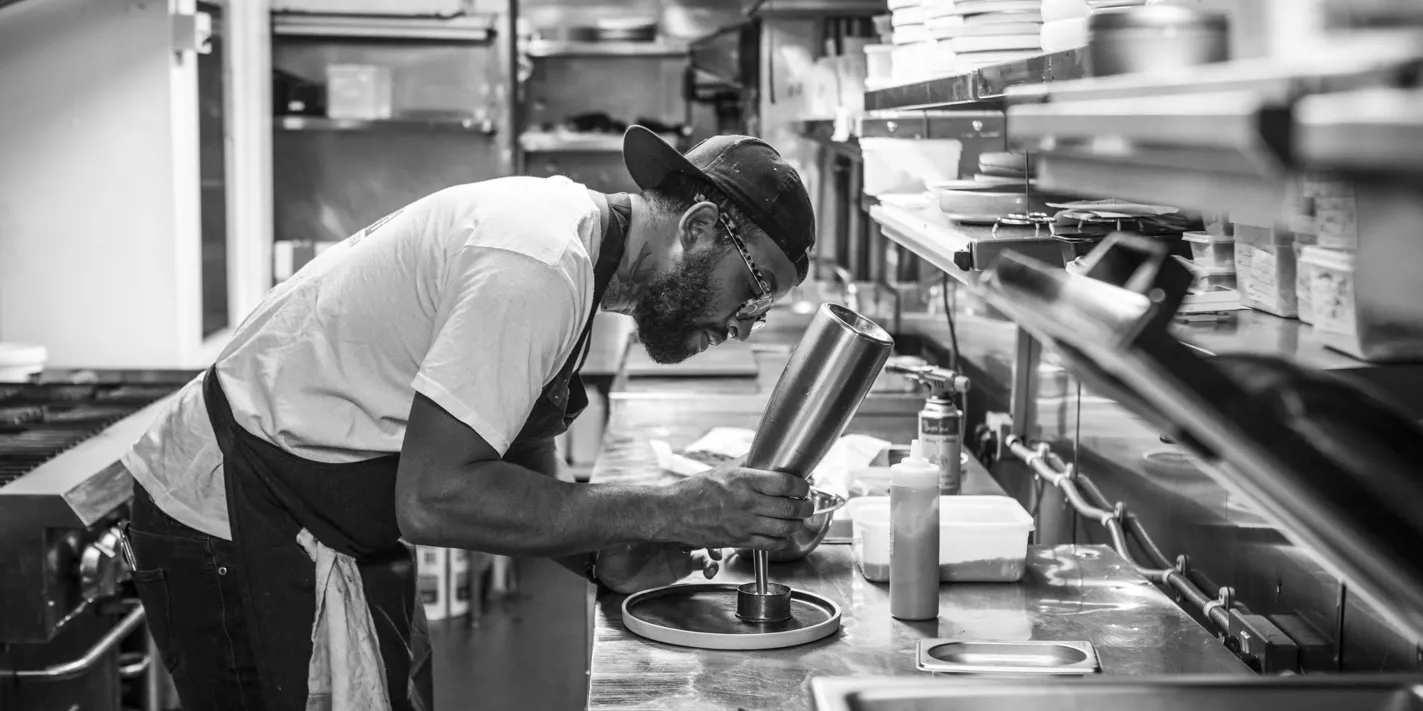

James Cochran is an acclaimed British chef and restaurateur, celebrated for his innovative cuisine blending Vincentian and Scottish heritage.
He trained at esteemed establishments like The Ledbury, earning recognition as the "Champion of Champions" on BBC's Great British Menu in 2018.
James sells his scotch bonnet jam in supermarkets around the country. In addition, he is a keen advocate of using goat meat, working closely with goat supplier Cabrito to help spread awareness of goat as a sustainable food source.
Joana Yeboah-Acheampong is the visionary founder of Aftrad Village Kitchen, a renowned brand celebrated for its authentic Ghanaian cuisine and innovative Afro-fusion dishes.
Driven by a passion to share the rich culinary heritage of West Africa, Joana has successfully grown Aftrad Village Kitchen into a beloved establishment.
Her commitment to traditional flavours, combined with a modern approach, has earned her widespread recognition within the food industry and a loyal following among customers.
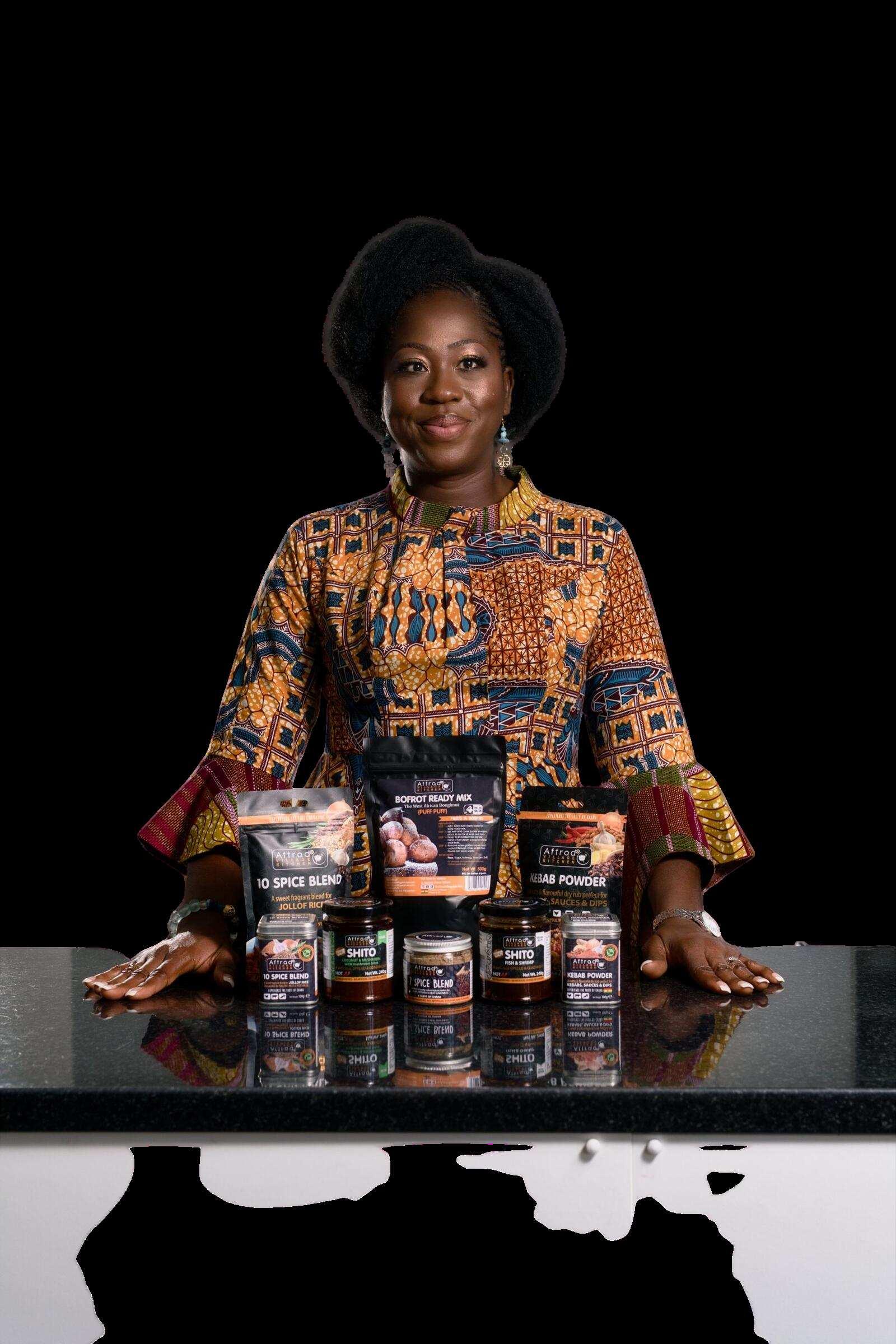
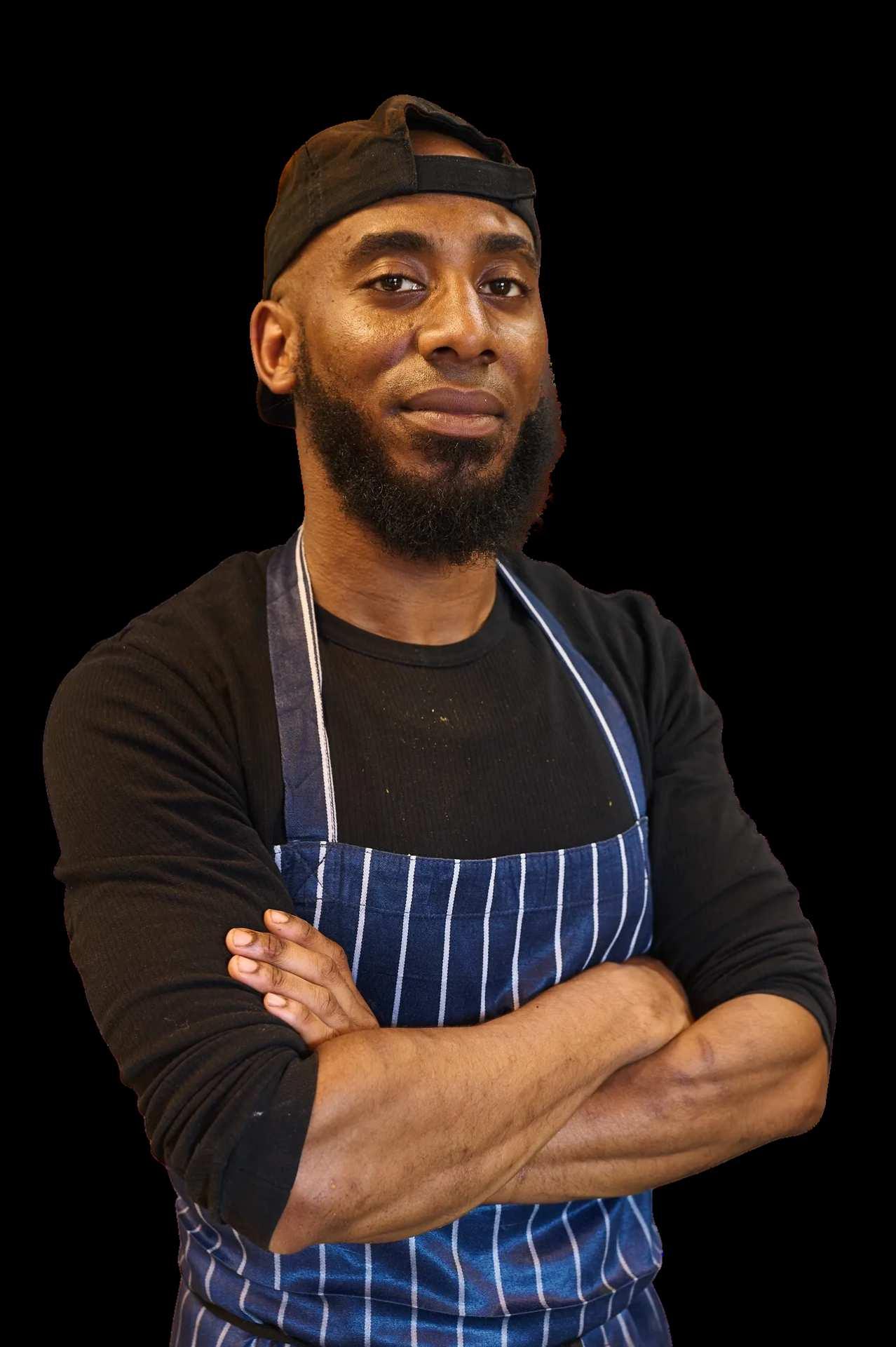
Nathan Collymore is the Head Chef and a cofounder of Jam Delish, London's acclaimed vegan Caribbean restaurant. His culinary vision brings vibrant plant-based interpretations to classic Caribbean dishes, earning widespread acclaim and a loyal following.
Nathan's innovative approach has been pivotal in establishing Jam Delish as a leading voice in the vegan food scene, showcasing that traditional flavours can be celebrated sustainably and deliciously.
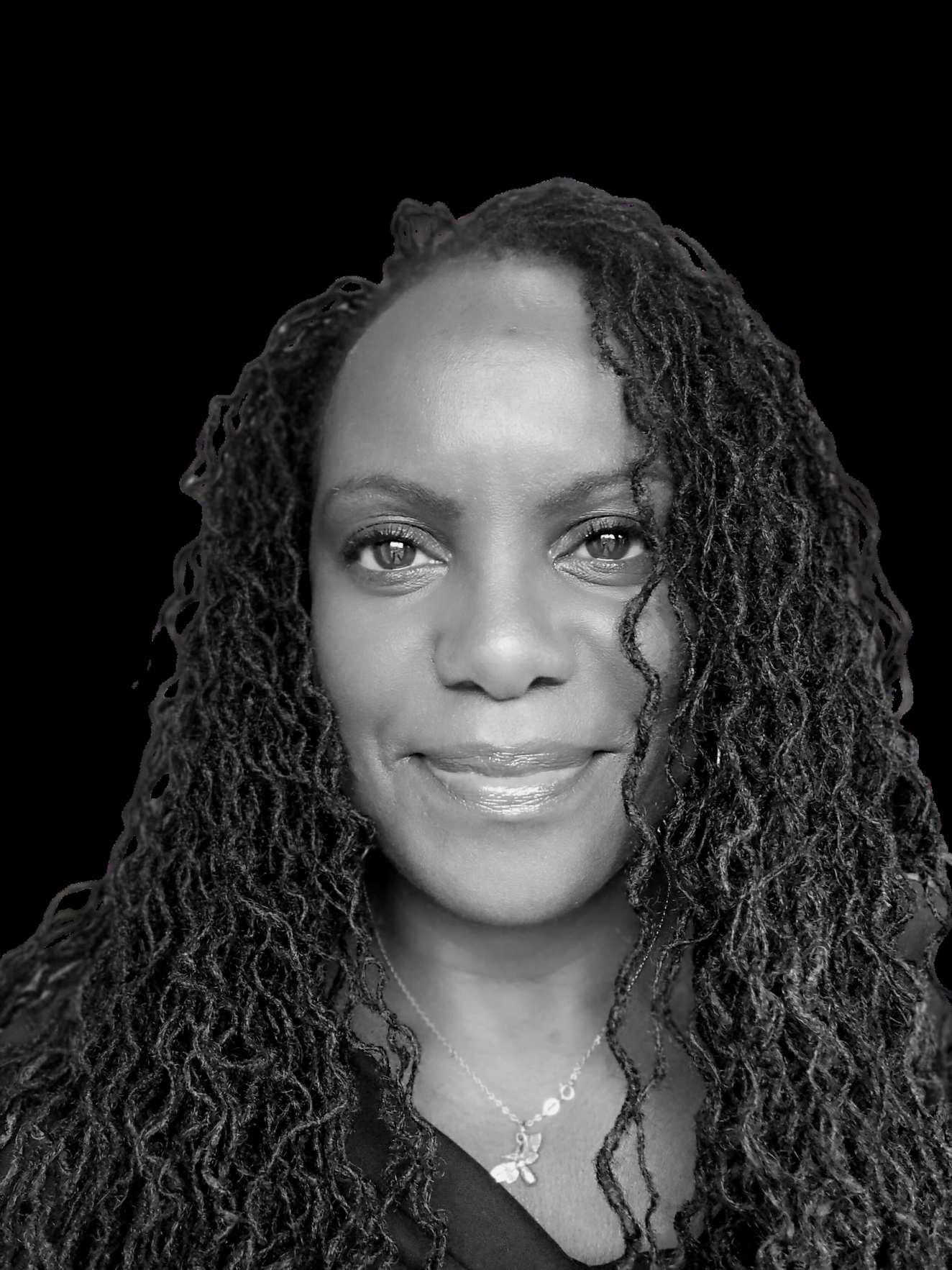
Shirley White is the visionary founder of OTC Beverages, a multi-award-winning brand of non-alcoholic drinks.
Launched in 2018, the company offers premium beverages like ginger beer and sorrel, rooted in traditional Caribbean flavours. Inspired by her father's 80th birthday and a desire to preserve cultural culinary legacies, Shirley left a career in financial services to create OTC.
Her brand focuses on natural, high-quality ingredients, aiming for global reach while honoring heritage.


















1.
Perfect for the well-groomed dad, Adia Nature’s Beard Set delivers softness, shine, and nourishment using all-natural African botanicals. It’s everything he needs for a beard that feels as good as it looks.
Cashblack Recommends: Natural Beard Grooming Set – Oil, Balm & Comb
Price: £47.50
Make gifts truly special by supporting Black-owned businesses. Cashblack, in partnership with Etsy, proudly presents a curated selection of innovative, cultural, and highquality products. Discover everything from sleek apparel and sophisticated home decor to premium grooming essentials and handcrafted goods. Each thoughtful purchase not only delights but also empowers Black entrepreneurs and their communities. This guide inspires heartfelt connections and shared pride, making your gifts impactful and joyful while celebrating heritage and modern craftsmanship.

2.For the dad who loves statement style from head to toe, Afropop Socks offers vibrant, culturallyinspired designs that fuse comfort with heritage. A small gift with big personality.
Cashblack Recommends: Afropop Socks Set –Mystery Box of 3 Afropop Socks
Price: £36.00
3. Start his morning with pride. AfroTouch Design’s mugs feature bold African patterns and affirming messages, turning an everyday essential into a cultural expression.
Cashblack Recommends:
Afrocentric <Black Dad= Mug
Price: £15.00

4.

Elevate Dad’s wardrobe with a handcrafted cufflink set from Akrasi Boutique. Made from striking wax prints, these accessories are where elegance meets heritage.
Cashblack Recommends:
Kente Cufflink Set –
Handcrafted & Unique
Price: £21.00

Representation matters4even in the small things. All Shades Cards brings authentic Black fatherhood to the forefront with beautifully illustrated cards made for moments that truly reflect us.
Cashblack Recommends: <Best Dad Ever= Card 3 Black Dad Edition
Price: £4.20
6.

Uplift Dad with positive vibes and powerful style. Elegant Treats’ affirmation tees combine self-love, heritage, and fashion 4all in one inspiring fit.
Cashblack Recommends: <Black Man
Affirmation= T-Shirt
3 The Prime Element Price: £19.95
Classic with a cultural twist, Kelis Africa’s Kente necktie is a standout accessory that speaks volumes. For the dad who rocks tradition with style.
Cashblack Recommends: Unisex
Kente Necktie 3 African Print
Price: £15.99

Odu Essence’s all-natural soaps are a gentle yet luxurious treat for the skin. Made with care and intention, they’re ideal for selfcare moments that honour both body and soul.
Cashblack Recommends: African Black Soap (Pack of Four)
Price: £9.99

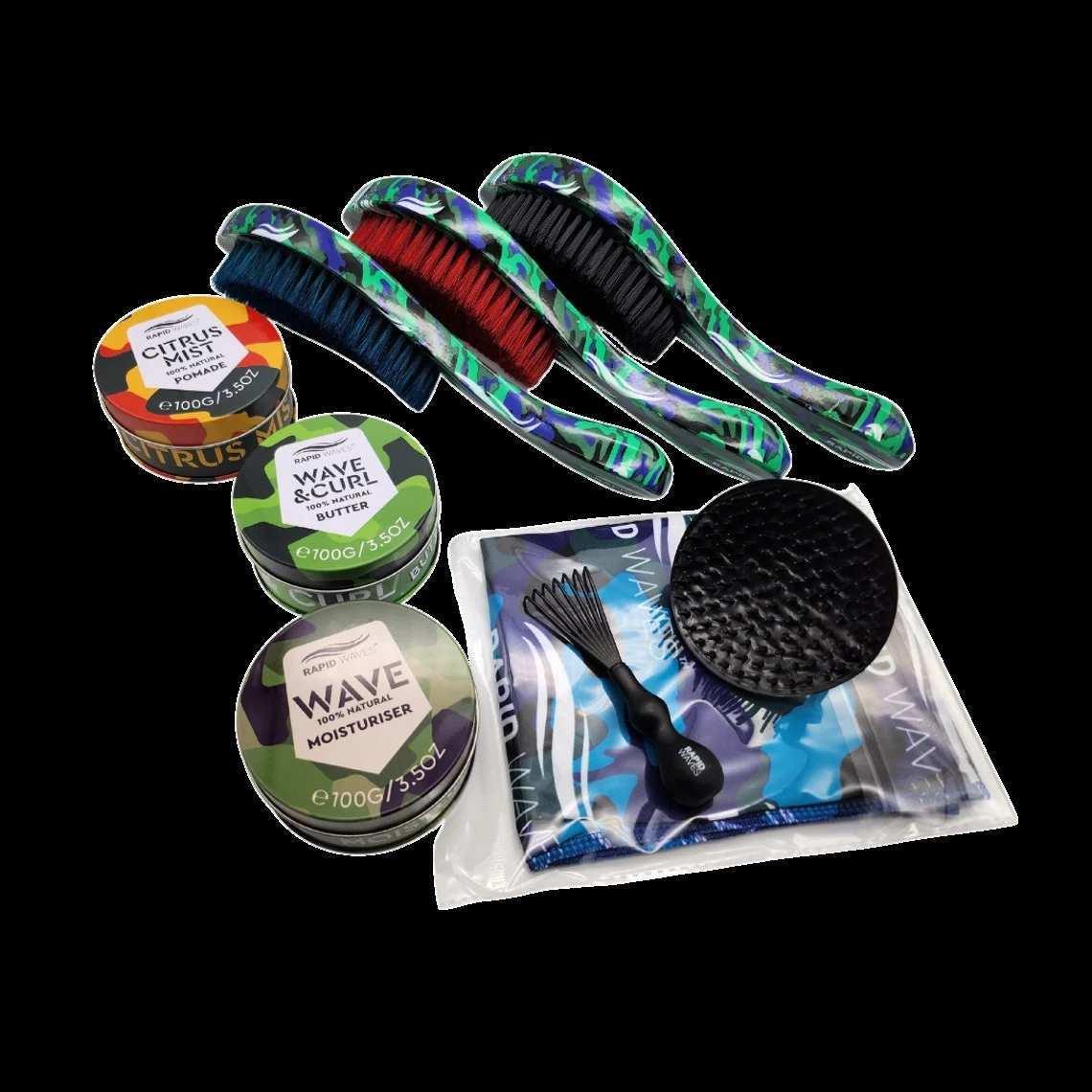
Keep Dad’s grooming game strong with Rapid Wave Brushes’ line of hair care tools and treatments. Designed for textured hair, their products deliver results with flair.
Cashblack Recommends: Hair Growth Oil – For All Hair Types Price: £9.99
Cashblack Recommends: Black Dad & Daughter Wall Art Print Price: £5.00 10.
Capture the love between father and child with Gyllo’s heartfelt illustrations. Their Black Dad & Daughter print makes for a touching, timeless gift that tells a story of connection and care.



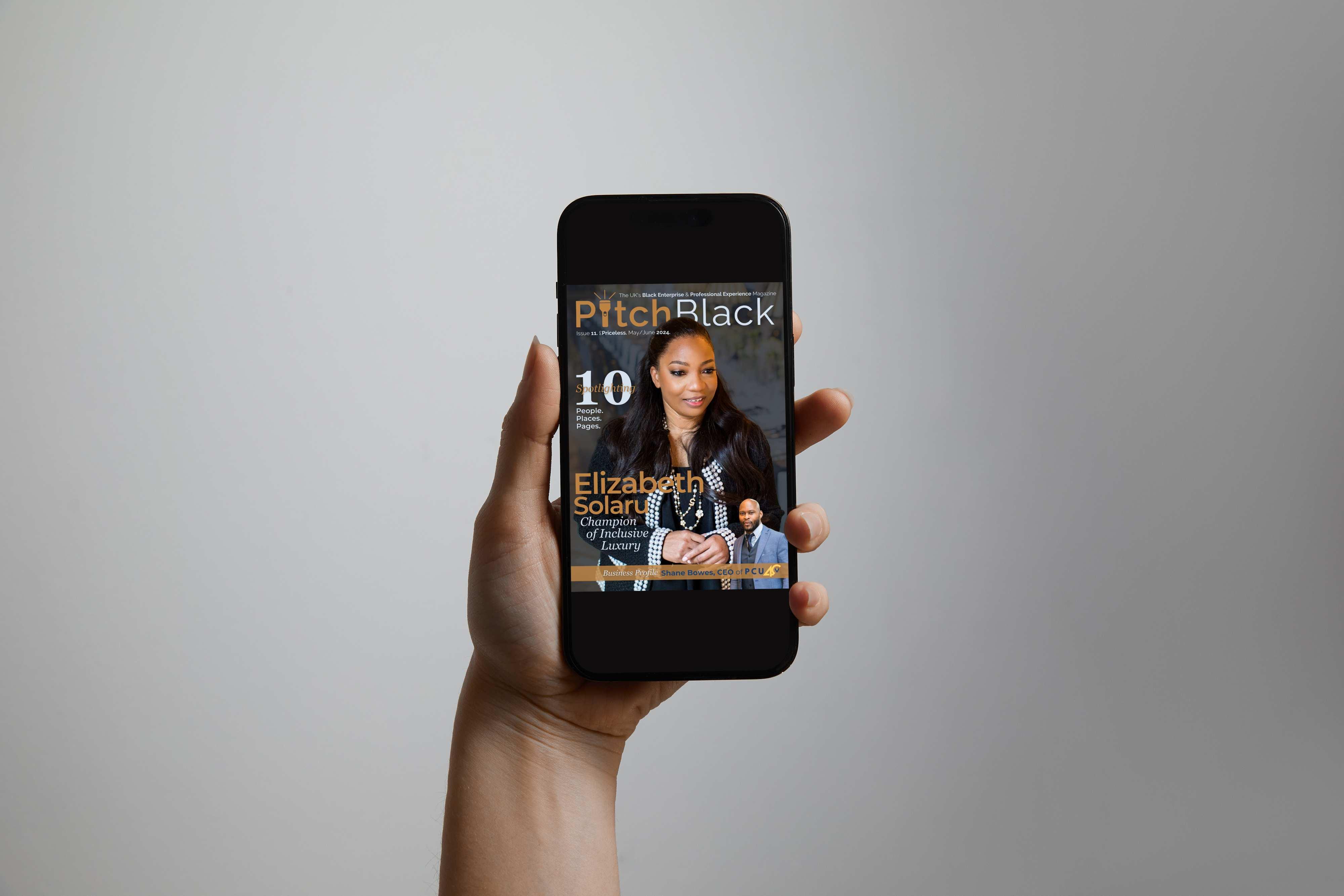












At Cashblack, we are thrilled to continue our partnership with Uber Eats to spotlight and support the incredible talent within the UK's Black-owned food scene. This month, we're proud to showcase 10 outstanding vendors who have been selected as recipients of Uber Eats' Black Business Fund—an initiative designed to empower Black entrepreneurs by providing financial support, mentorship, and growth opportunities. These culinary trailblazers represent the diversity, creativity, and resilience of Black food culture across Britain.
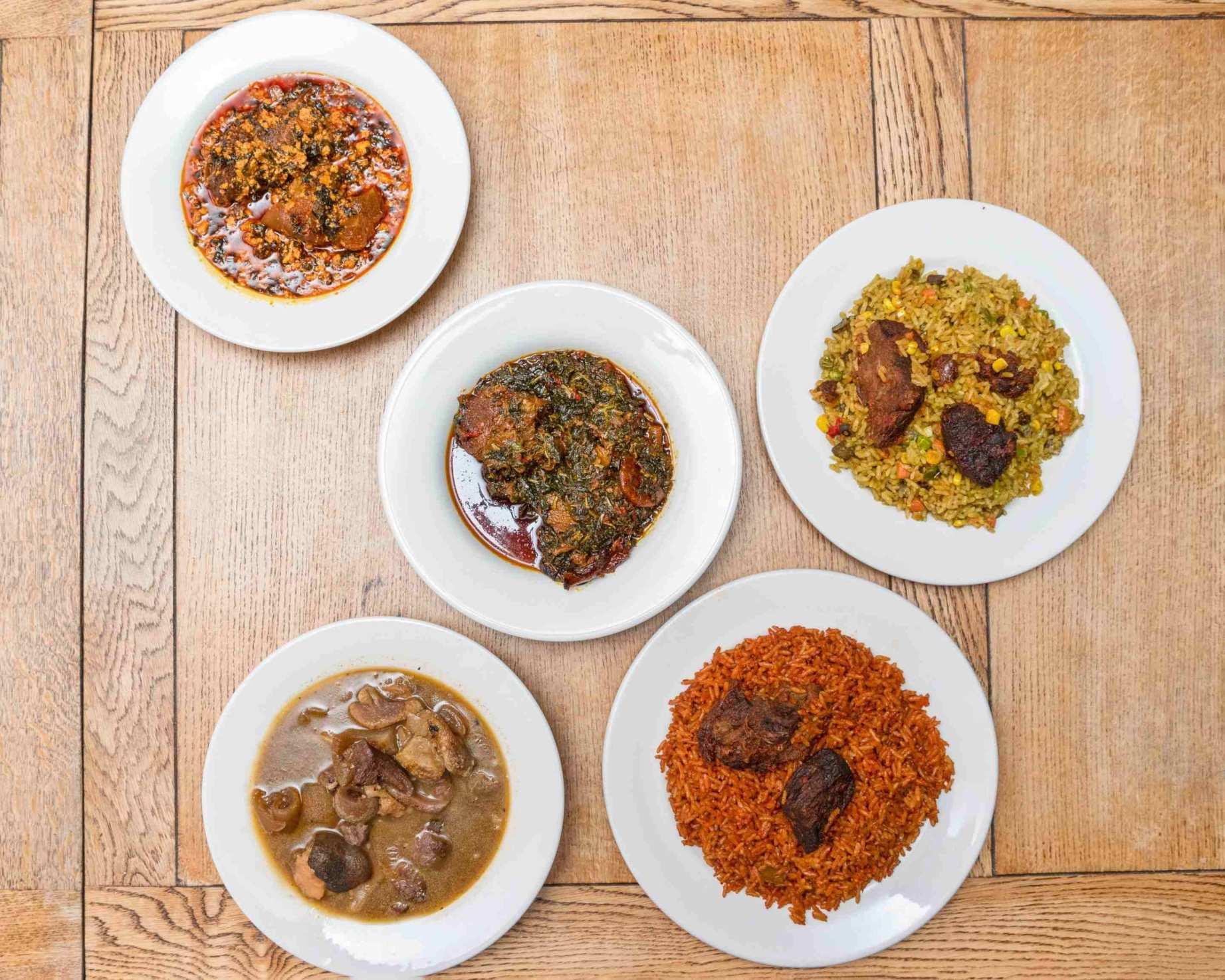
What makes this even more exciting? As a Cashblack member, you can earn £4.50 cashback when you place your first Uber Eats order through our platform. It's our way of making your support for these businesses even more rewarding.
From West African flavors to Caribbean classics, Southern soul food to innovative fusion cuisine, these vendors are redefining the UK's food landscape—one delicious dish at a time. Let's dive in and celebrate their stories, their food, and their impact on communities across the country.
Nestled in the heart of Cardiff, Afro Lounge is more than just a restaurant— it's a cultural experience. Founded in 2022 by Adesegun Badmos, this vibrant establishment brings the rich, aromatic flavors of West Africa to Wales while creating a welcoming space that nourishes both body and mind. With a menu featuring classics like jollof rice, suya, and hearty soups, Afro Lounge has quickly become a beloved gathering spot. What sets them apart is their commitment to mental wellbeing, hosting community events and creating an atmosphere where everyone feels at home. Whether you're craving authentic African cuisine or seeking a space to connect, Afro Lounge delivers on all fronts.
Visit @ 55a Whitchurch Rd, Cardiff CF14 3JP


Hiwot Hailu, a former nurse turned restaurateur, launched Ahadu in Huddersfield in 2023 with a mission to share the soulful flavours of Ethiopia. This community-focused hub serves up traditional dishes like doro wat (spicy chicken stew), kitfo (minced beef), and of course, the iconic injera bread—a sourdough flatbread that's the cornerstone of Ethiopian dining. Ahadu's warm, inviting ambiance mirrors the communal spirit of Ethiopian culture, where meals are meant to be shared. Hiwot's dedication to authenticity and hospitality has made Ahadu a standout in Yorkshire's food scene.
Visit @ 27 Pack Horse Walk, Huddersfield HD1 2RT
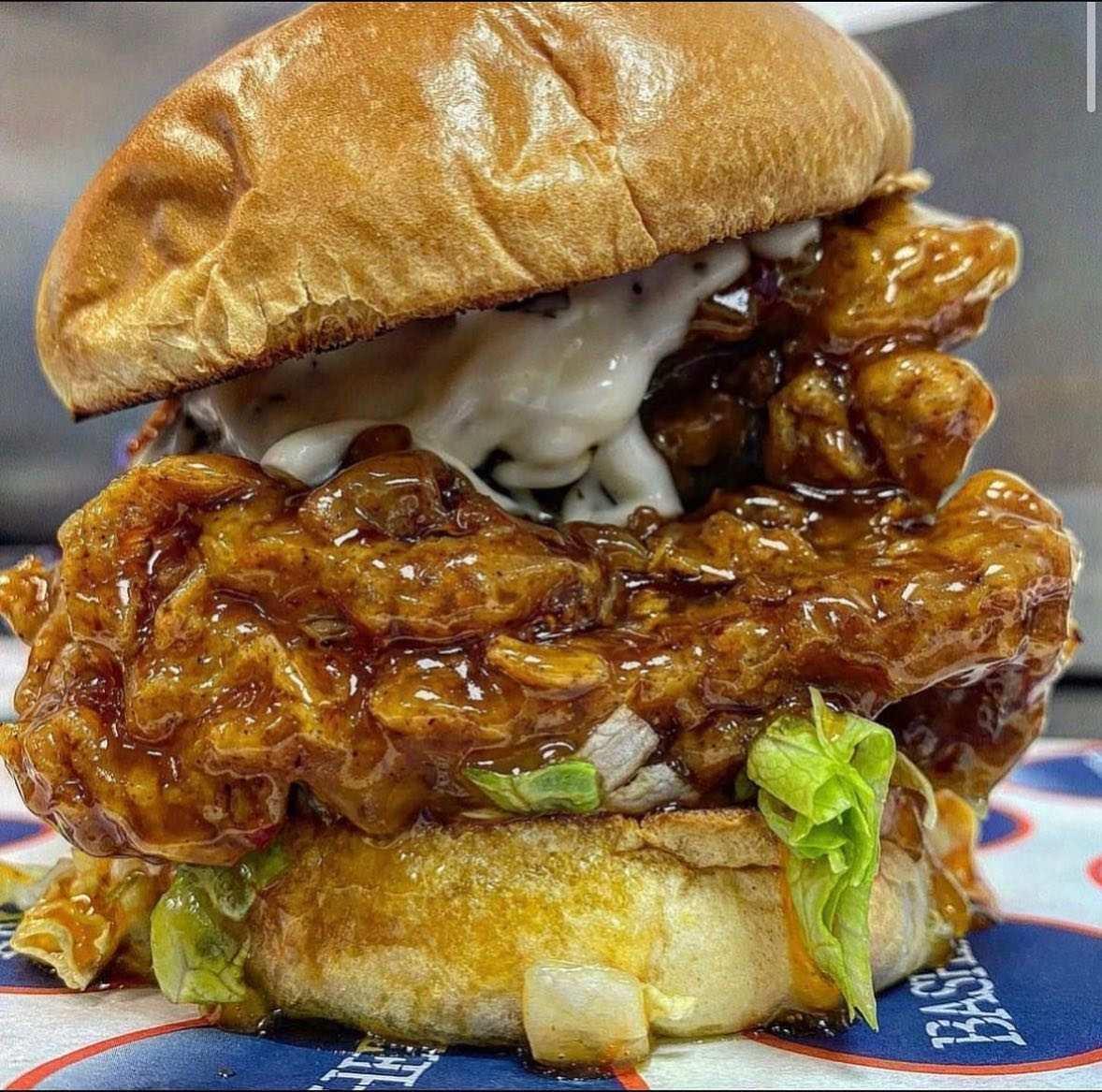
When Marcus Vatsaloo was made redundant during the pandemic, he turned adversity into opportunity by launching Bashed UK in Barry, Cardiff, in 2020. Specializing in smashed patties and crispy fried chicken, Bashed UK has garnered a loyal following for its juicy, flavor-packed burgers and indulgent comfort food. Marcus's innovative approach— like his signature "Bashed Sauce"— has set his creations apart. Now, with plans to expand into festivals and events, Bashed UK is poised to bring its addictive eats to even more hungry foodies across the UK.
Order Me!
Visit @ 12 Broad St, Barry CF62 7AN
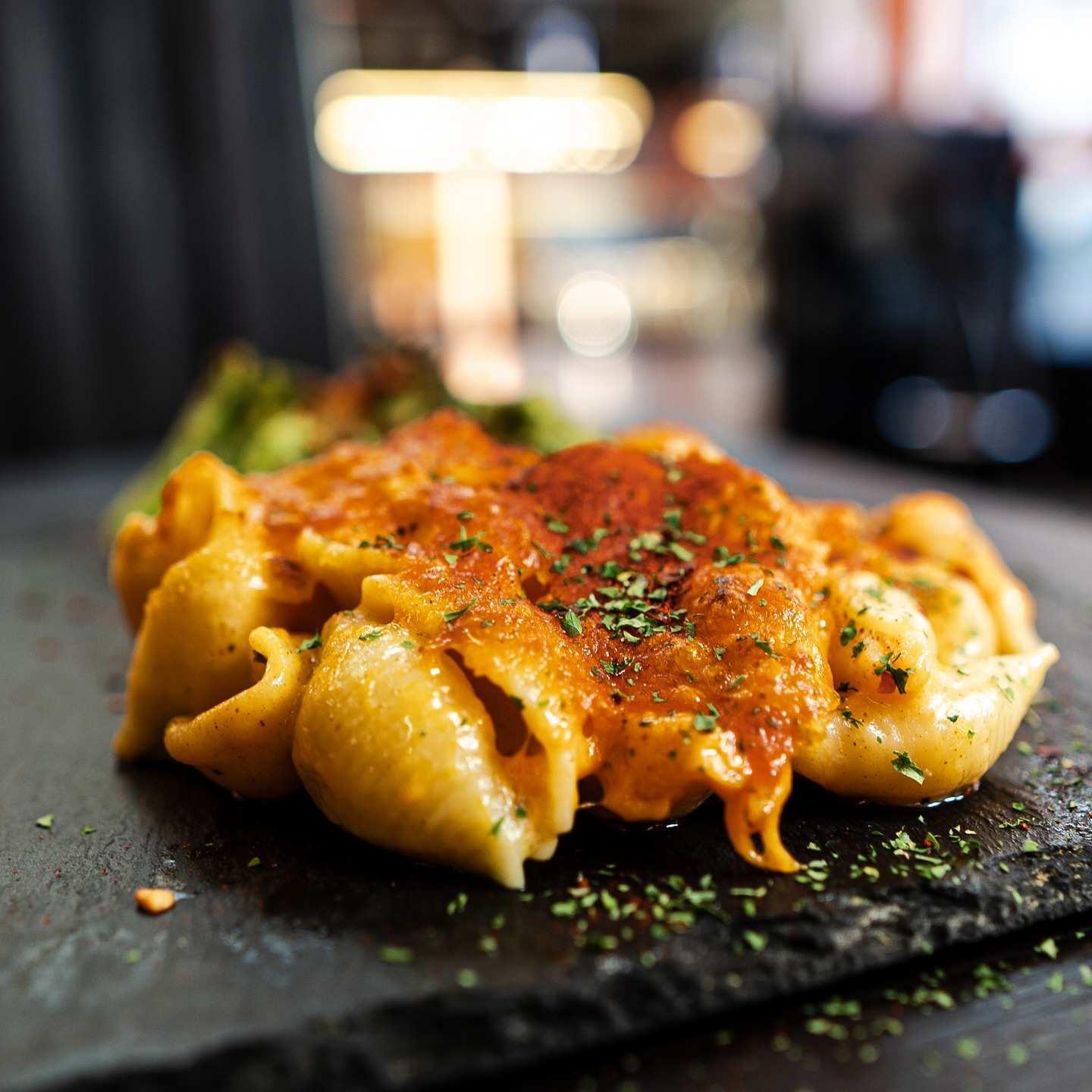
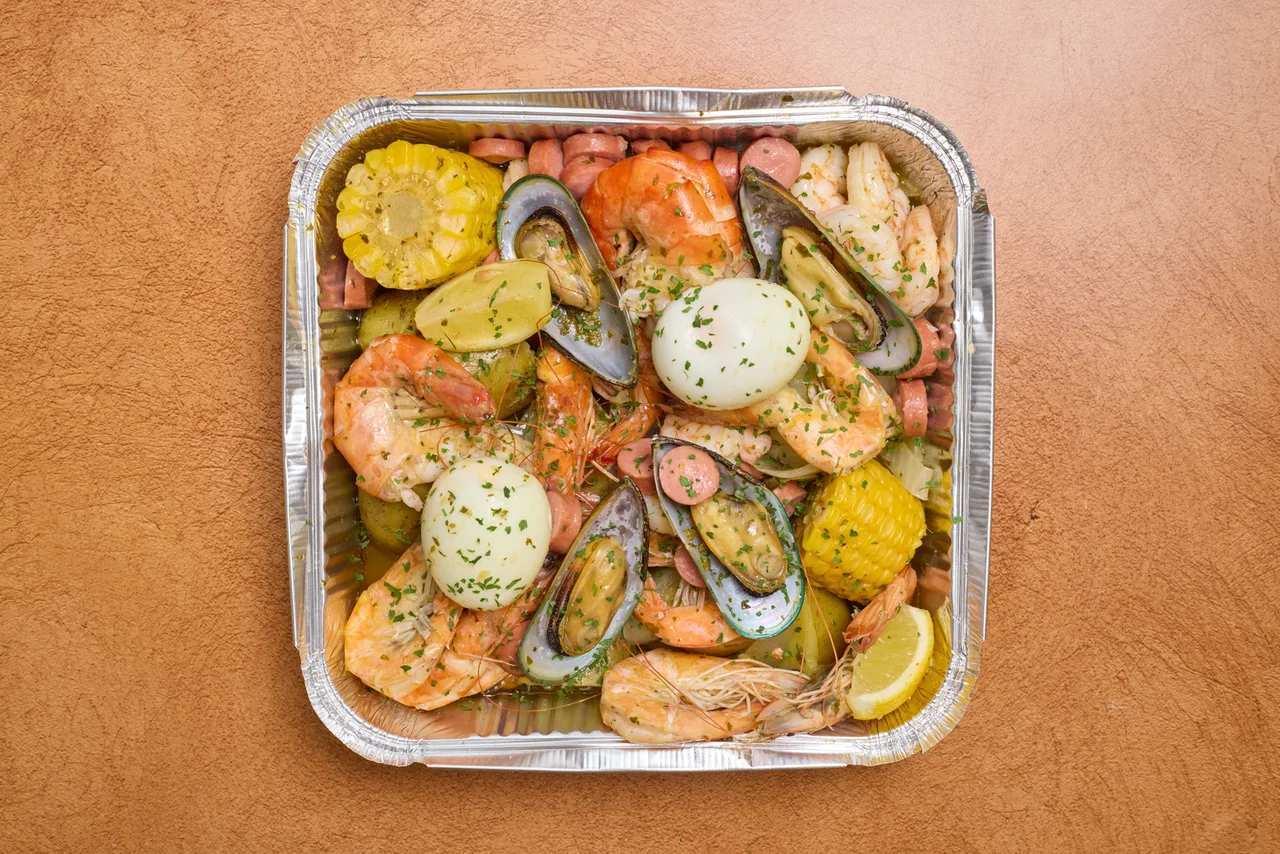
Fiona Able was still an undergraduate when she founded Haus of Flava (HOF) in Nottingham in 2020—a testament to her entrepreneurial spirit and passion for soul food. HOF specializes in Creoleinspired seafood boils, where lobster, shrimp, crab, and mussels are drenched in a mouthwatering blend of spices, garlic butter, and herbs. The restaurant's lively vibe and generous portions make it a favourite for gatherings and celebrations. Fiona's journey from student to successful business owner is an inspiration, and her commitment to bold flavours and community keeps customers coming back for more.
Visit @ 86 Colwick Rd, Sneinton, Nottingham NG2 4AQ
In 2021, Makeda Mawusi made a bold career switch from banking to the kitchen, and the result was Mama’s Soul Food; a Manchester institution specializing in New Orleans-style seafood boils, gourmet fried chicken, and homemade Mac 'n' Cheese.
Makeda's dishes are a tribute to her heritage, blending Southern comfort with West African influences. Just four years later, Mama’s has grown from a solo venture to a team of 18, earning accolades and a permanent place in Manchester's culinary landscape. Their crab boils, drenched in spicy Cajun butter, are legendary
Visit @ 58, 60 Higher Ardwick, Manchester M12 6DA
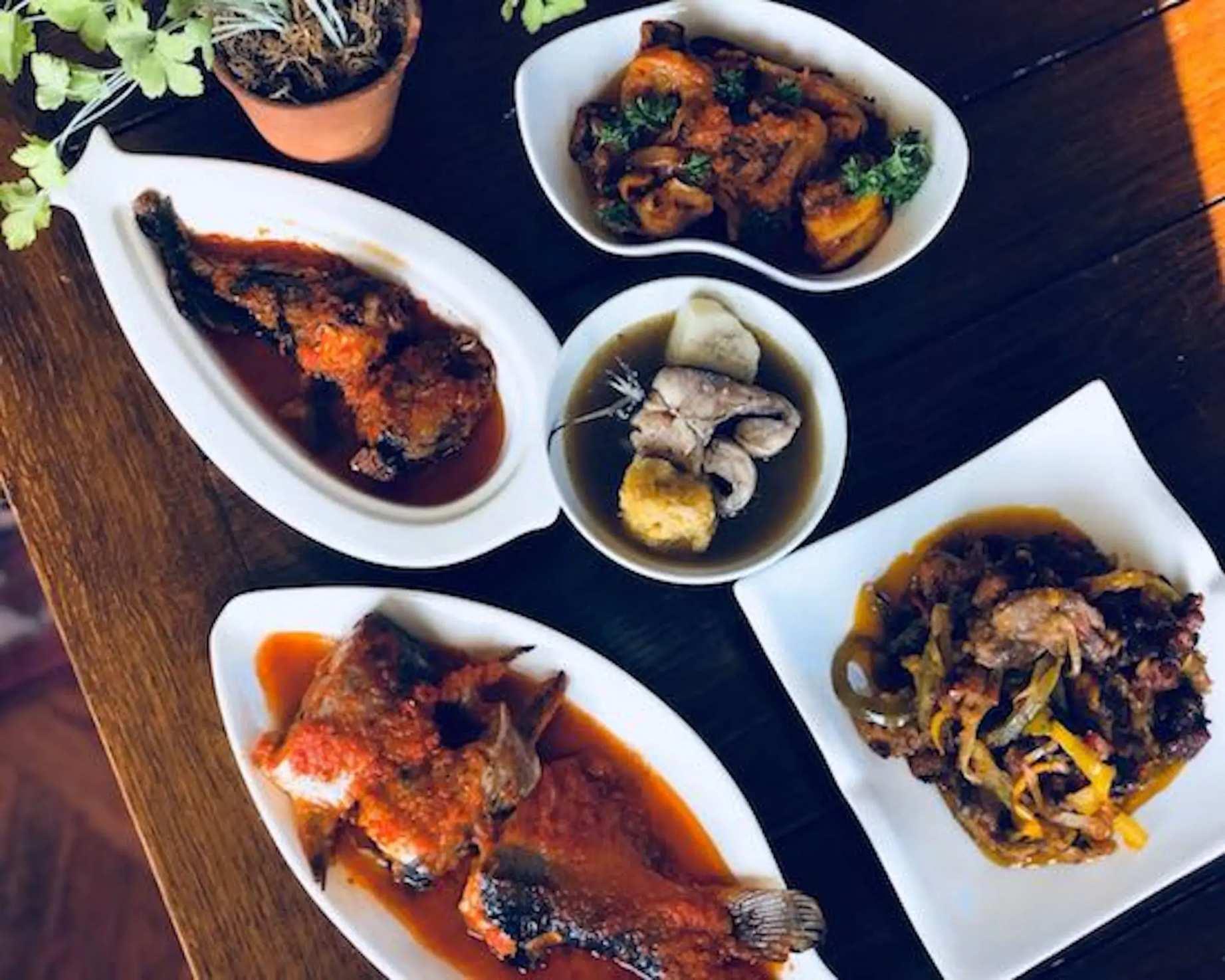

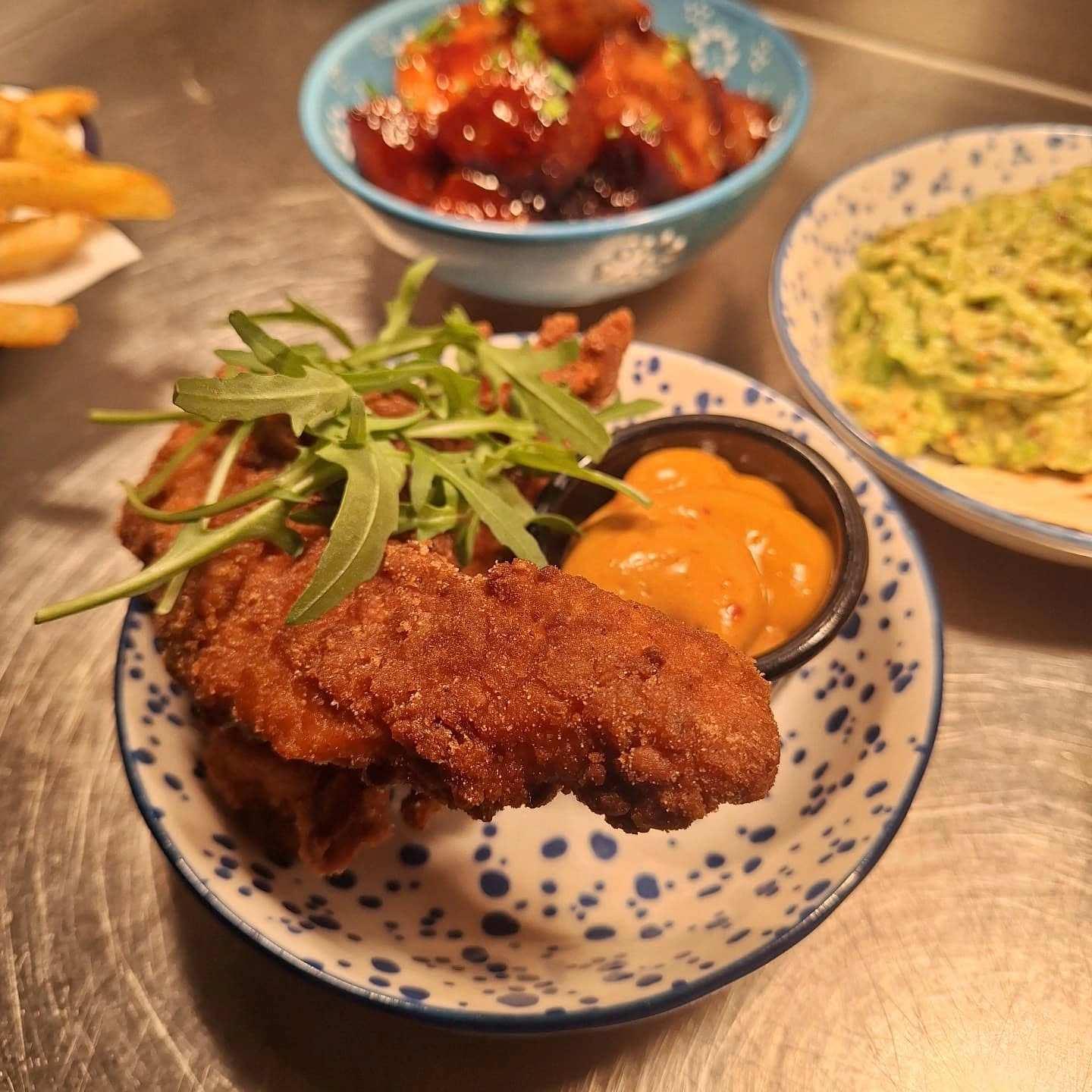
Hammed Obikoya brought a taste of Nigeria to Belfast with Mamabobo Restaurant, a family-run spot serving hearty, homestyle West African dishes.
From fragrant jollof rice to tender suya skewers and comforting egusi soup, every dish is prepared with the authenticity and love that defines Nigerian cuisine.
Hammed's vision was to create a space where locals could experience the vibrant flavors of his homeland, and today, Mamabobo is a cornerstone of Belfast's diverse food scene.
Visit @ 407 Ormeau Rd, Ormeau, Belfast BT7 3GP
Jacqui Okundaye’s Mojo Food in Daventry is a café, bar, and community hub rolled into one. Since opening in 2021, Mojo has become a local favorite for its bottomless brunches, mocktailmaking parties for kids, and evening events—all served with a side of warmth and inclusivity. By day, it's a cozy spot for coffee and light bites; by night, it transforms into a lively bar with cocktails and small plates. Jacqui's dedication to creating a space that fosters connection (and her popular book club!) makes Mojo Food a true gem in Northamptonshire.
Visit @ 4 Foundry Ct, Daventry NN11 4RH
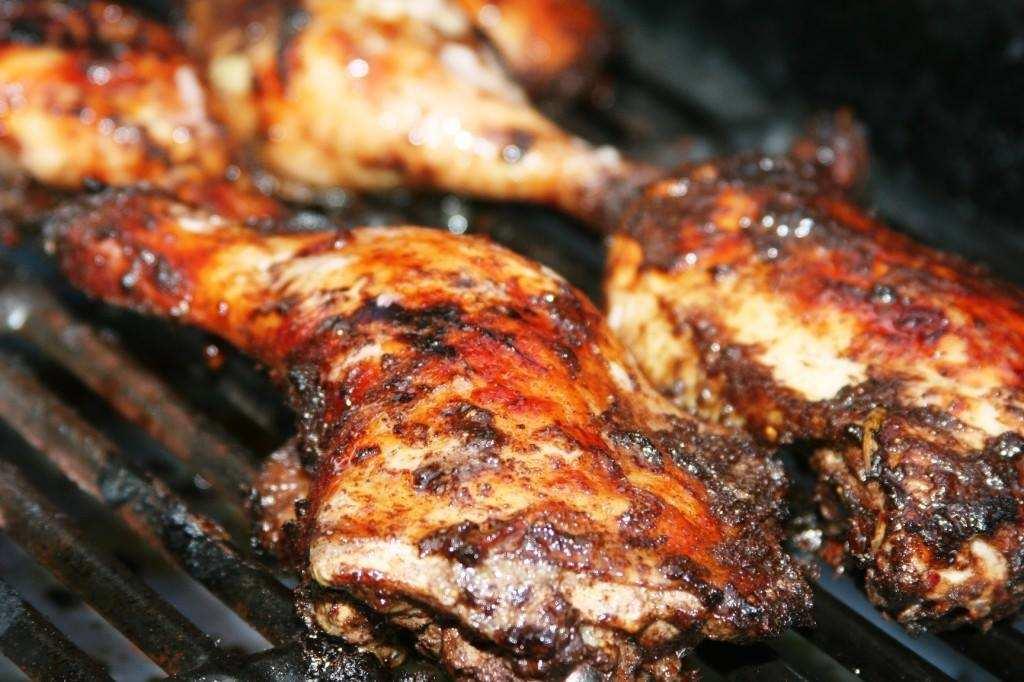
For nearly a decade, Steven Payne’s One Love Kitchen near Crouch End has been serving authentic Caribbean dishes that transport diners straight to the islands.
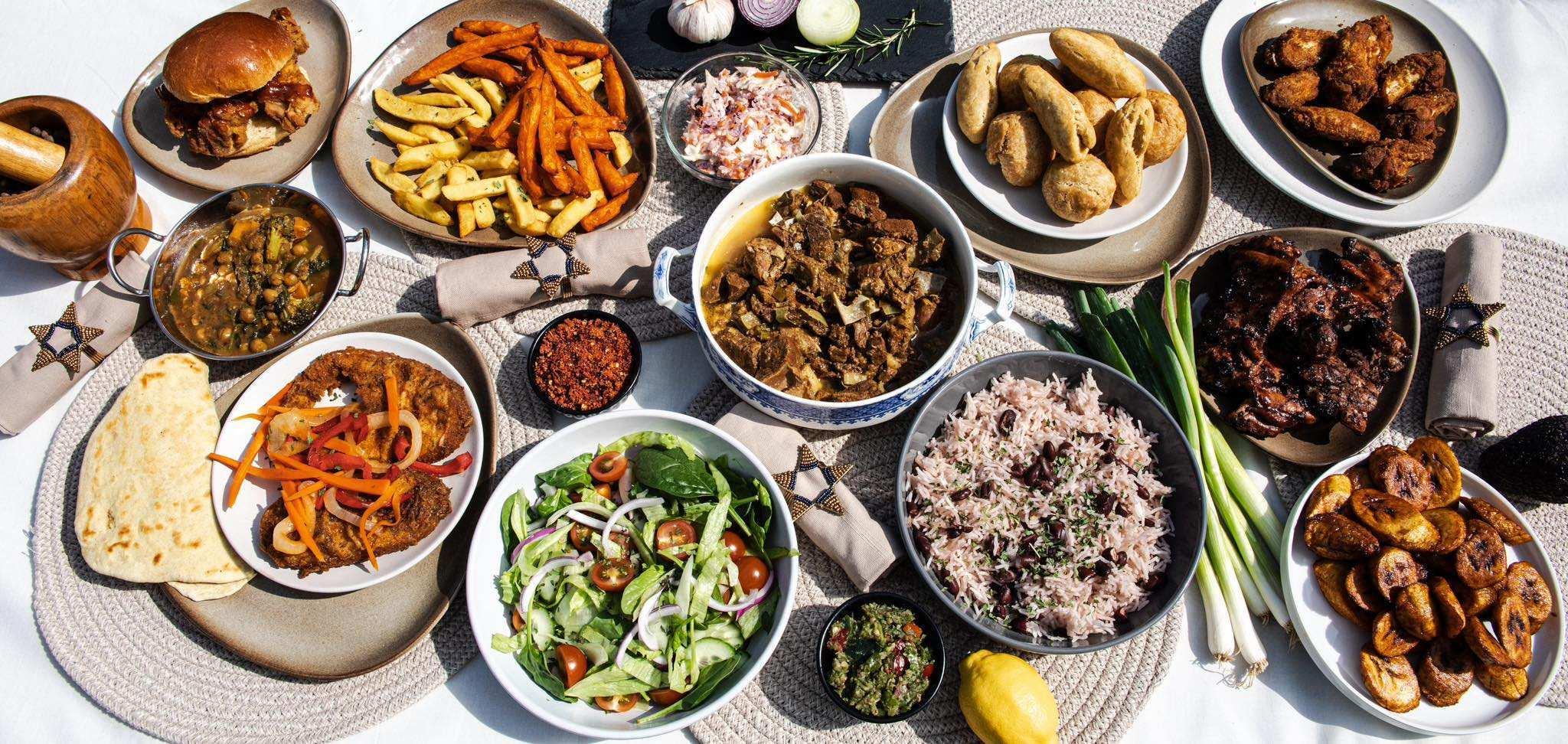
Their jerk chicken—marinated for hours and grilled to perfection—is a standout, alongside curried goat, grilled lamb, and succulent fried fish. Steven's commitment to traditional recipes and high-quality ingredients has earned One Love Kitchen a devoted following. It's a must-visit for anyone craving bold, spice-infused Caribbean flavors in North London.
Visit @ 9 Crouch Hill, Finsbury Park, London N4 4AP
Shante Manners launched The Curried Goat in Ipswich in 2022 as a family-run private catering and delivery service, specializing in a fusion of Caribbean, Creole, and Southern-style barbecue. Their namesake curried goat—slowcooked with aromatic spices—is a customer favorite, alongside smoky ribs, jerk chicken, and savory rice and peas. Shante's passion for blending culinary traditions results in dishes that are rich in flavor and history. Whether you're hosting an event or simply craving a taste of the Caribbean, The Curried Goat delivers excellence.
Visit @ King George Playing Field, Old Norwich Road, Ipswich, IP16LE
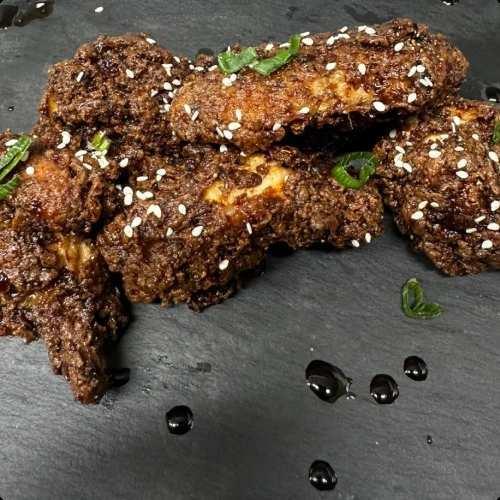

At just 25 years old, Naomi Oppong has made waves in London's food scene with Wingerz Wingz, her Edmonton-based chicken wing empire. From classic buffalo to exotic peri-peri and sticky-sweet BBQ, Naomi's wings are a masterclass in flavor and texture. Her success at Wing Fest (where she won Best Newcomer) catapulted Wingerz Wingz into the spotlight, and now, they cater festivals, private events, and hungry locals alike. With a menu that also includes juicy burgers and crispy drumsticks, this is a spot for true wing enthusiasts.
Visit @ Kitchen 10, 7, Landmark Commercial Centre,
London N18 1UB




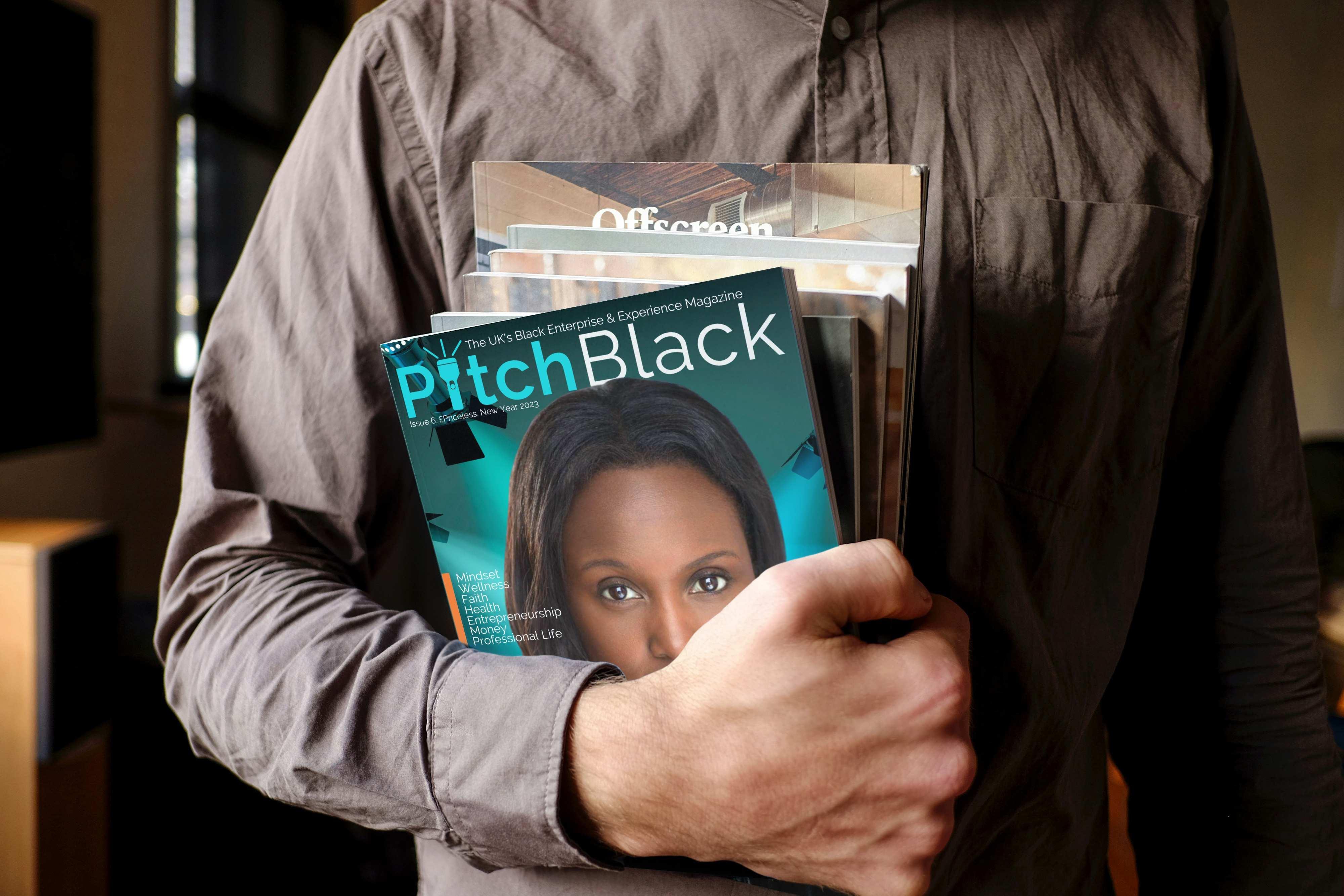

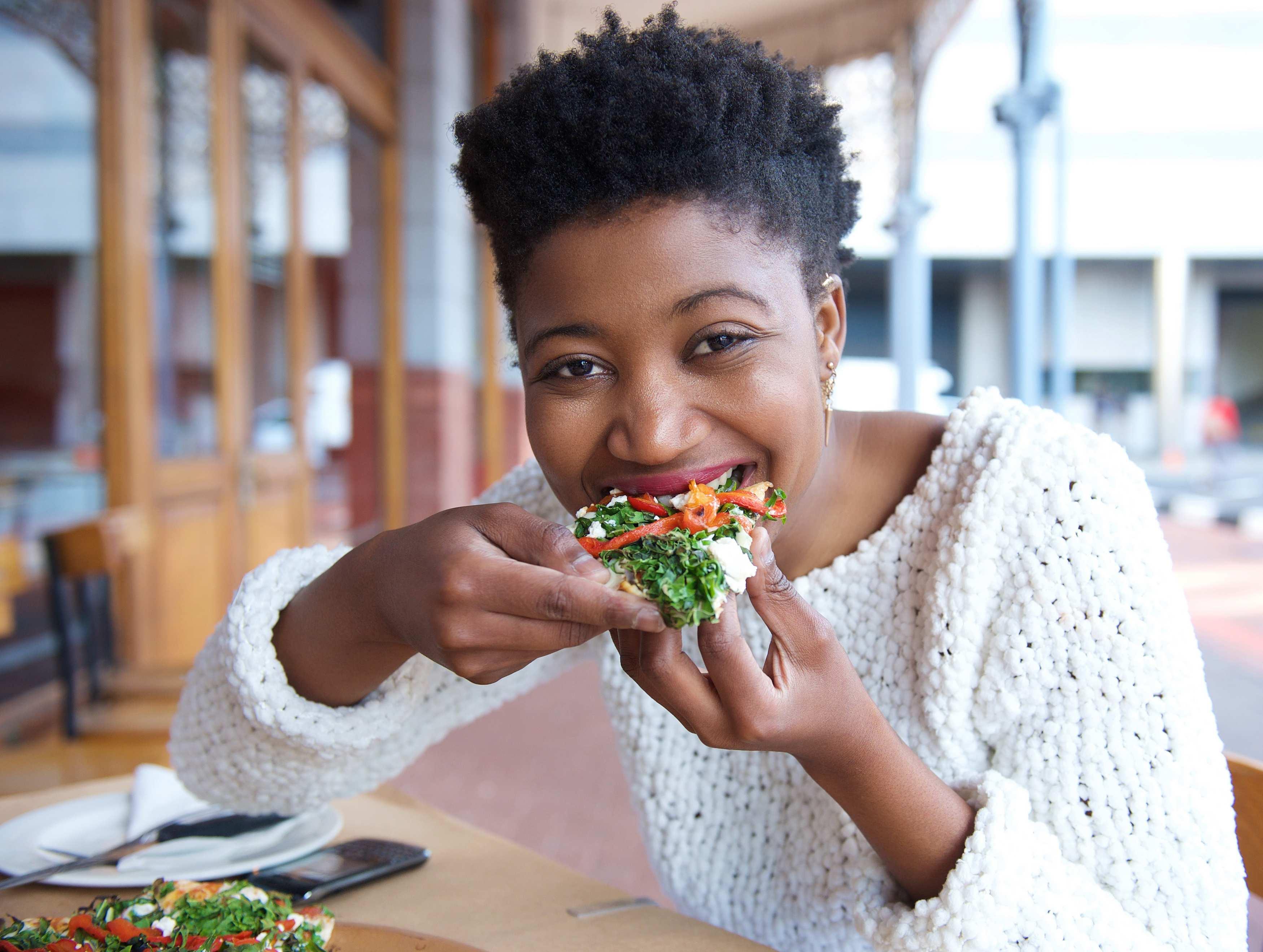






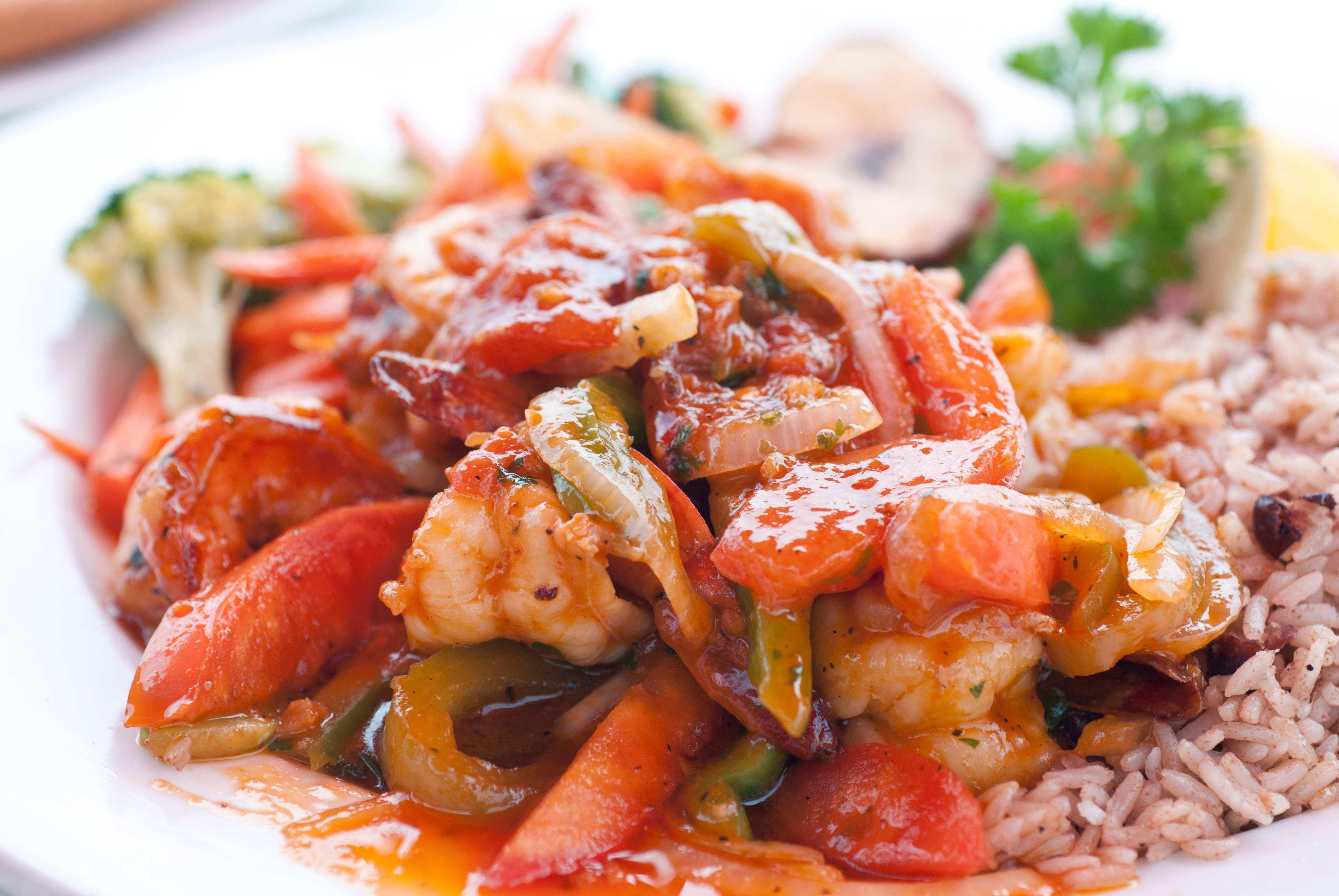
The act of eating is far more than mere biological fuel.
It's a complex interplay of physiology, culture, and deeply ingrained psychological factors. We often assume our dietary choices are purely rational, driven by health goals or hunger pangs. Yet, scratch beneath the surface, and it becomes strikingly clear that our relationship with food is not physiological but psychological.
Is it all in the mind? Well, let9s explore.
Consider your last craving. It probably wasn9t a rumble in the stomach signalling an empty tank; it most likely was a mental image, a memory, or an emotional trigger. The scent of freshly baked bread, for instance, can transport us to childhood, evoking feelings of comfort and security that we then seek to replicate by indulging. This isn't hunger; it's an emotional yearning, a psychological need being met by a physical action.
Similarly, stress eating isn't about nutritional deficiency; it's a coping mechanism, a way to self-soothe with the momentary dopamine hit that certain foods provide. The mind, in these instances, dictates what the body 8needs.9
Beyond immediate cravings, our beliefs about food shape our consumption habits. Diet culture, for example, thrives on the idea of 8good9 and 8bad9 foods, creating a moralistic framework around eating. When we label a food as 8bad,9 we often instil it with an illicit allure, making it more desirable. The very act of restriction can ironically amplify our desire for forbidden items, leading to cycles of deprivation and bingeing. This cognitive distortion, where food becomes an enemy to be conquered or a reward to be earned, is entirely a construct of the mind.
Of course, this isn9t to negate the fundamental biological need for nourishment. Our bodies do require nutrients to function. However, the how, when, and why we consume these nutrients are overwhelmingly governed by our thoughts, emotions, beliefs, and memories. From the primal urge to seek out calorie-dense foods (a relic of our evolutionary past) to the sophisticated marketing that taps into our deepest desires, our relationship with food is a masterpiece of psychological engineering.
Understanding this intricate mental landscape is the first crucial step towards fostering a healthier, more intuitive, and ultimately, more satisfying connection with what we eat.

The journey to a better relationship with food truly begins in the mind.
Here are 5 keys to improve your relationship with food.
Slow down and pay attention.
Engage all your senses – the aroma, texture, taste, and appearance of your food. Notice your body's signals of hunger and fullness. This practice helps to re-establish a connection between your physical needs and your mental awareness, moving away from automatic or emotional eating.
Deconstruct the 8good9 and 8bad9 labels you've assigned to foods. All foods can fit into a balanced diet. By removing the moral judgment, you can reduce the allure of certain foods and diminish feelings of guilt or shame associated with eating. This promotes a more neutral and less emotionally charged view of food.
Become aware of the emotions or situations that lead you to eat when
you're not physically hungry. Is it stress, boredom, sadness, or celebration?
Once identified, explore alternative coping mechanisms or ways to address these emotions that don't involve food. This creates space for healthier emotional regulation.
Be kind to yourself regarding your eating habits. Perfection is an unrealistic goal, and setbacks are a natural part of any journey. Instead of self-criticism, practice selfcompassion, understanding that your relationship with food is a complex, evolving process. This reduces shame and makes it easier to get back on track after a slip-up.
Shift your perspective from simply counting calories or restricting intake to viewing food as a source of nourishment for your body and mind. Consider the nutrients, energy, and pleasure food provides. This positive reframing encourages a more holistic and less obsessive approach to eating.
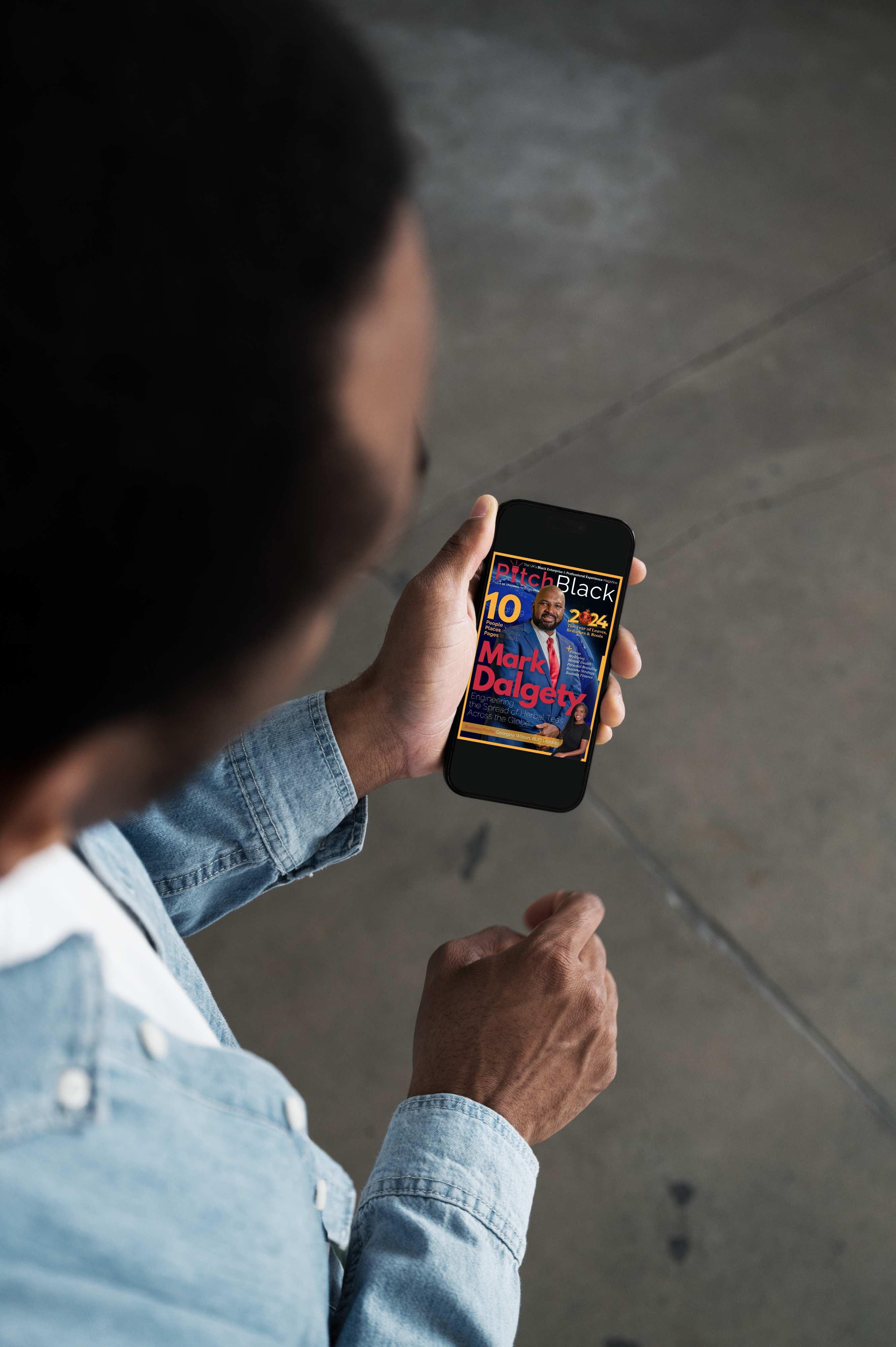








WA n d reaSt fMela n i n
hen we talk about the “Fword,” it might raise a few eyebrows. But I’m actually talking about two essential F-words that go hand in hand; Food and Fitness.
The connection between the two is powerful and complementary. Depending on your health and lifestyle goals, one cannot thrive without the other. Food fuels the body, and fitness strengthens it — and both are vital at every stage of life. What we needed in our youth isn’t the same as what we require as we grow older and aim to age gracefully. Your mind might still say

“yes,” but if your body isn’t properly fuelled, it will say a very clear “no.”
Fitness doesn’t come in a one-size-fitsall package. Aesthetics can be deceiving — someone who looks “fit” on the outside might not be well on the inside. That’s why it's important to understand the deeper markers of health.
Conditions like high blood pressure — often called the “silent killer” — can quietly lead to strokes or heart disease if we’re not vigilant.
Wouldn’t it be great if staying healthy were as simple as “energy in versus energy out”? Unfortunately, it’s more

complex. Fitness isn’t just about moving more — it’s about what you’re eating, how hydrated you are, and whether you’re getting the essential minerals your body needs to function properly.
We need to think critically about the quality of our food. Highly processed foods — especially those in tins with long shelf lives — lose much of their nutritional value. And within our communities, there's a strong link between diet and chronic conditions like diabetes.
Traditional foods like yams, plantains, green bananas, cassava, potatoes, pumpkin, and dumplings are rich in complex carbs and natural sugars. They do provide energy and some nutrients, especially in environments where physical activity is high. But moderation is key. Even healthy foods, when consumed in excess, can have negative effects.
Small tweaks to how we cook — baking instead of frying, using oils like coconut, avocardo or olive oil, and adjusting our portion sizes — can make a huge difference. Vegetables are often overlooked but can provide both carbohydrates and protein, along with gut-supporting fibre.
According to the World Health Organization, fitness is “the ability to meet the demands of one’s environment.”
So, ask yourself:
“Can I easily climb stairs?”
“Pick yourself up after a fall?”
“Carry shopping bags?”
“Reach the top shelf?”
“Manage stress and fatigue?”
That’s real fitness — not just what’s posted on social media.
Think of food as fuel.
Would you put vegetable oil in a Porsche? Of course not.
So why would you fuel your body — your most important vehicle — with poor-quality ingredients?
You can be fit at any age. Your body’s needs will change, but if you provide the right fuel, it will take care of you in return. While we’re not all born with the same resources or health, we can make choices that support a longer, stronger life.


1.Move little and often — sitting is the new smoking.
2.Stay hydrated — you’re 70% water.
3.Eat smaller portions more frequently.
4.Choose healthy alternatives — think salads, beans, vegetables.
5.Aim for 20–30 minutes of activity, at least 3/5 times a week.
6.Mobilize your joints daily (start before you get out of bed).
7.Prioritize sleep — aim for 7–8 hours per night.







In today’s digital landscape, online trolling has evolved beyond mere nuisance, it’s now a form of psychological and even spiritual warfare.
For parents, entrepreneurs, and content creators, the relentless manipulation of narratives, hijacking of feeds, and aggressive domination of conversations both online and offline, have become daily battles.




Key Fact #1:
A 2024 study by the Cyberbullying Research Centre found that 73% of content creators faced coordinated harassment campaigns, with 40% reporting severe financial or emotional repercussions. The threat of a Tyler Perry-style scenario4 where reputations are systematically dismantle, is no longer speculative. It’s a reality.
Amid this chaos, the SWIPE Workbook serves as a vital toolkit, offering practical strategies to safeguard your mental wellbeing and digital presence. But beyond tactical responses, there are three fundamental pillars you must secure to withstand online attacks.
Trolls and cancel culture campaigns can disrupt income streams overnight.
Key Fact #2:
According to UK cyber-insurance firm Safe Haven, 60% of freelancers targeted by trolling lost clients within 48 hours of an attack.
Protect yourself with:
Emergency funds (aim for 336 months’ living costs).
Professional insurance (e.g., reputation management, legal protection).
A mental wellbeing fund for therapy or crisis support.
The psychological toll of online harassment is severe.
phenomenon; it has historical precedents in practices like smear campaigns and market manipulation. However, the digital age has amplified its reach and impact.
Key Fact #3:
A 2025 Mind UK report revealed that 1 in 3 entrepreneurs experiencing trolling developed anxiety or depression, yet only 15% sought professional help.
You need:
A trusted therapist specialising in digital trauma (find accredited providers via BACP)
A safe community (e.g., peer groups like Content Creators Against Trolling)
Scheduled digital detoxes to reclaim mental clarity.
Trolls often exploit legal grey areas. Arm yourself with:
Pre-vetted solicitors (search the Law Society’s directory for specialists in the UK’s Online Safety Act)
Documentation habits (timestamped screenshots, incident logs)
Knowledge of platform reporting tools (e.g., Meta’s antiharassment protocols)

Implement the safeguards above 3 Start with one action today (e.g., screenshot a toxic DM)
Protect your peace 3 Mute, block, and remember: engagement is oxygen to trolls

Get the SWIPE Workbook 3 A tactical guide to dismantling troll tactics
Digital survival isn’t just about blocking trolls4it’s about systemic self-defence.
The SWIPE Workbook isn’t just a guide; it’s armour.

<A solid toolkit that helps direct you through a process of online trolling abuse etc and gives you strategies for navigating the digital landscape.= Get the digital or print copy












If you know me, you’ll know I’m obsessed with two things — AI and wellness. I fast daily, walk religiously, and track just about everything. But the biggest game-changer? Realising that AI could help me eat exactly what my body needs — not what the latest diet trend dictates.
As someone who builds digital tools for professionals and founders, I’ve always seen tech as a way to simplify the complex. So when I saw how AIpowered nutrition apps were revolutionising personal health, I knew this wasn’t just another fad — this was a turning point.

We’ve all been there: trying to stick to a diet plan someone swore by, only to crash out after a few days. Why? Because one-size-fits-all doesn’t work — not in business, and definitely not in health. That’s where AI steps in.
We now have access to real-time biological data — your gut health, glucose levels, even your metabolic flexibility. AI tools digest all this (pun intended) and turn it into practical, personalised advice. No vague <eat less sugar= tips. We’re talking <eat oats at 9am and lentils for lunch to balance your blood sugar and boost your focus.=
AI observes, learns and adapts — daily. And when it comes to what you put in your body, that level of precision is a complete shift.
Here are a few of my favourites already changing lives:
ZOE: I tried this myself. You get a full breakdown of your microbiome, blood sugar, and fat response, then the AI gives you food scores based on your biology. Game-changing. Steven Barlett is an investor, so you know.
Lumen: This device measures whether you're burning fat or carbs by analysing your breath. Based on that, you get a daily personalised macro guide. Less guesswork, more results.
Nutrisense: Paired with a continuous glucose monitor, it tracks how your body reacts to specific meals. You get insights and suggestions based on how you actually respond, not just averages.
Meal Garden: For people who want flexibility, this AI meal planner adapts based on your goals, ingredients on hand, and how much time you’ve got to cook.
As someone building a health-focused social enterprise and tech-driven solutions, I see the direction we’re heading. Your AI nutrition assistant will soon sync with your wearable, calendar, and even your fridge — helping you shop, plan, eat, and live better.
The real power isn’t in the tech itself. It’s in how it helps you tune in to what your body’s been trying to tell you all along.
No more crash diets. No more generic meal plans. Just intelligent, personalised nutrition — designed for the only person it should serve: you.

https://zoe.com/ https://www.lumen.me/ https://www.nutrisense.io/ https://home.mealgarden.com/


No vague <eat less sugar= tips. We’re talking <eat oats at 9am and lentils for lunch to balance your blood sugar and boost your focus.=









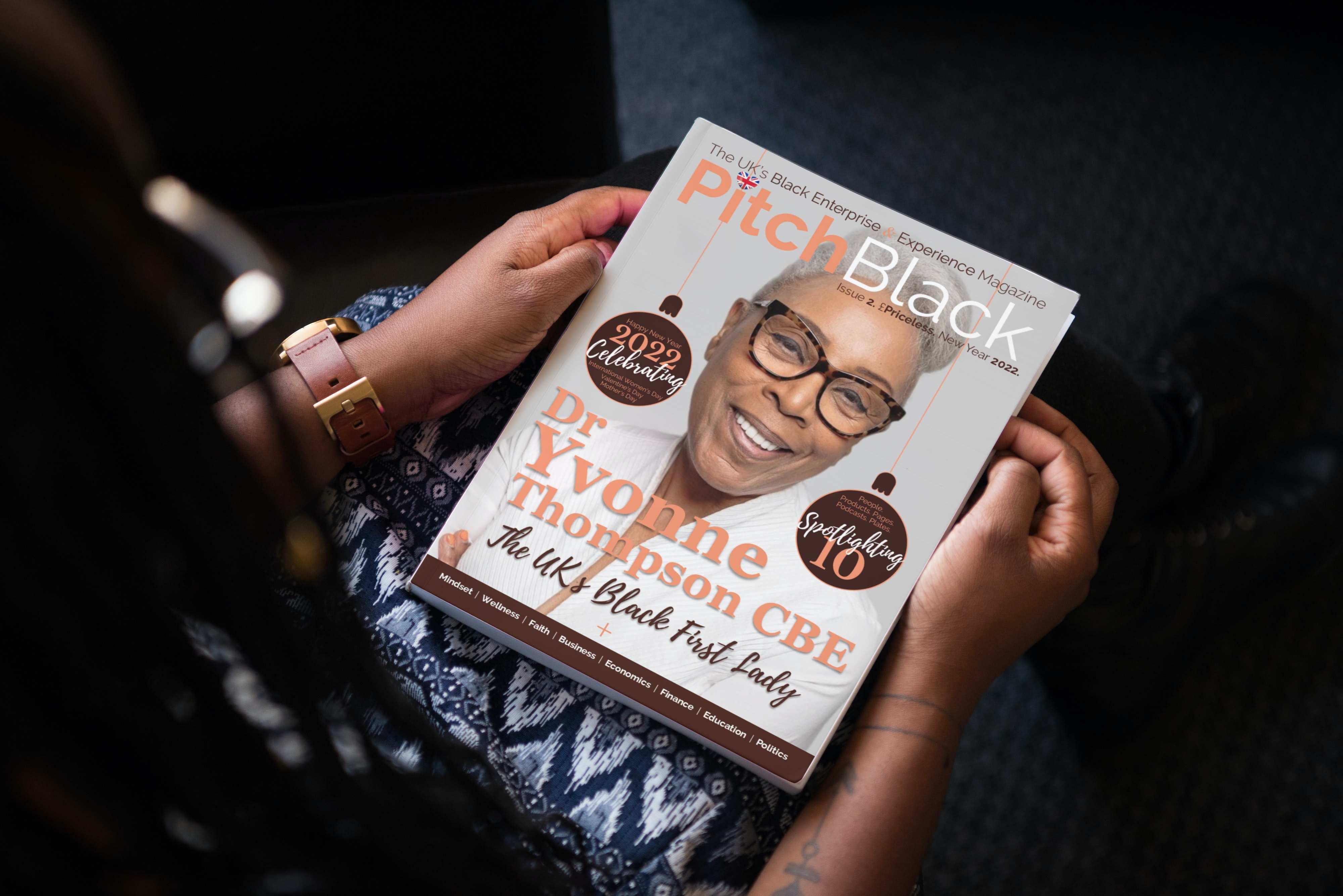
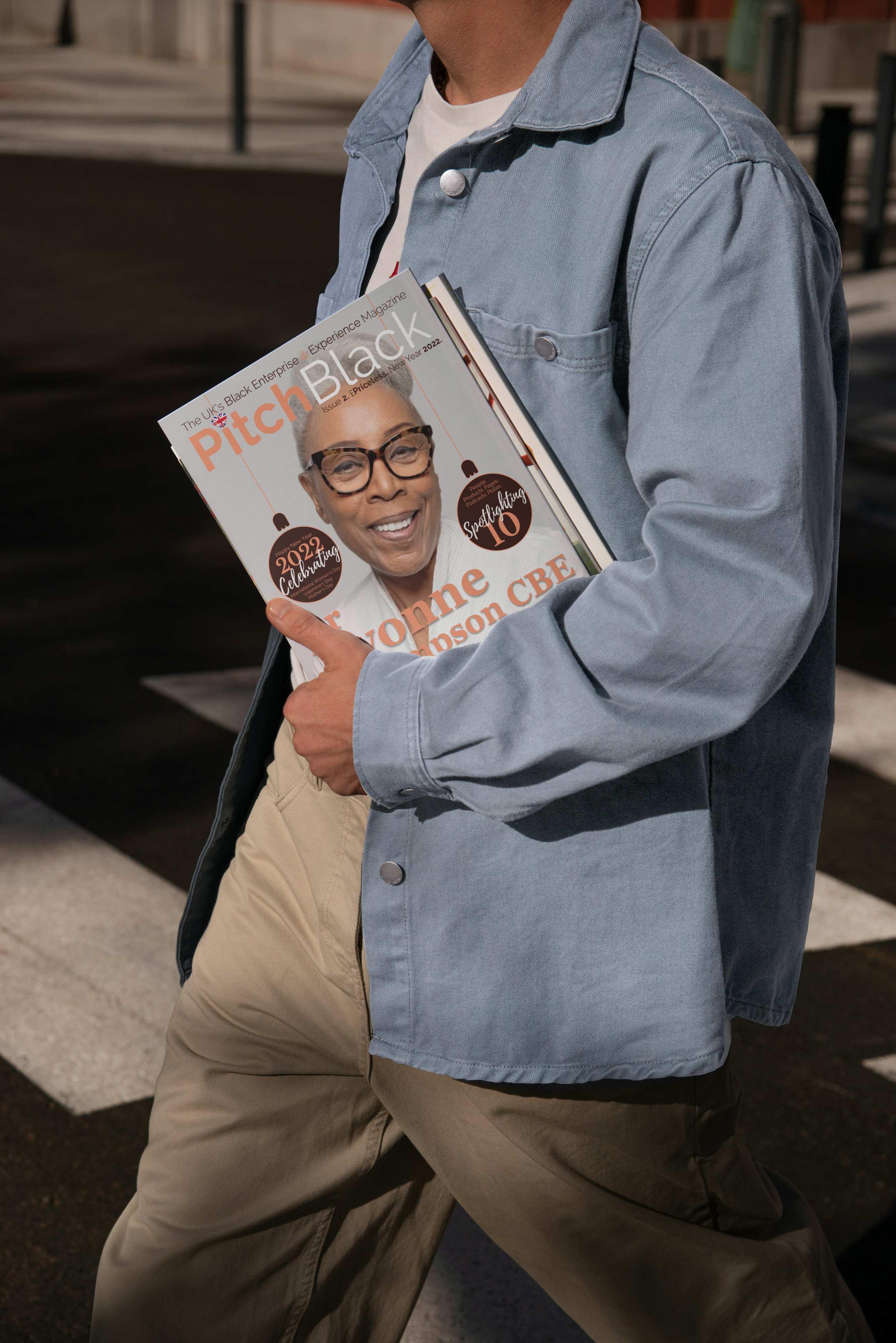


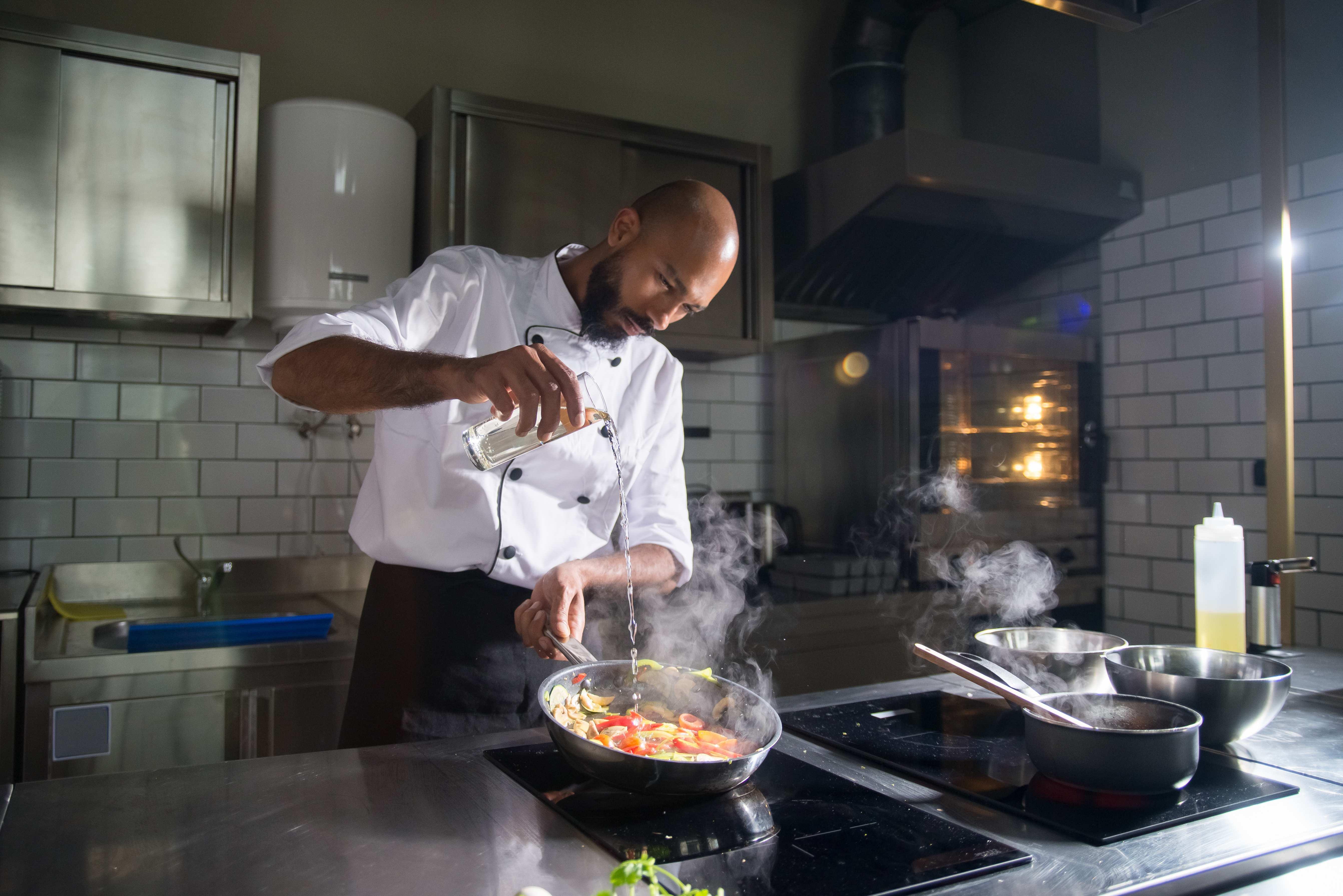
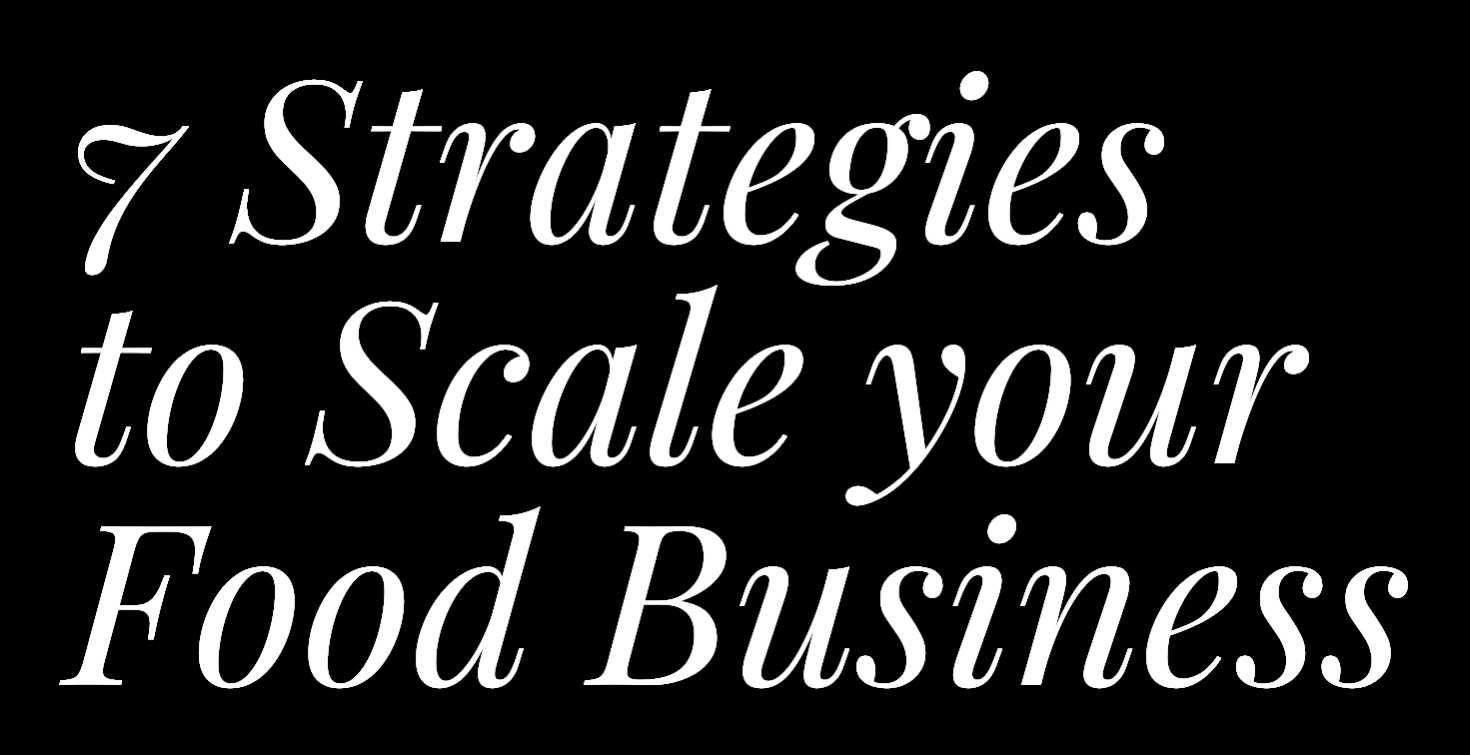


Black people have an incredibly rich and long history in food and drink enterprises, from esteemed culinary roles in historical contexts to thriving local restaurants and catering services today. This deep-rooted presence means we are undeniably entrenched in this vibrant space.
However, despite this strong foundation, many Black-owned food businesses find it challenging to scale operations in a way that generates significant wealth or builds impactful businesses that benefit our communities in a substantial way. While many succeed in supporting a family through local takeaways or catering gigs, they often don't achieve the level of revenue needed for largescale growth.
The good news is that with strategic adjustments and a shift in mindset, your Black food business can break through these barriers and achieve exponential growth.
Here are 7 actionable ways to scale your business beyond the kitchen.
True scaling isn't just about selling more food; it's about viewing your business as a complex operation
encompassing logistics, distribution, and even property –much like a major chain such as McDonald's. Instead of just aiming for a viable local business, define success as becoming an exclusive global supplier, a multi-location brand, or a leader in a specific niche. This requires creating repeatable processes and systems that don't solely rely on your direct involvement.
Selling raw materials often means competing on price alone. To command higher margins and build a strong brand, focus on processing your materials to add value. This transforms a commodity into a differentiated product. Think about how a unique sauce, a gourmet ready-meal, or a specialized spice blend can be branded and positioned to stand out. Strong branding allows you to tell your story, connect with customers, and justify a premium price point.
Your delicious product needs to reach a wider audience. This involves developing effective distribution systems. Consider a
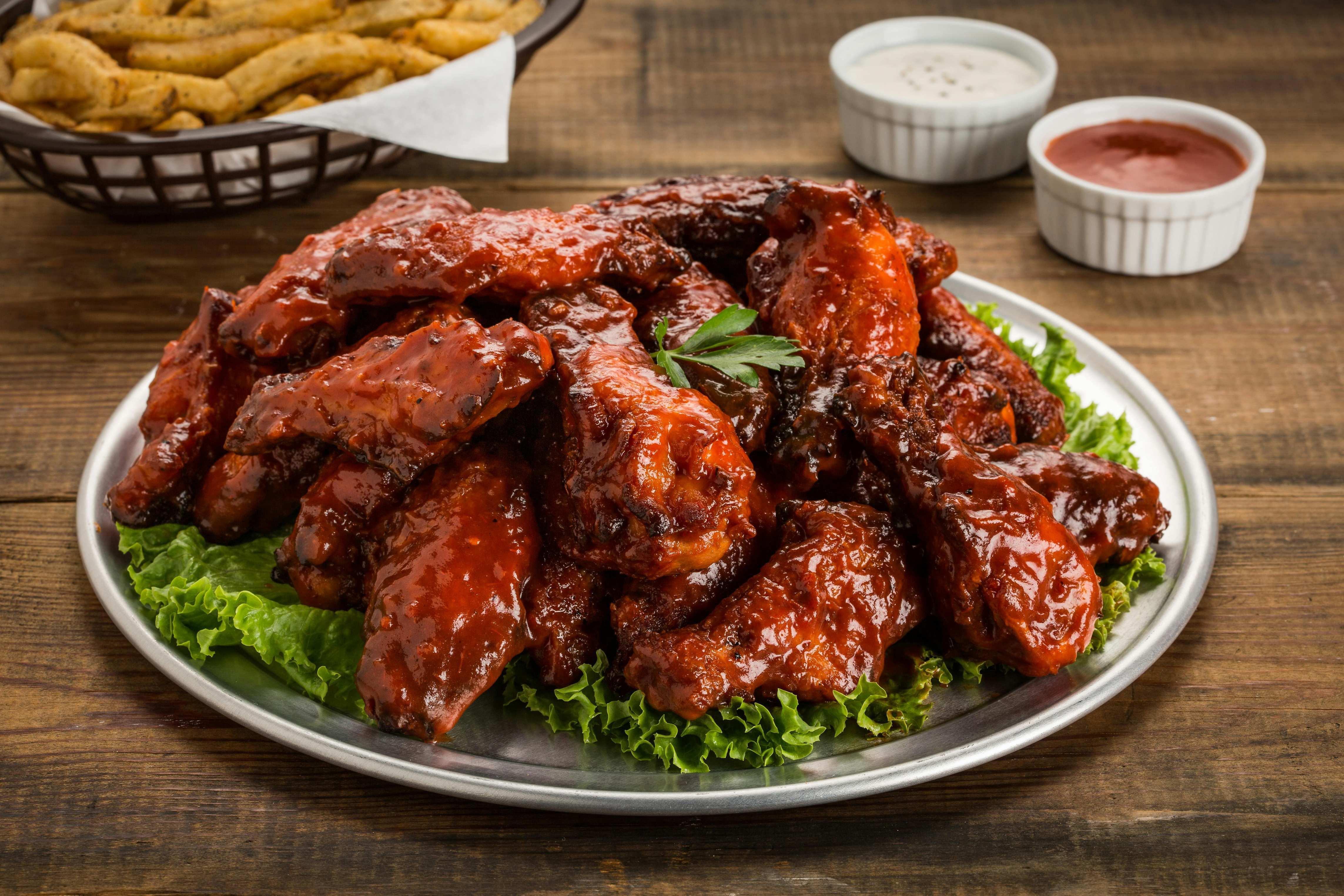
Designed by talented Find
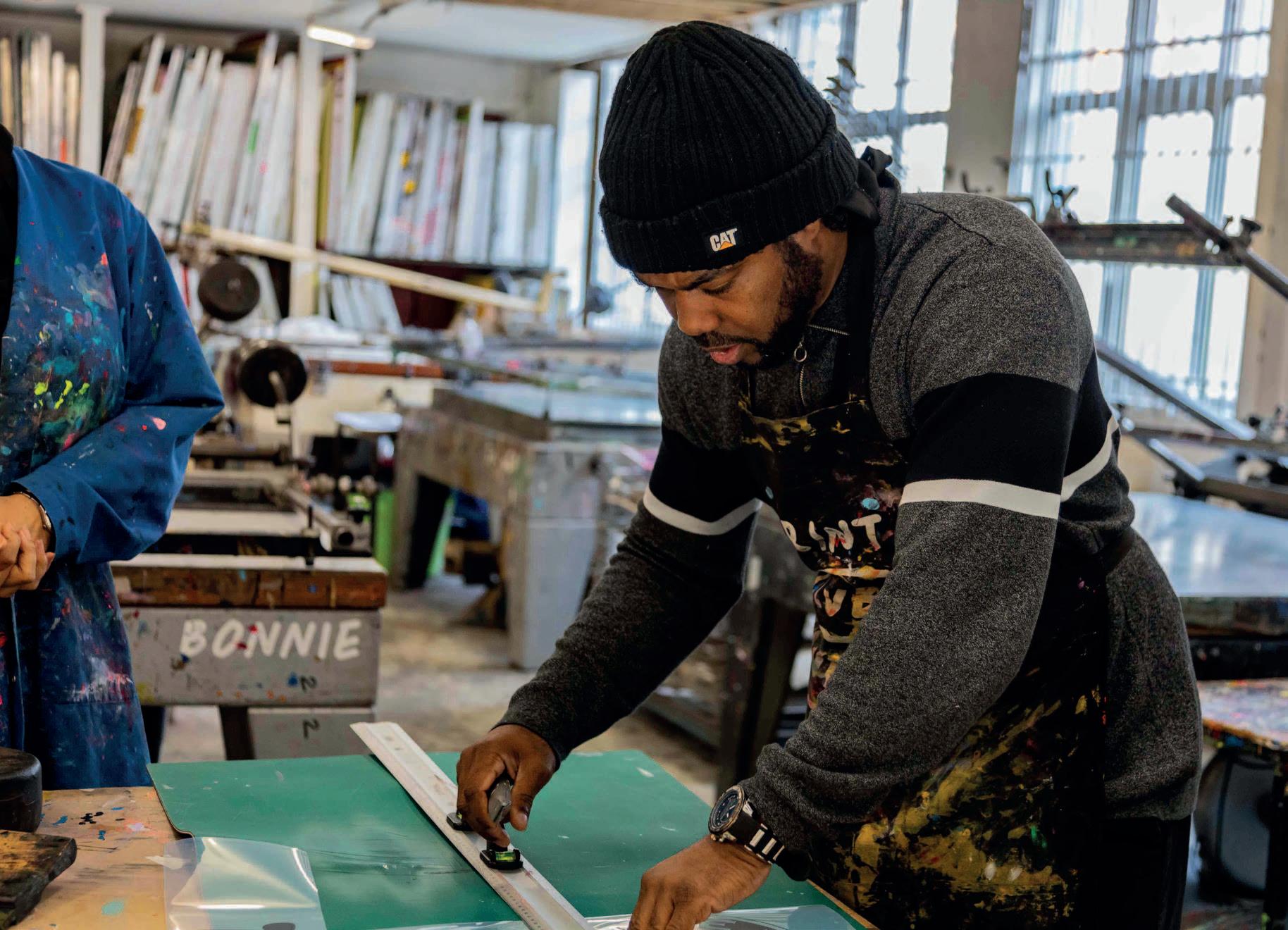

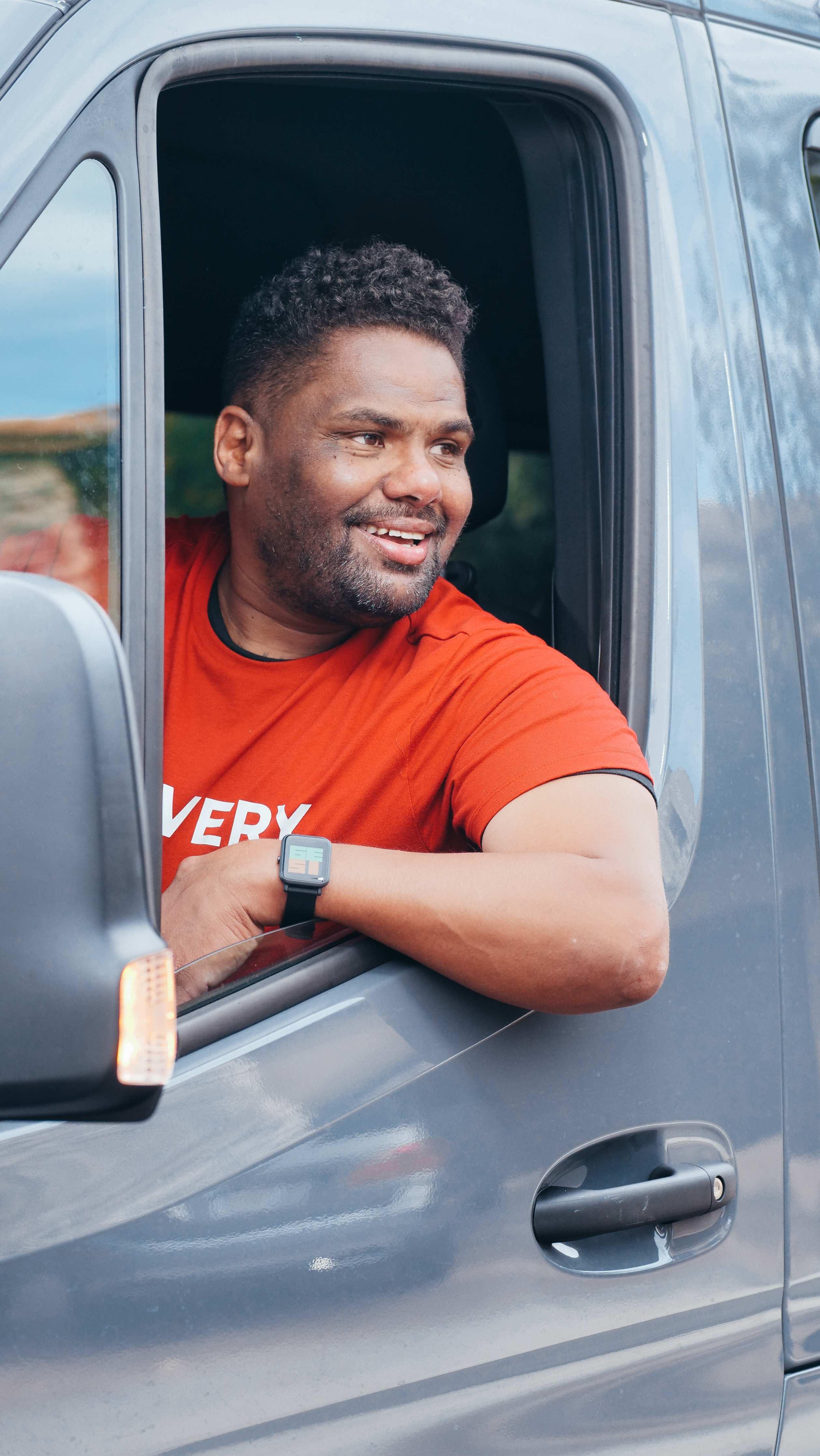

direct-to-consumer (D2C) model through e-commerce or subscription services.
Even more impactful for scaling is partnering with larger distribution networks, such as supermarket chains, specialty food stores, or even online marketplaces. Research and build relationships with distributors who align with your brand and can handle increased volume.
Scaling often requires expertise and capital beyond what one individual or family can provide. Seek out strategic partnerships that bring complementary skills to the table.
This could mean a culinary founder partnering with someone who has a strong background in logistics, finance, or business development.
Furthermore, explore business-tobusiness (B2B) approaches. Consider white-labeling your processed products for other businesses to brand and sell. This can secure significantly larger orders and a more consistent revenue stream compared to relying solely on individual consumer sales.
Scaling beyond local markets, investing in new equipment, or expanding your physical footprint all require substantial investment. This capital often cannot be generated solely from existing contracts or sales. Actively seek out various forms of funding, including:
Loans: Traditional bank loans or specialized business loans. Grants: Look for grants aimed at supporting minority-owned businesses or food entrepreneurs.
Capital: For high-growth potential businesses, consider investors who can provide capital and strategic guidance. Crowdfunding: Engage your community and broader audience to raise funds.
Having a solid business plan and a clear growth strategy will be crucial for attracting investors.
While serving your core community exceptionally well is fundamental, achieving broad scale often involves appealing to a wider audience. Draw inspiration from industries
like music, where artists deeply embraced by one community can naturally cross over and become popular with different groups. Your unique culinary heritage and authentic story can be a powerful differentiator that resonates with a diverse customer base.
Don't be afraid to market your product beyond traditional ethnic markets to tap into broader consumer trends and preferences.
As you grow, manual processes become bottlenecks. Embrace technology and data to streamline your operations. Implement systems for:
Inventory Management: Track ingredients and finished products efficiently.
Order Fulfillment: Automate order processing and shipping.
Customer Relationship Management (CRM): Build a database of customer information to personalize marketing and improve service. Financial Management: Use accounting software to track revenue, expenses, and profitability.
Automating administrative tasks, from scheduling to invoicing, frees up your valuable time to focus on strategic growth initiatives rather than day-to-day minutiae.
By embracing these 7 strategies, Black food businesses can move beyond the kitchen, build sustainable empires, and cement their legacy in the global food industry.
The time to scale is now.
So, what are some specific areas of your food business where you feel you could begin implementing these scaling strategies?
Don't be afraid to market your product beyond traditional ethnic markets to tap into broader consumer trends and preferences.
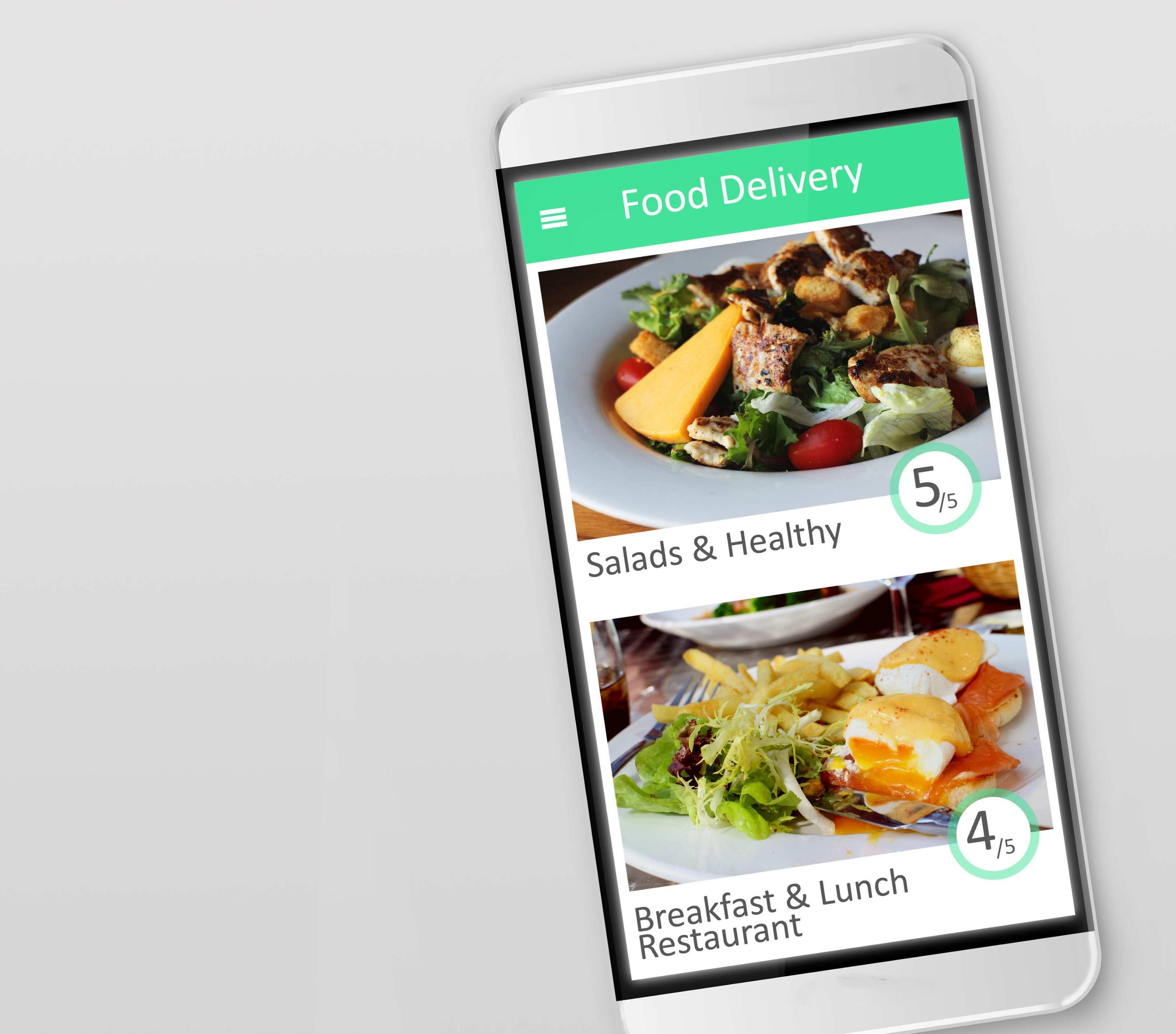
“
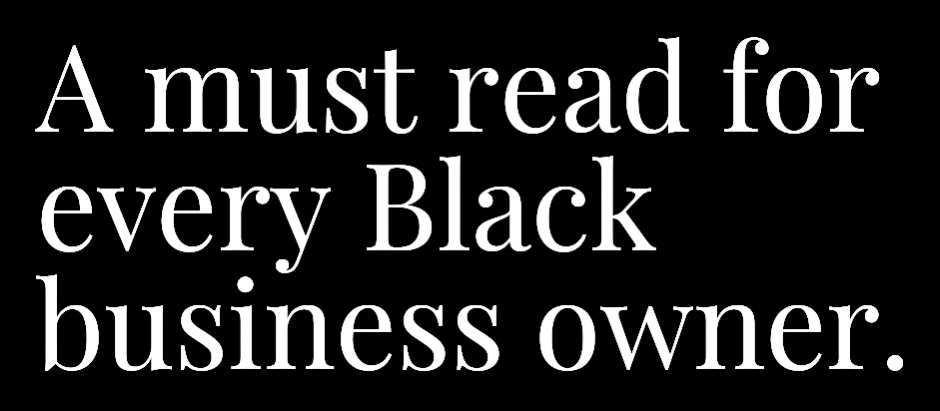
“
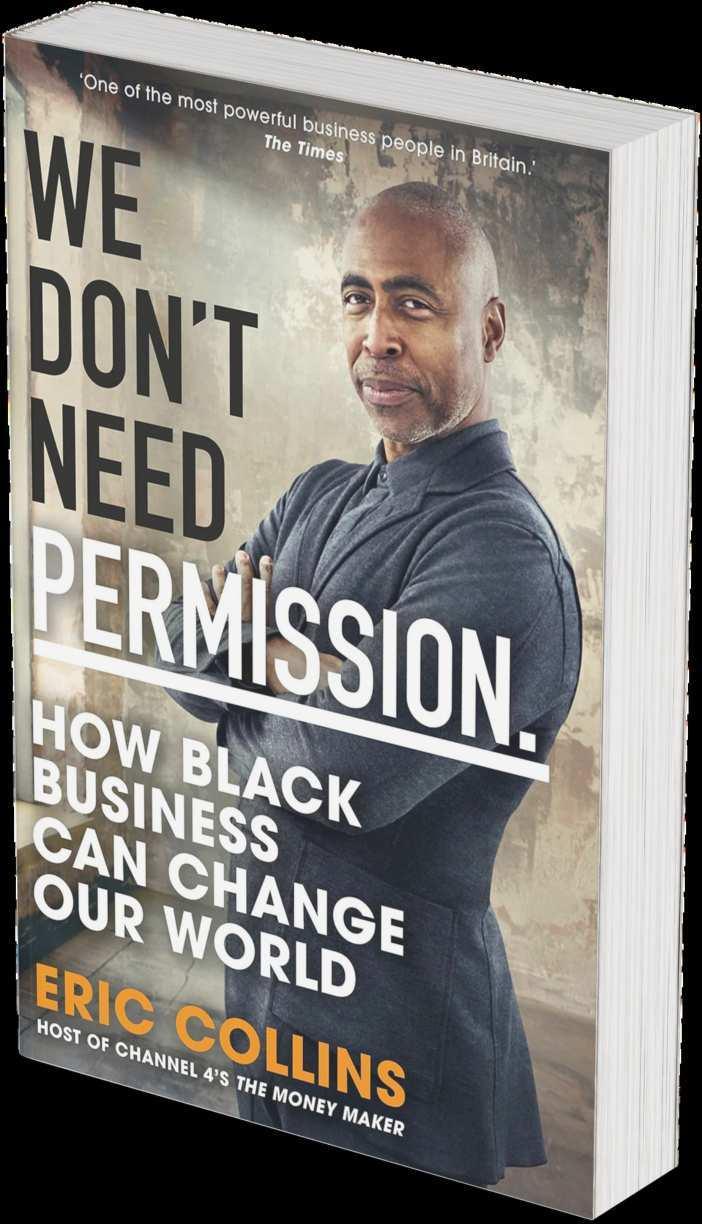

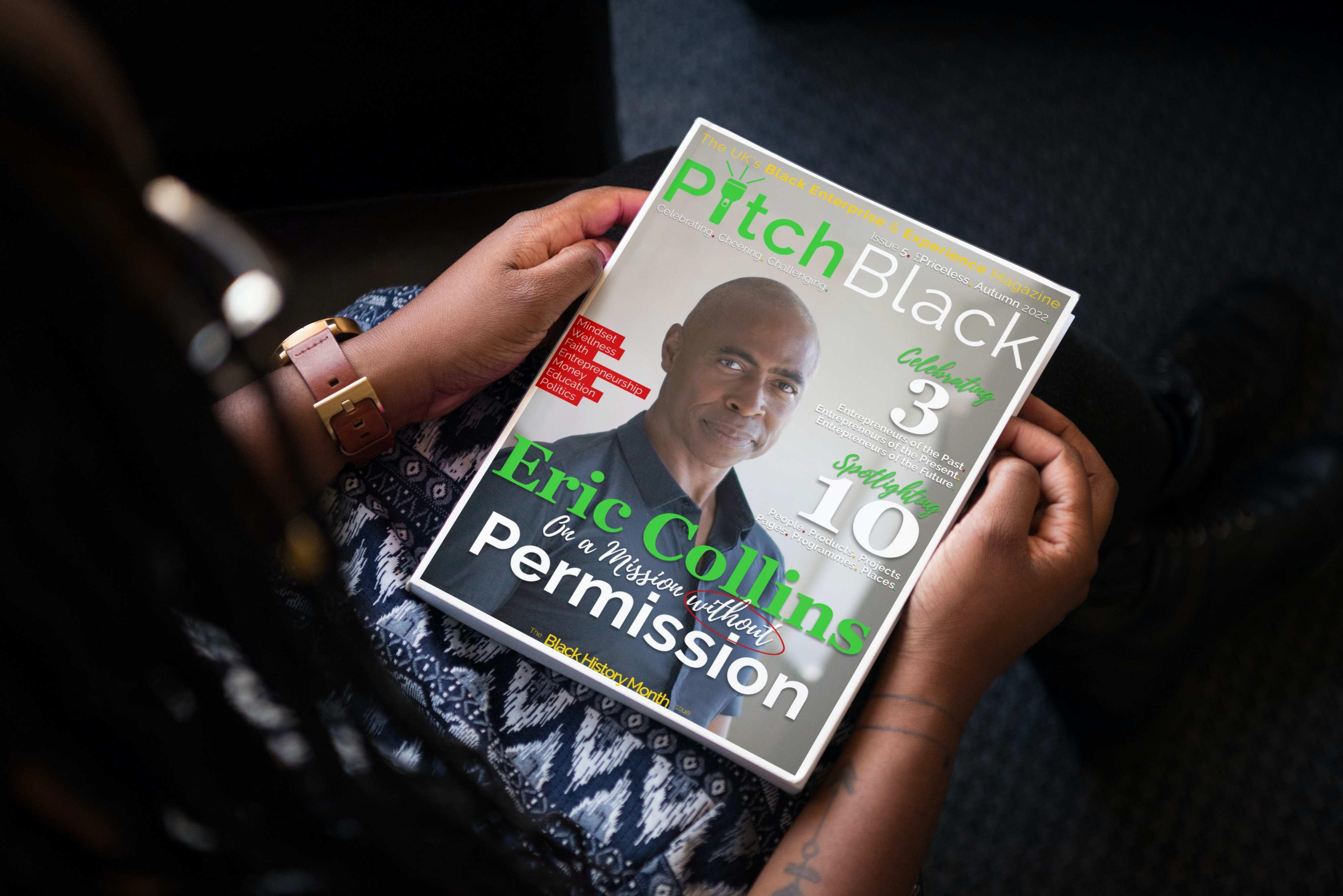


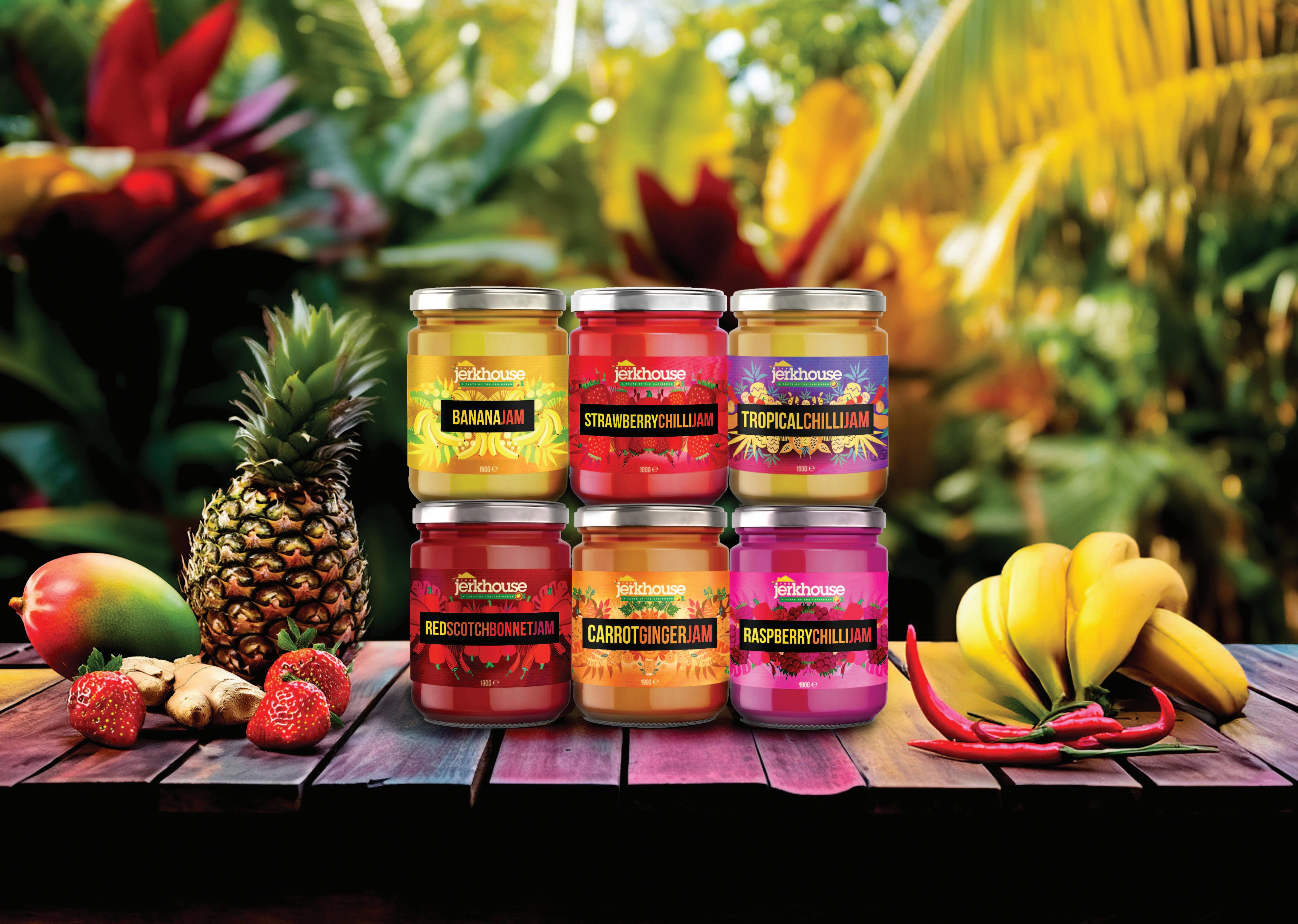
Jerkhouse Jams


